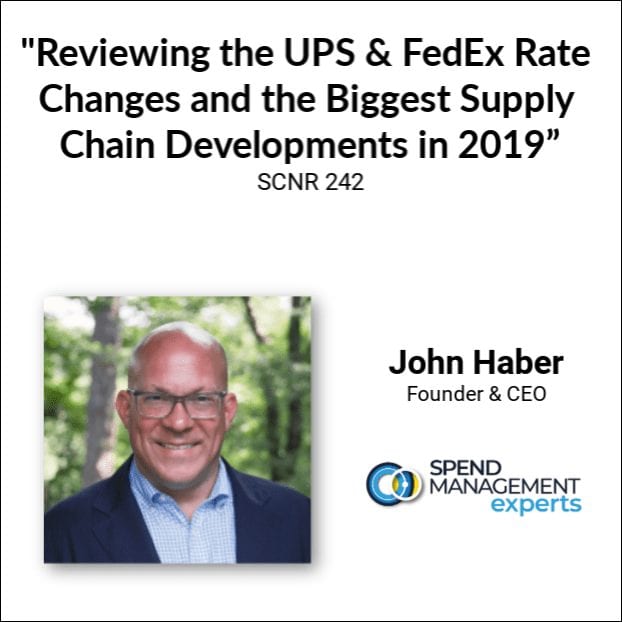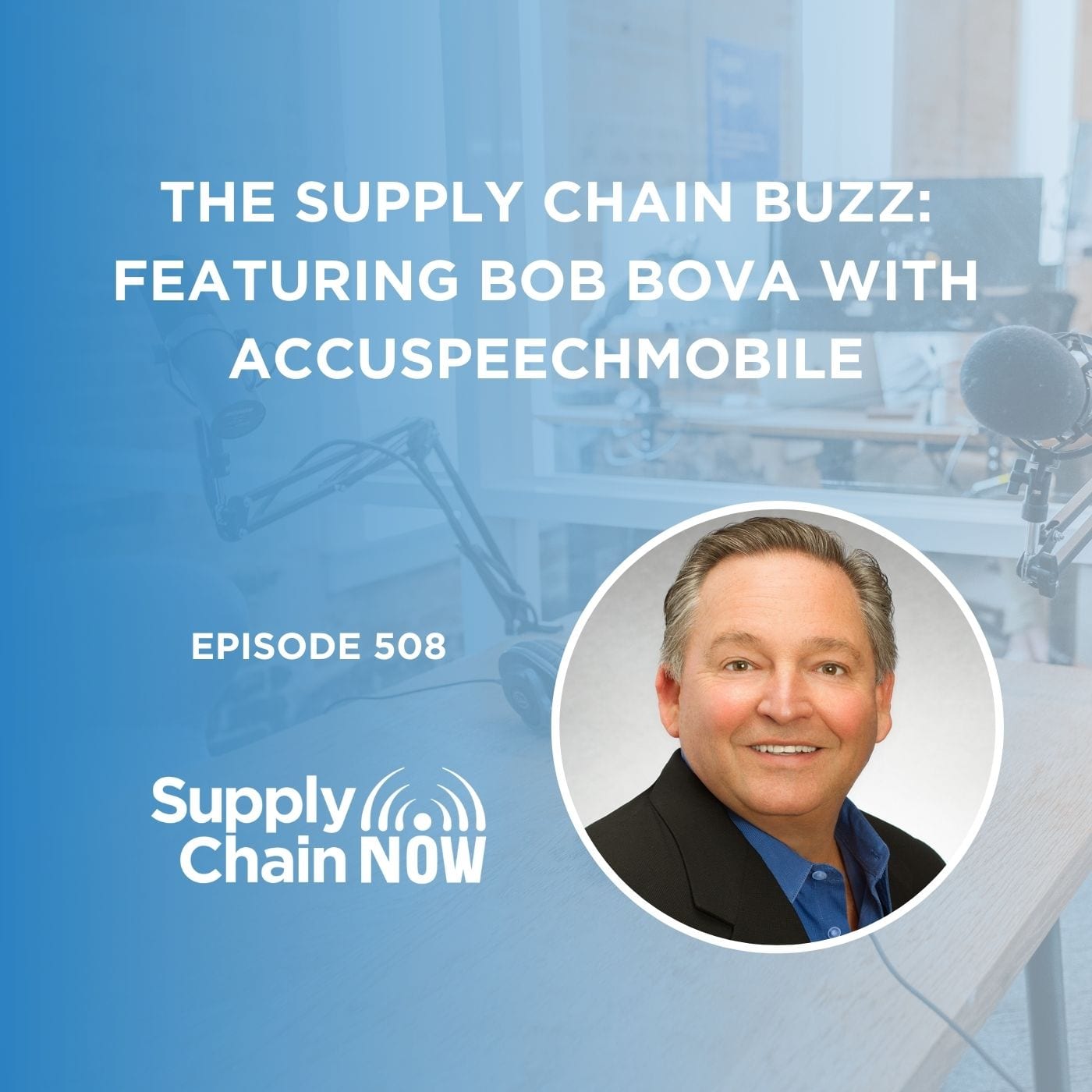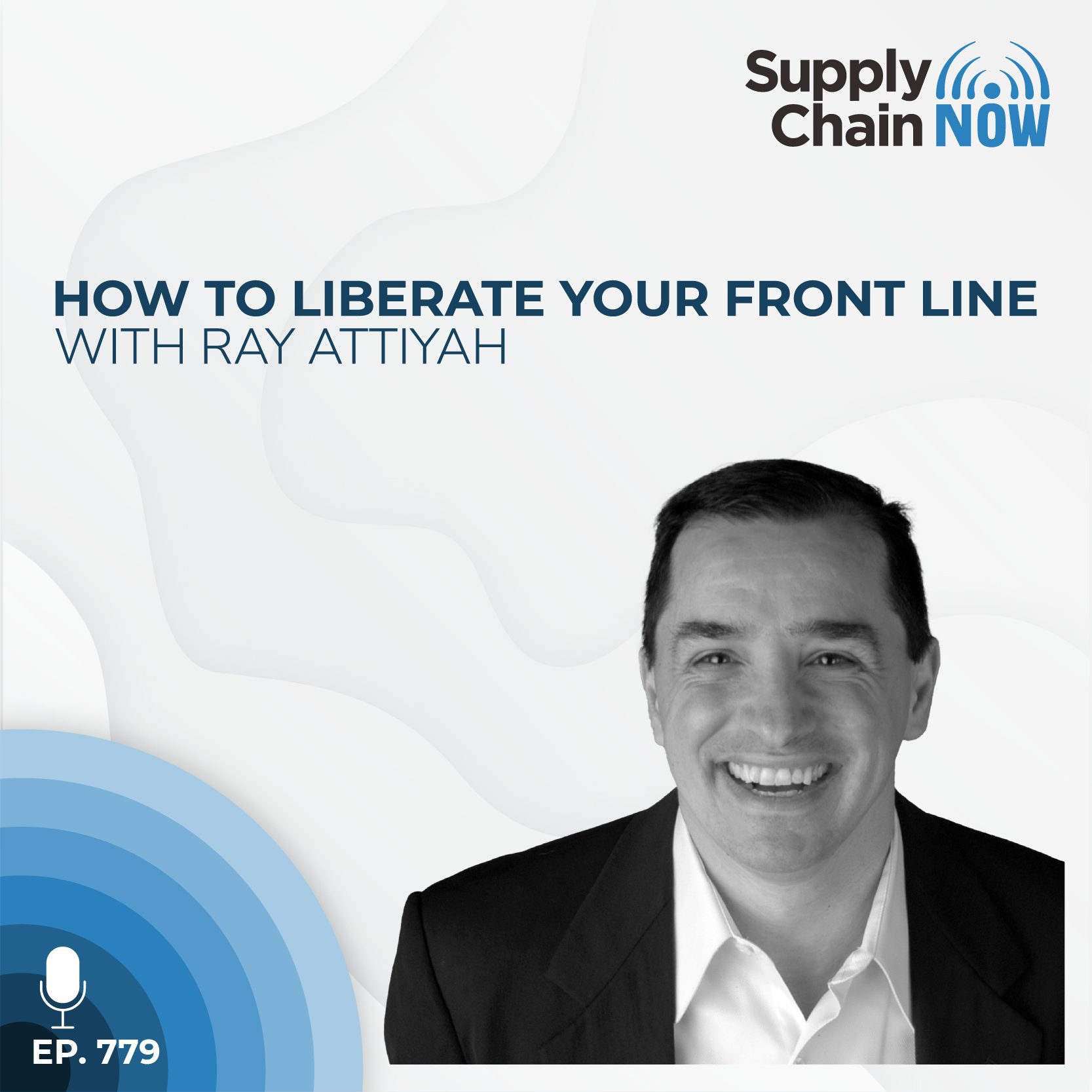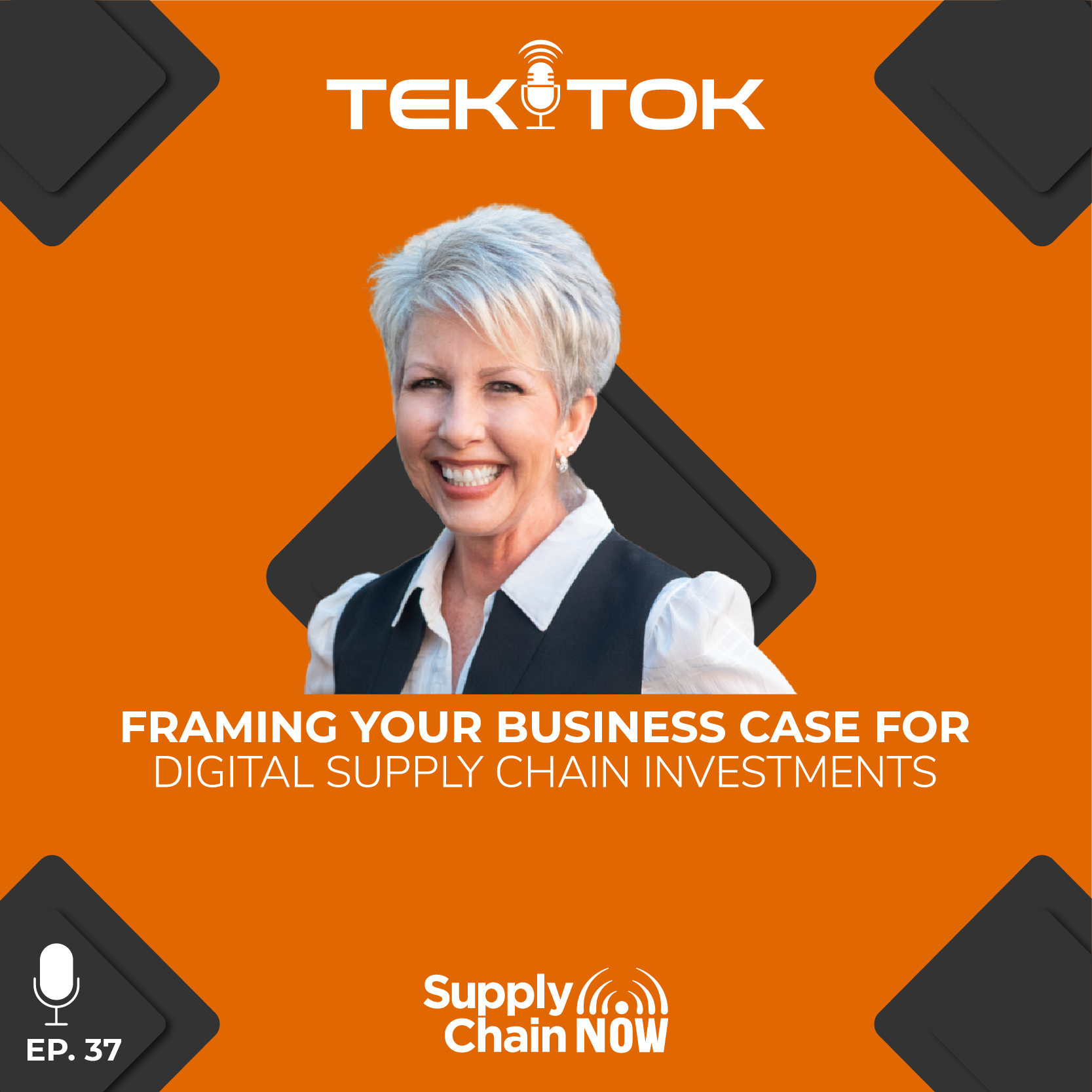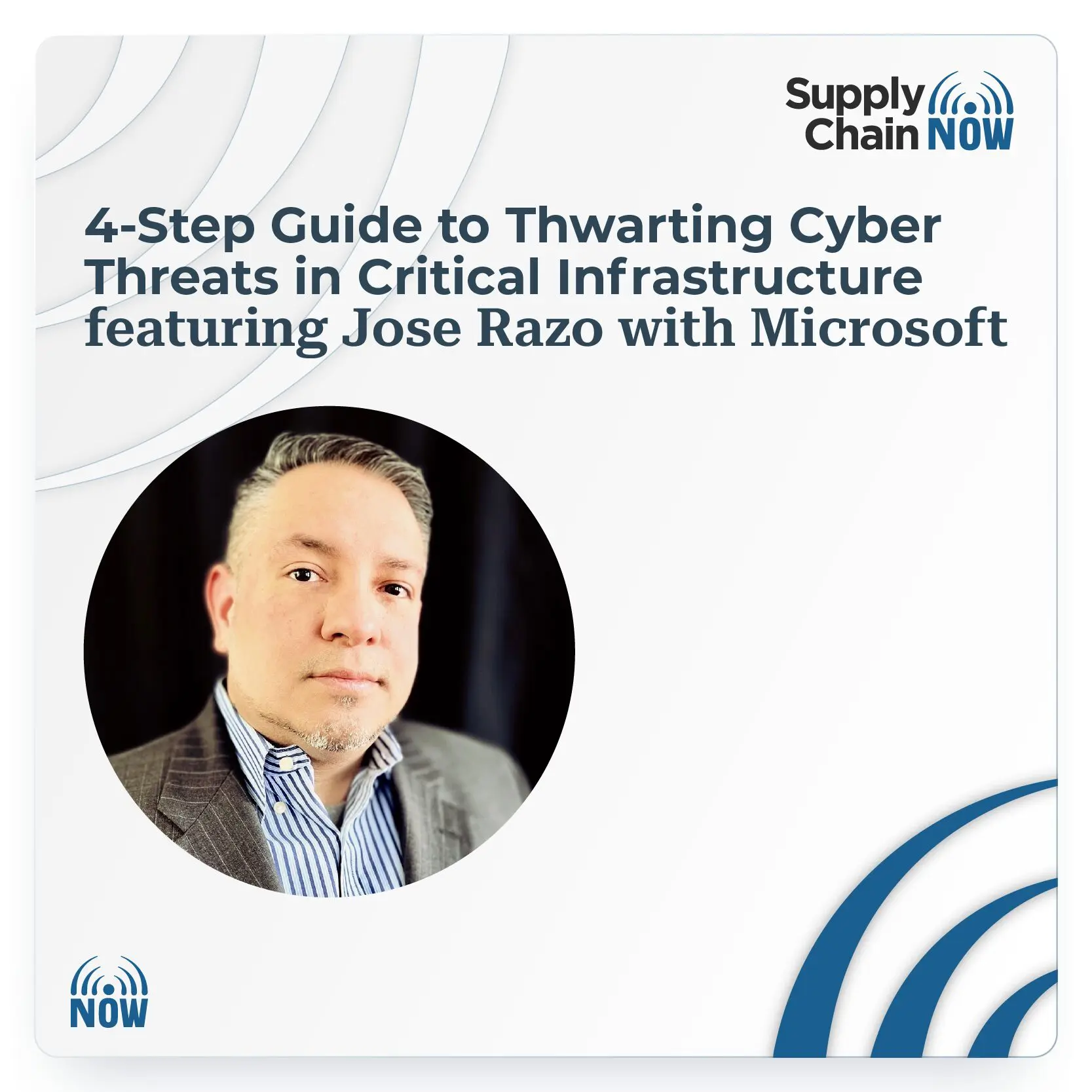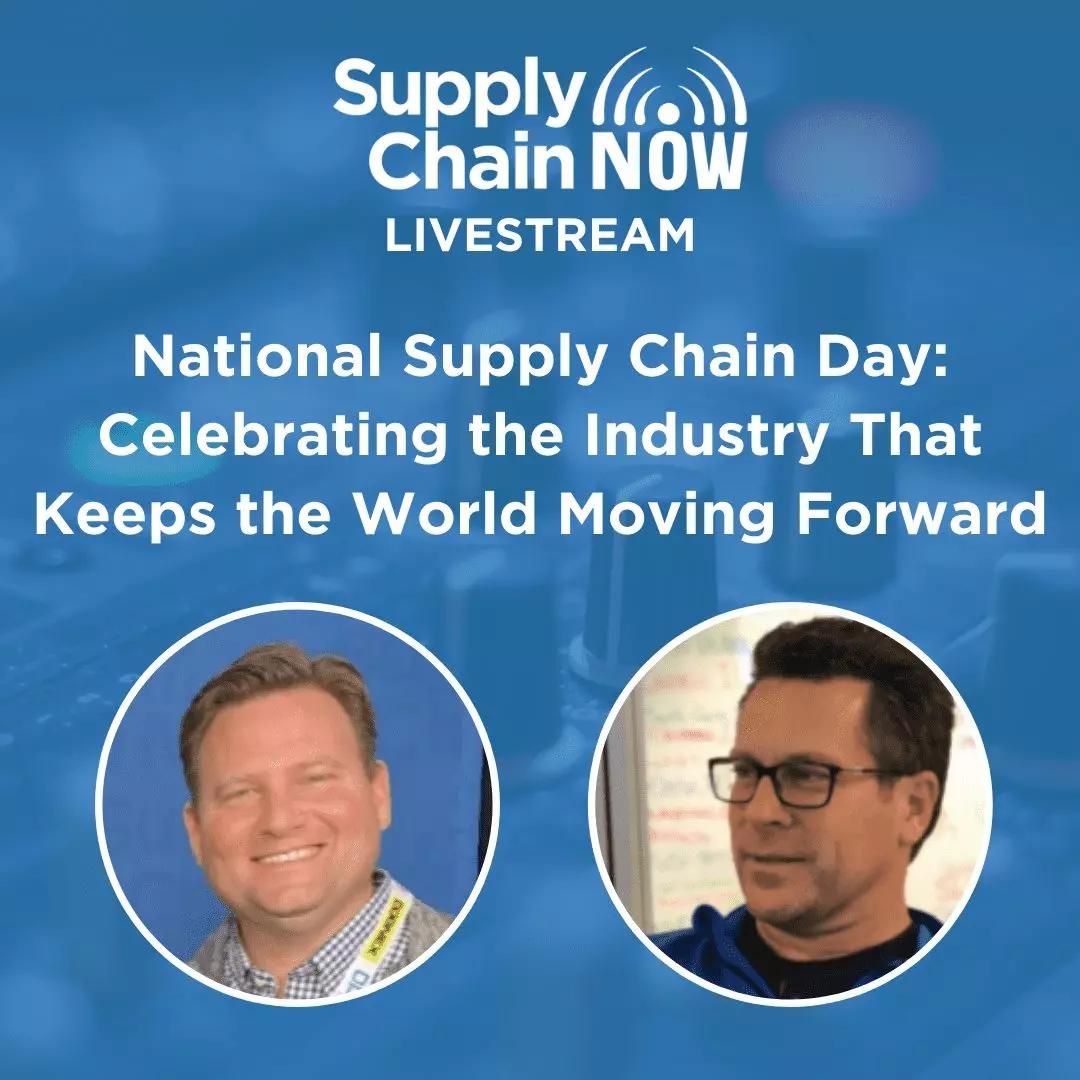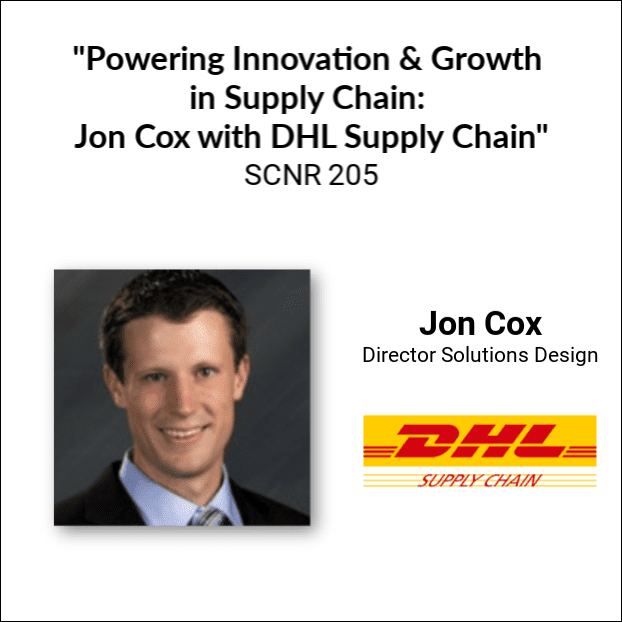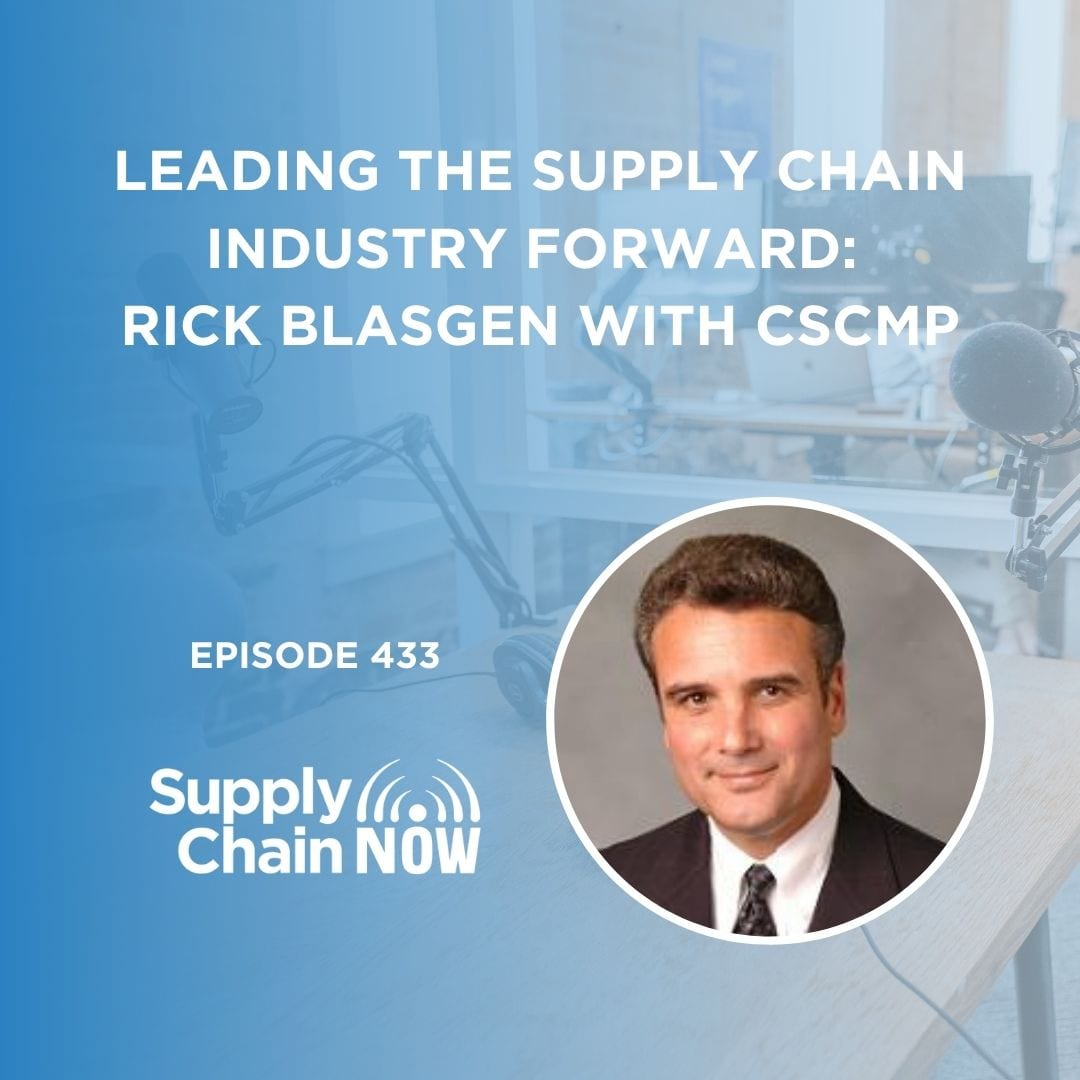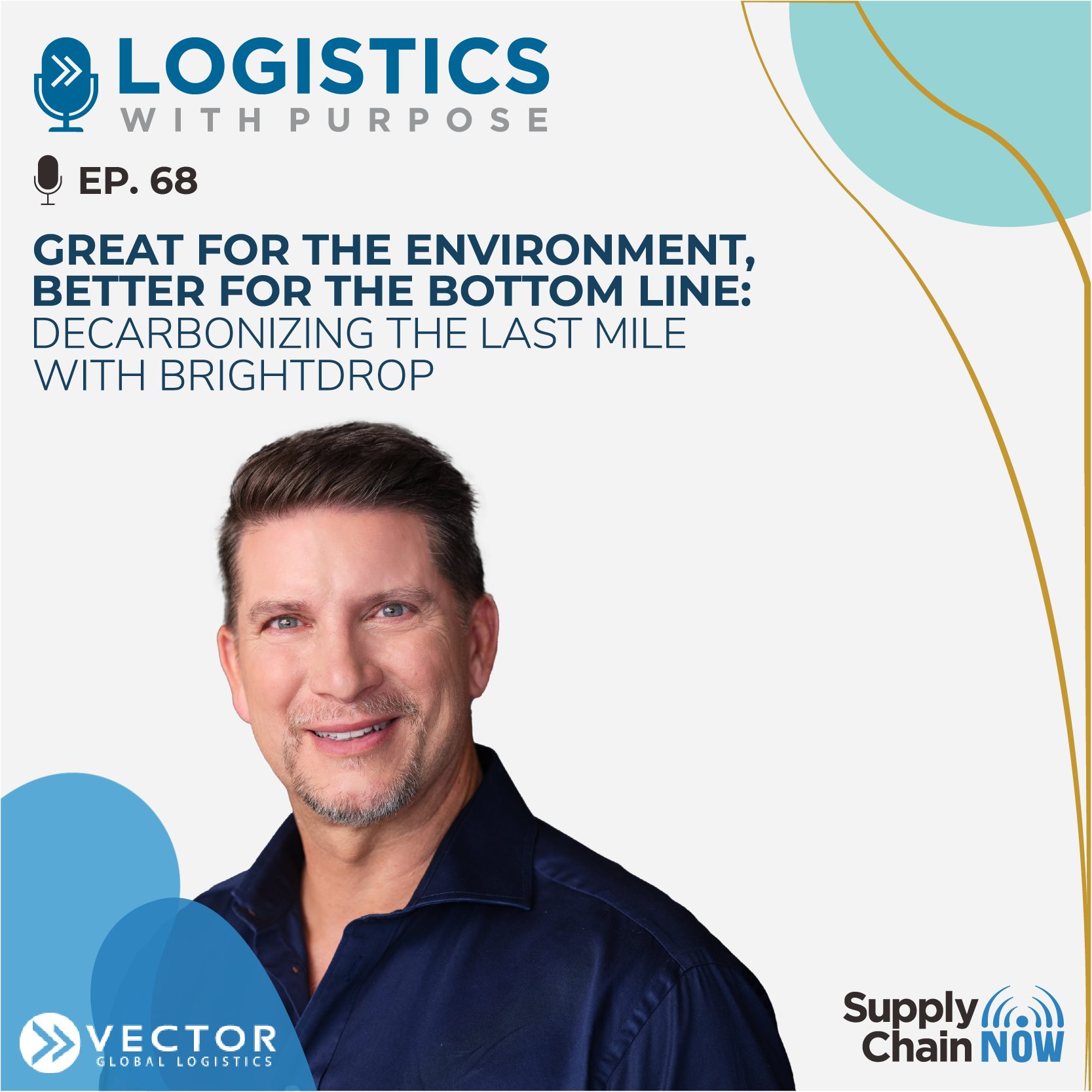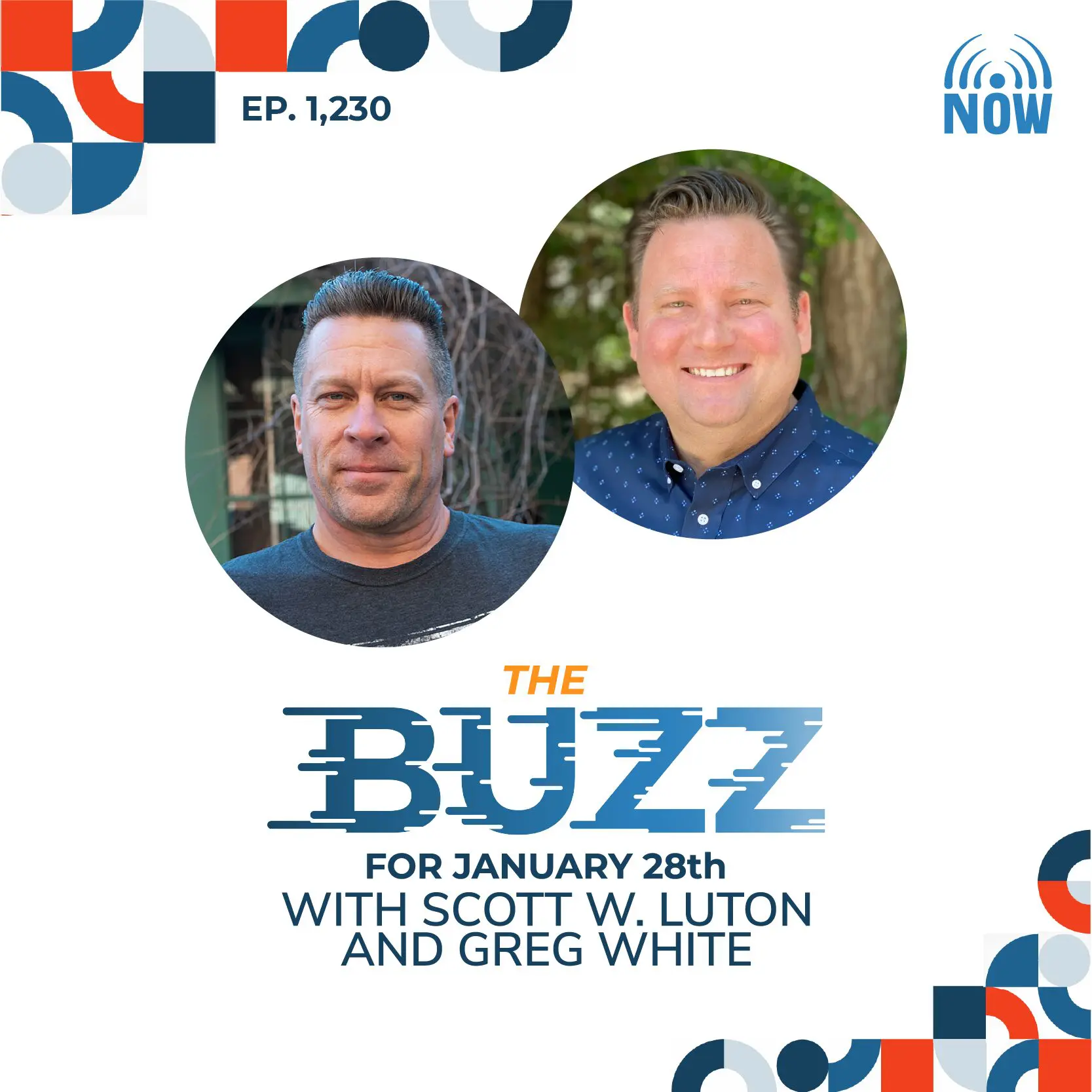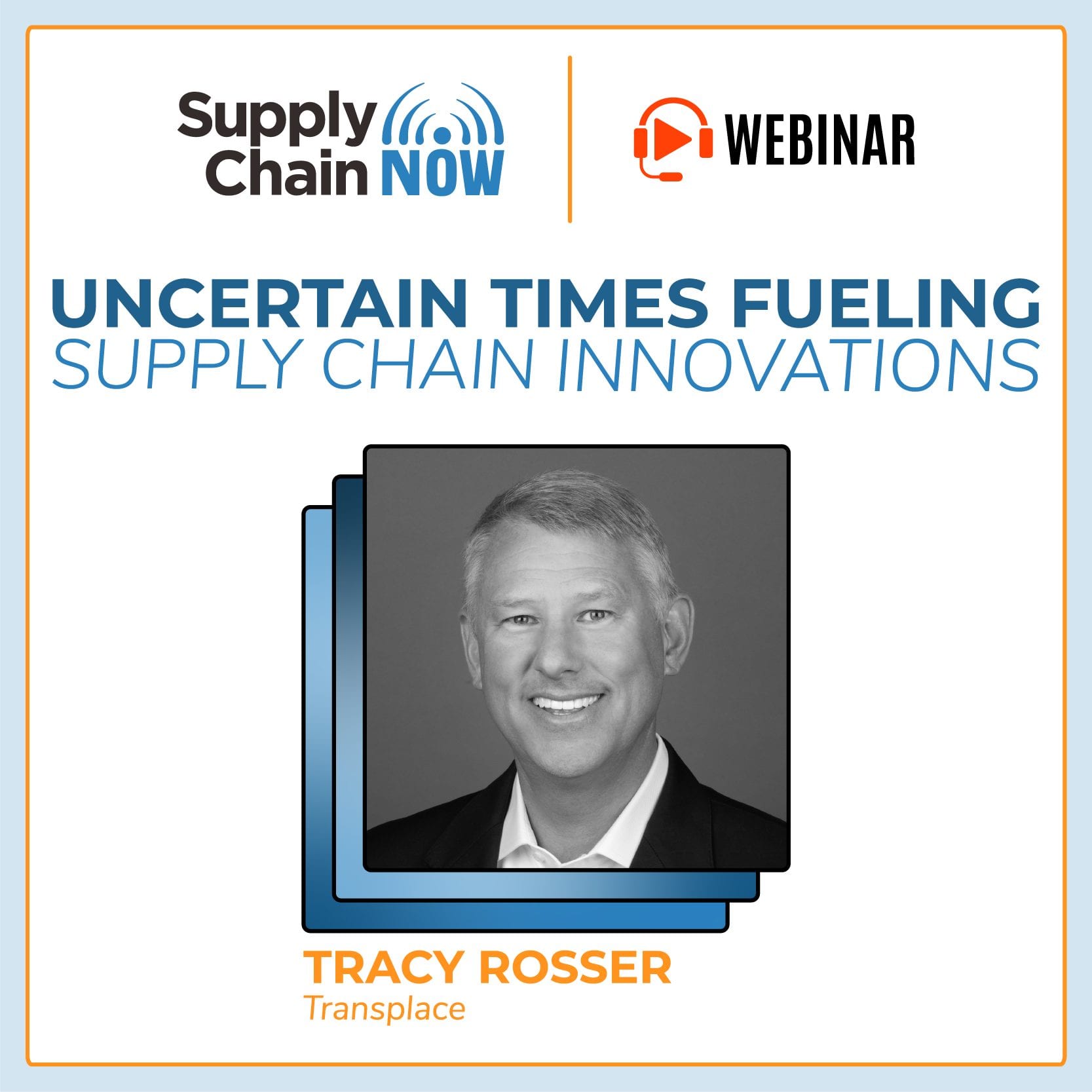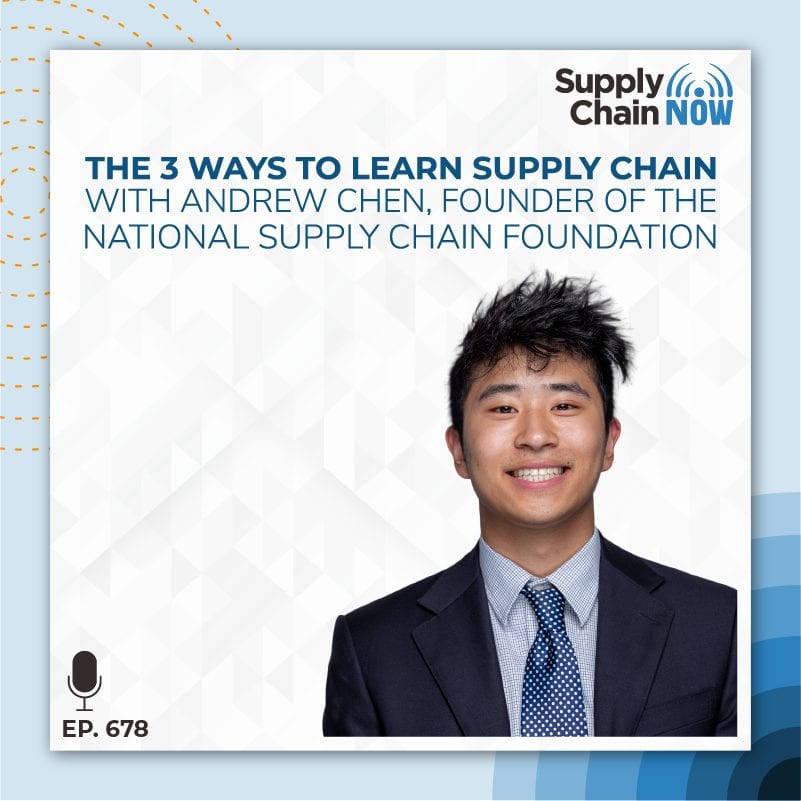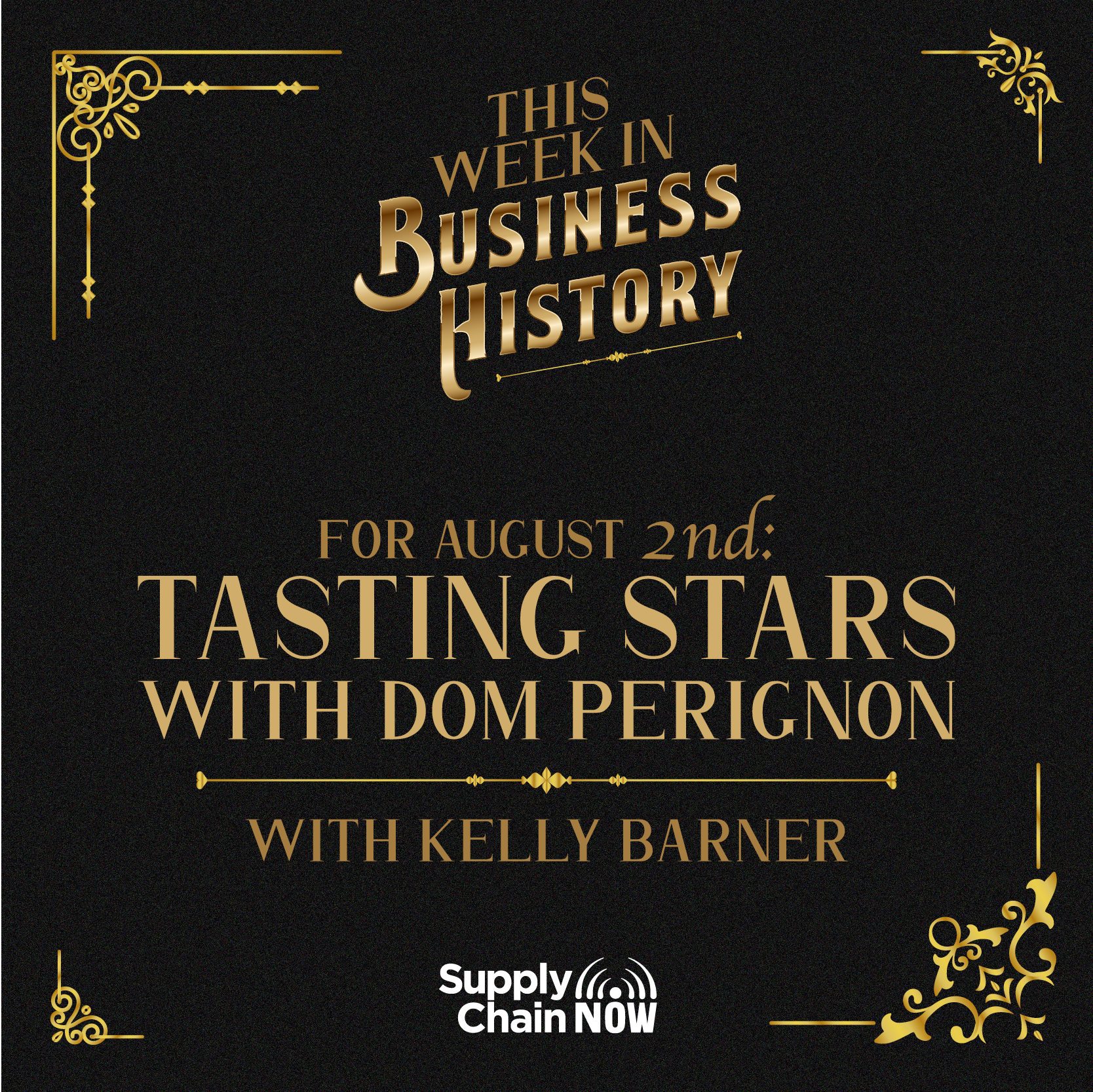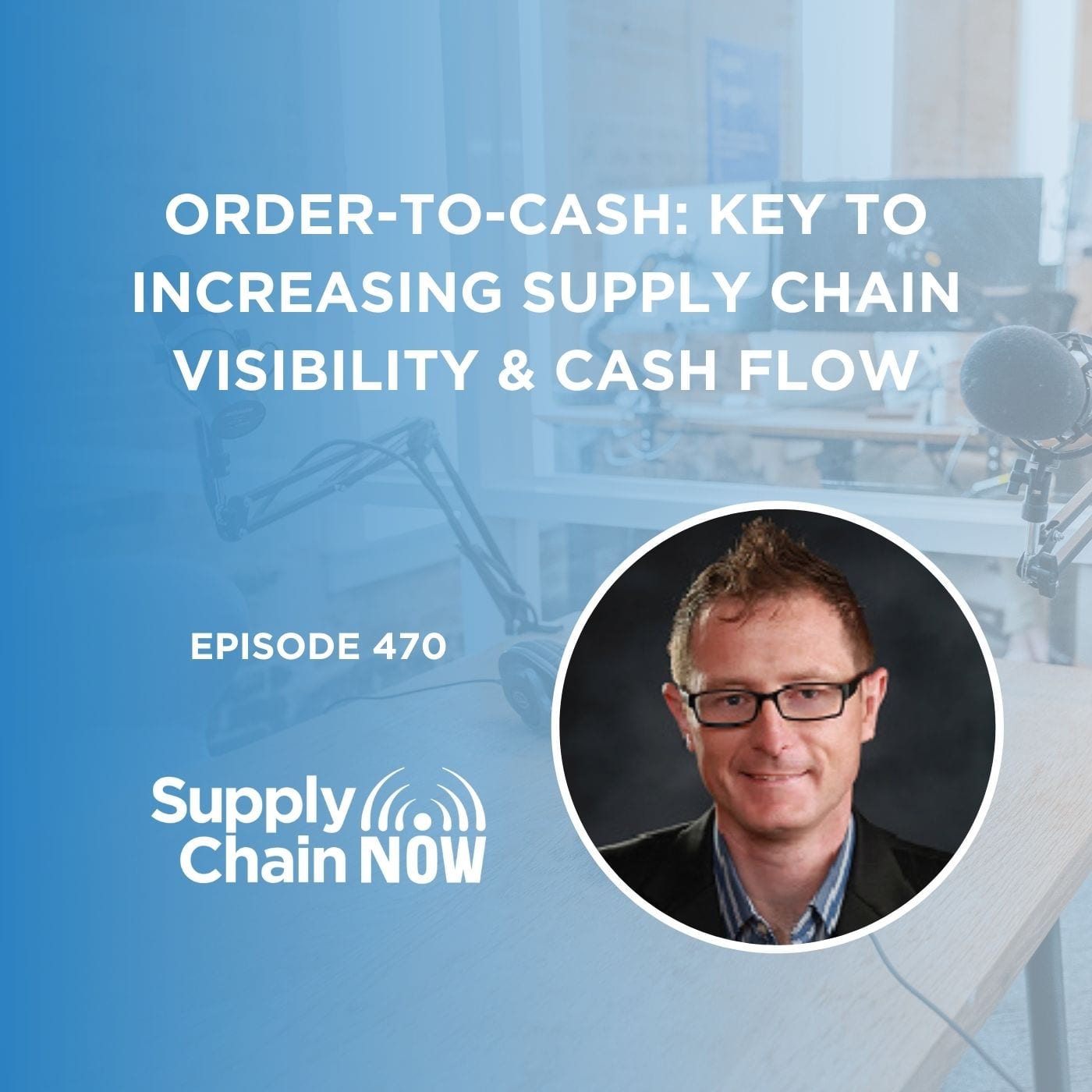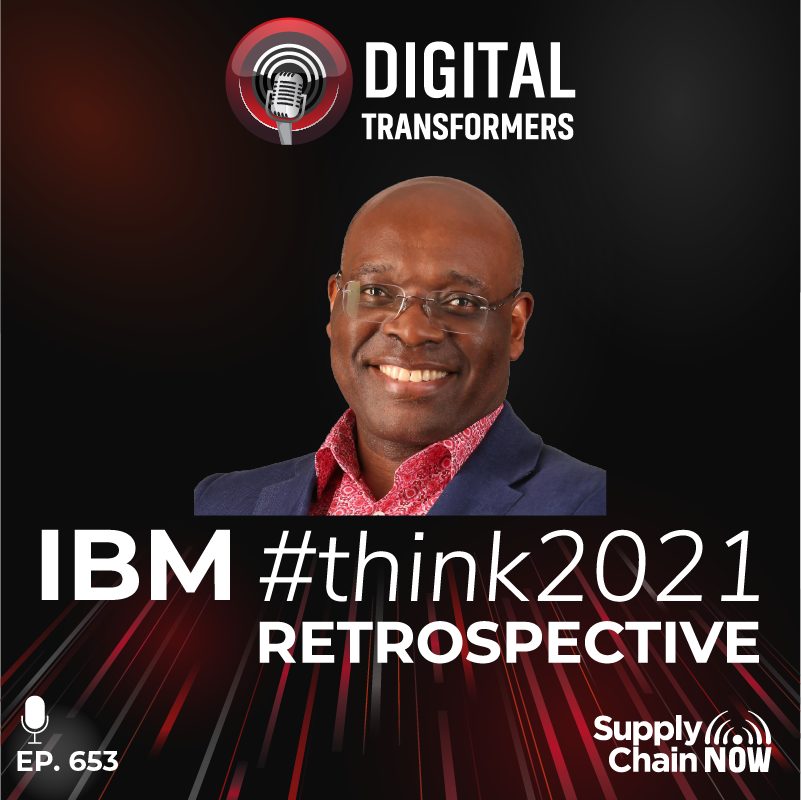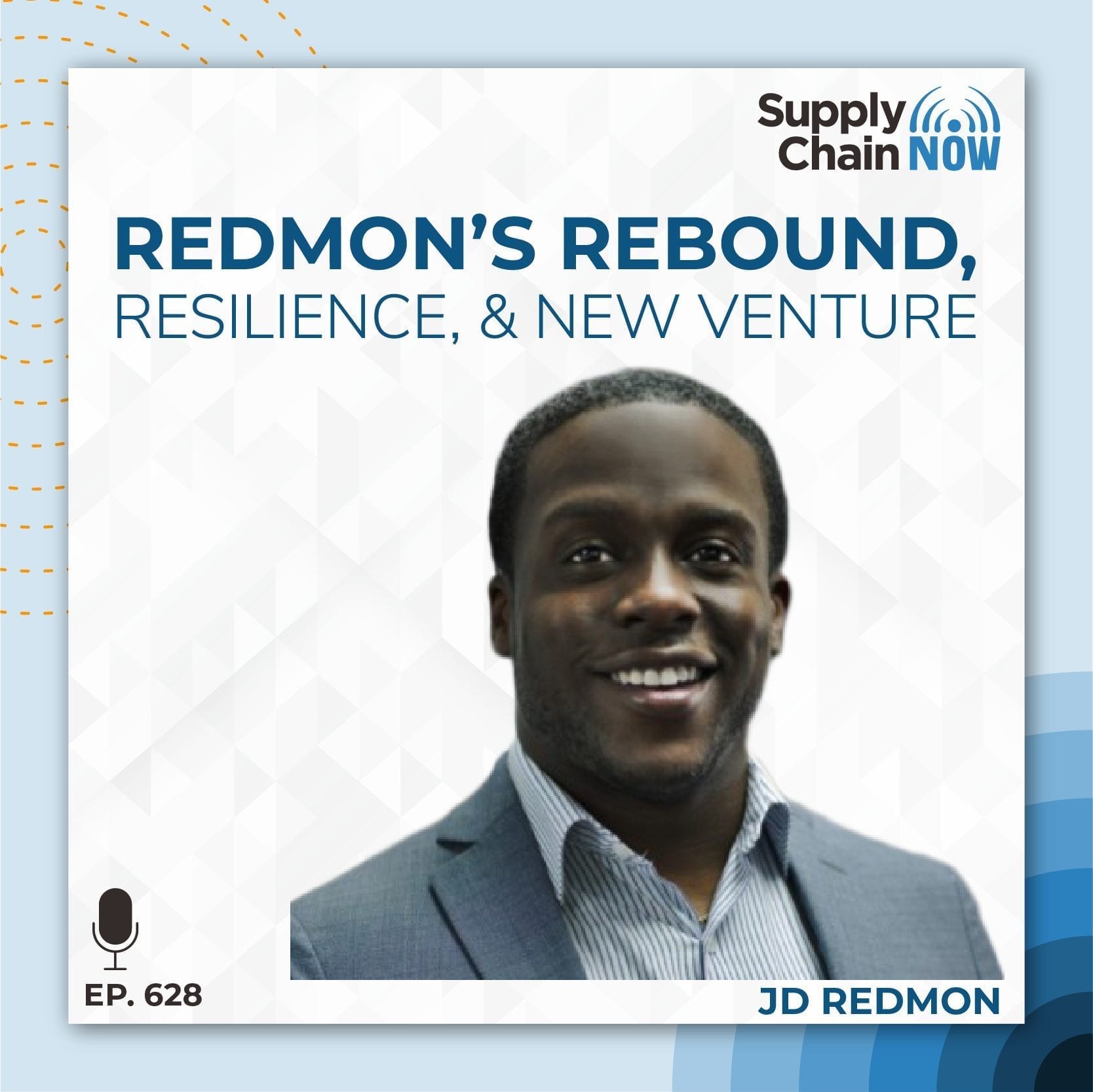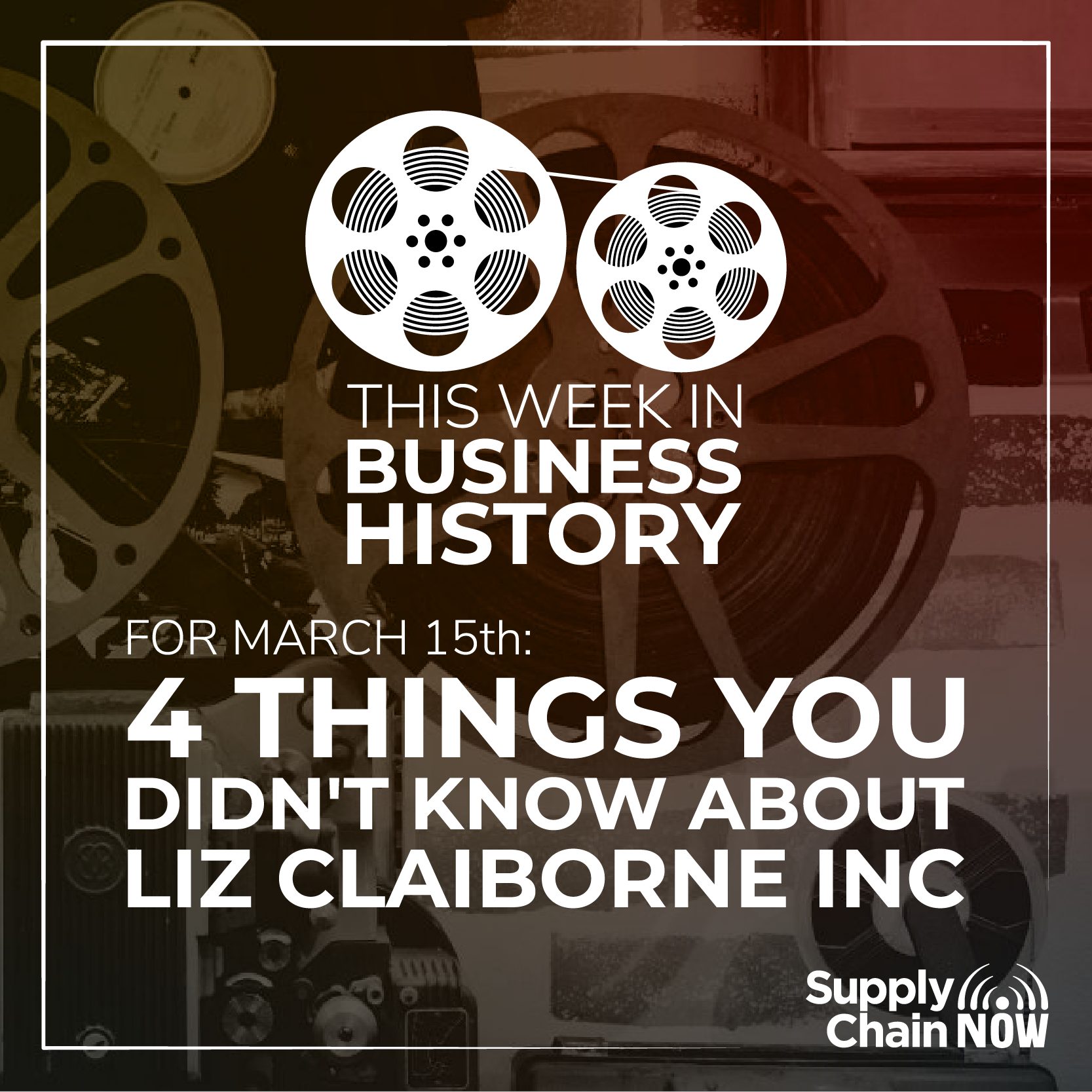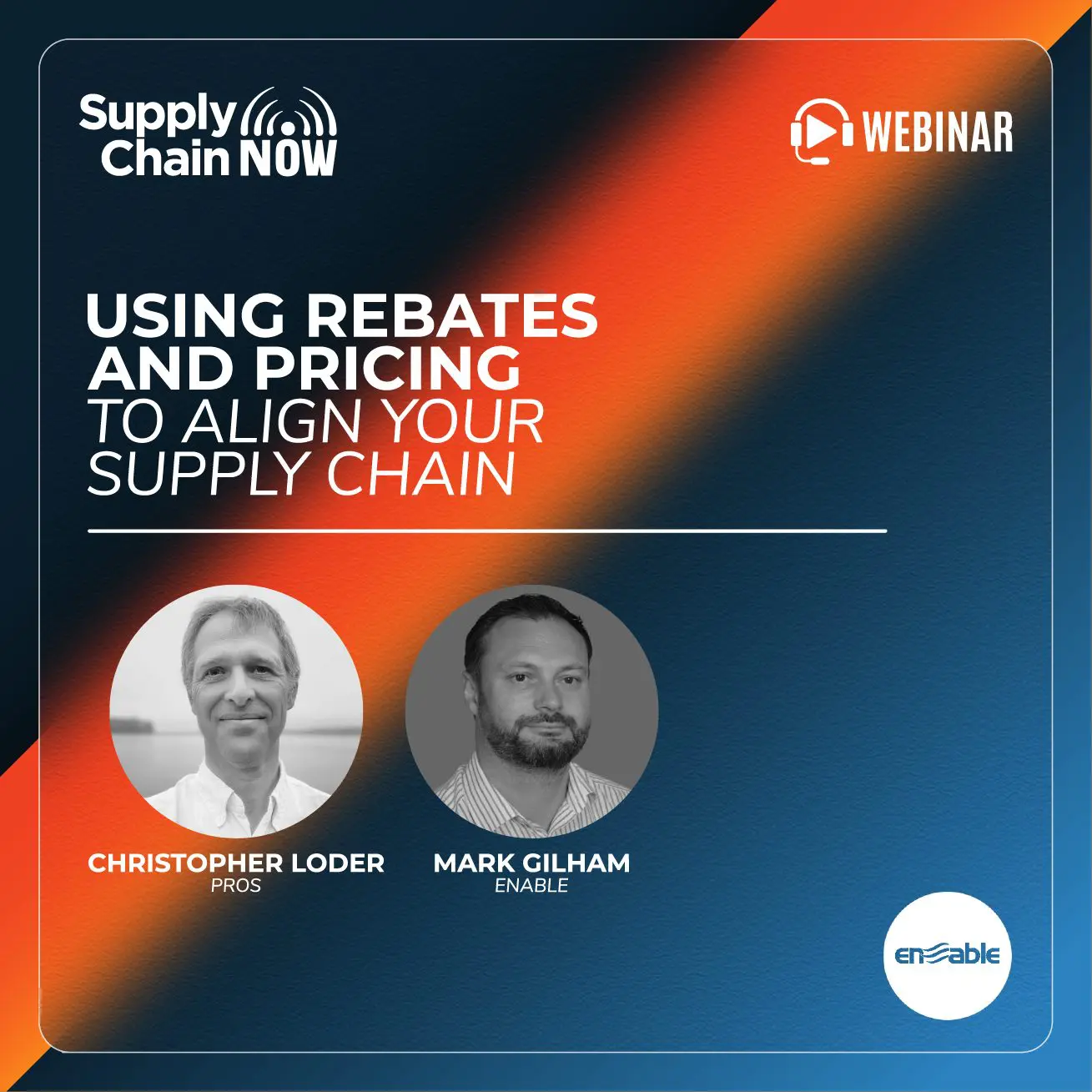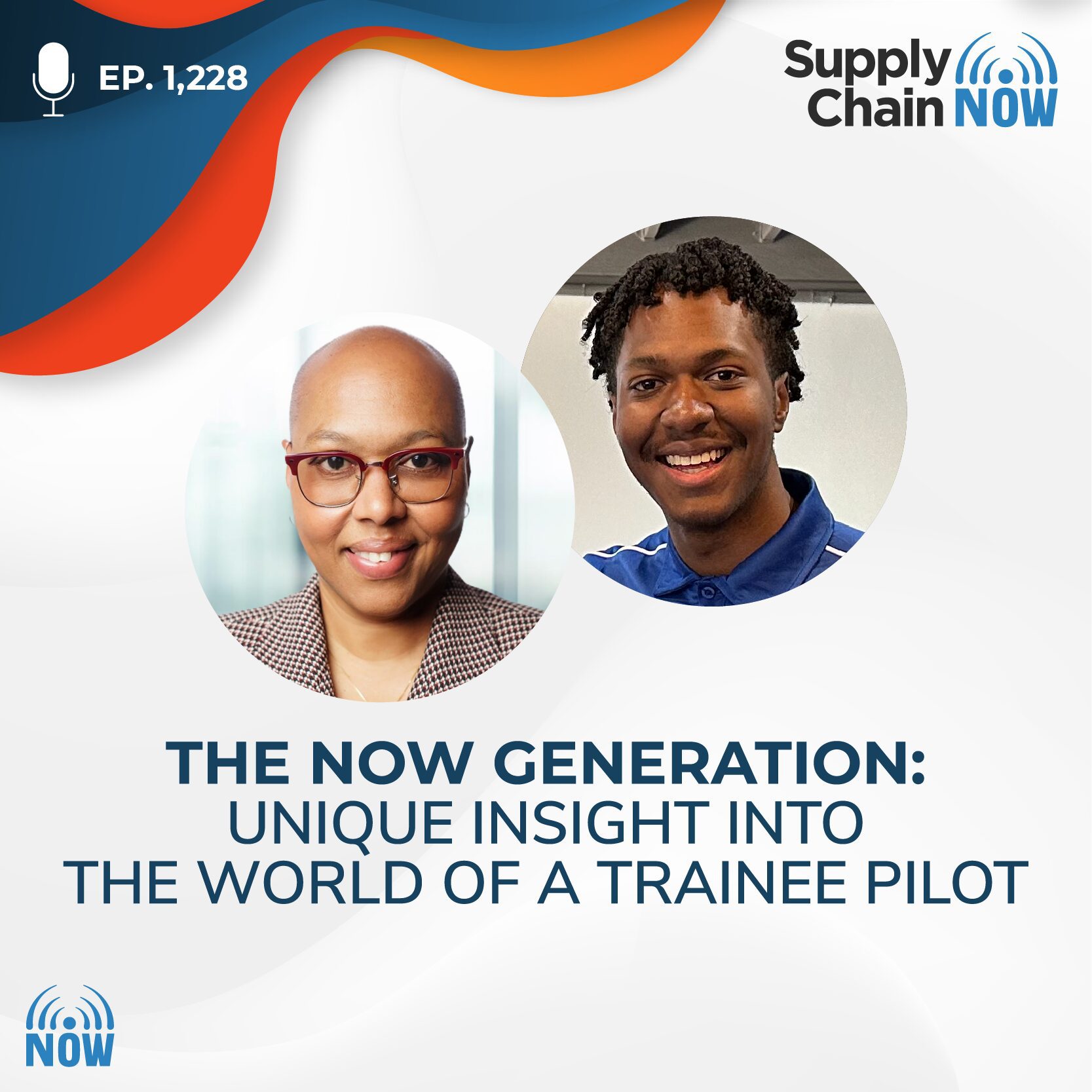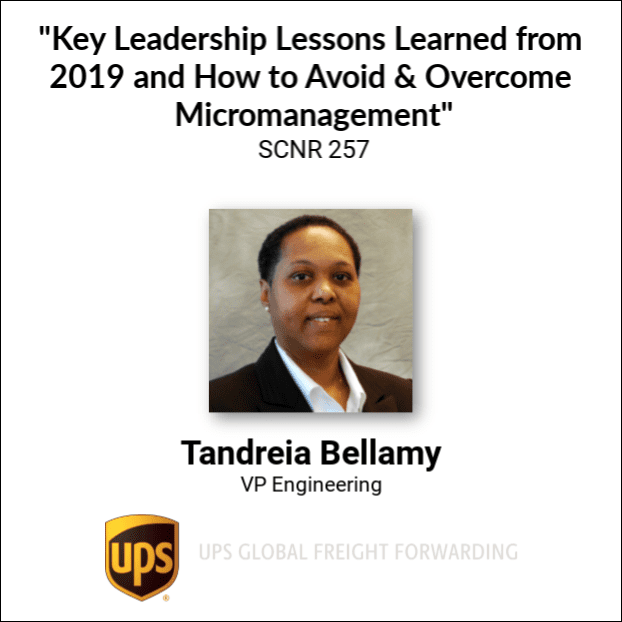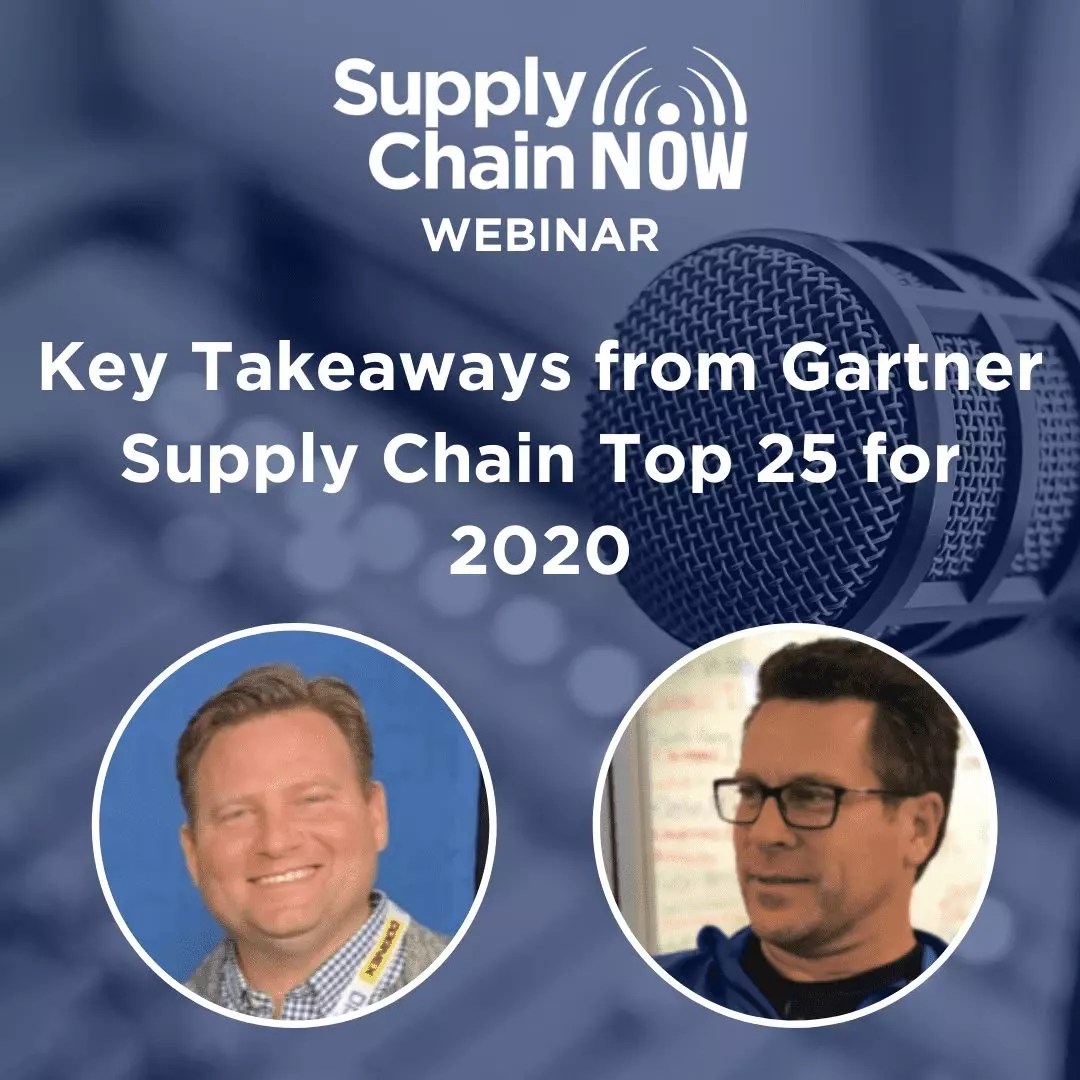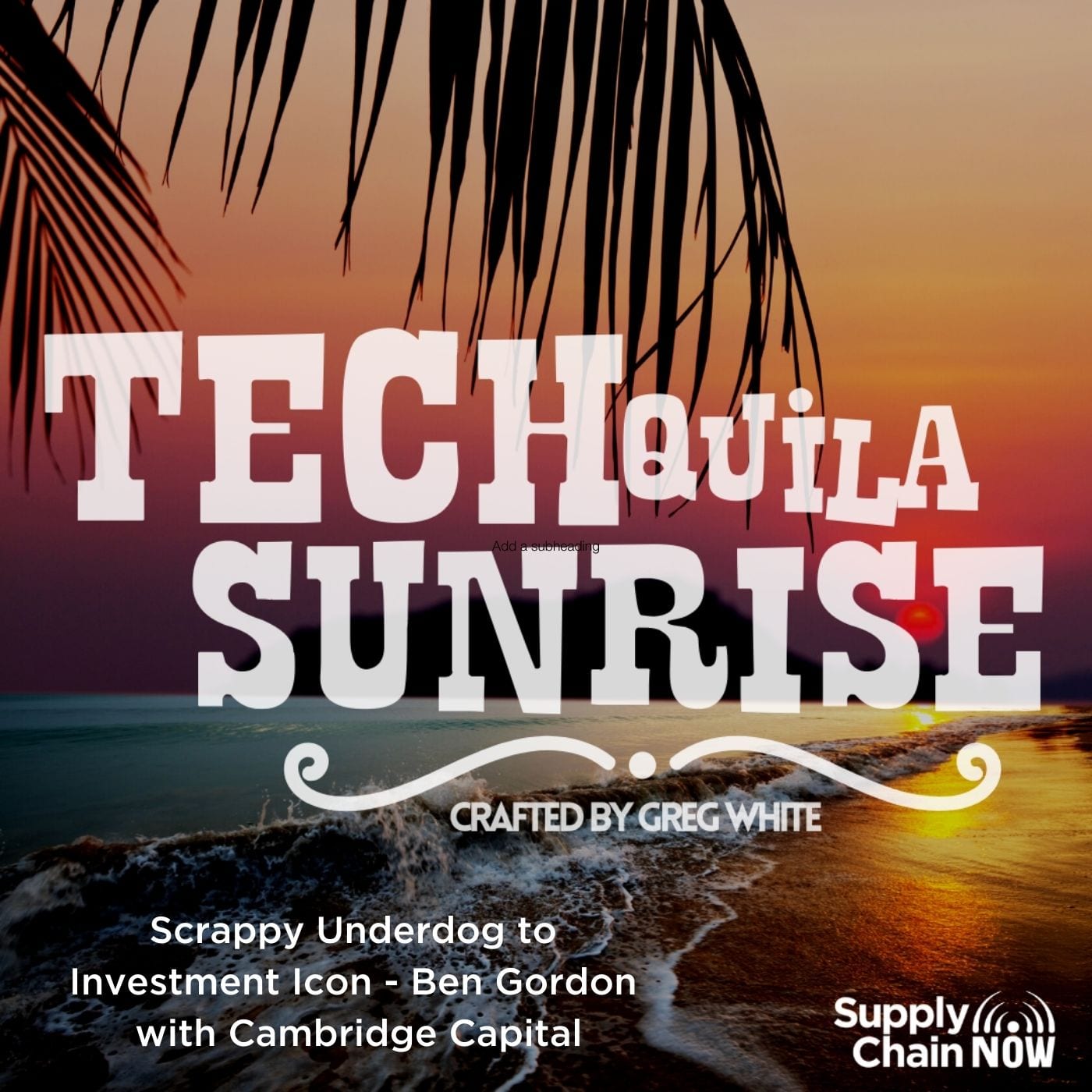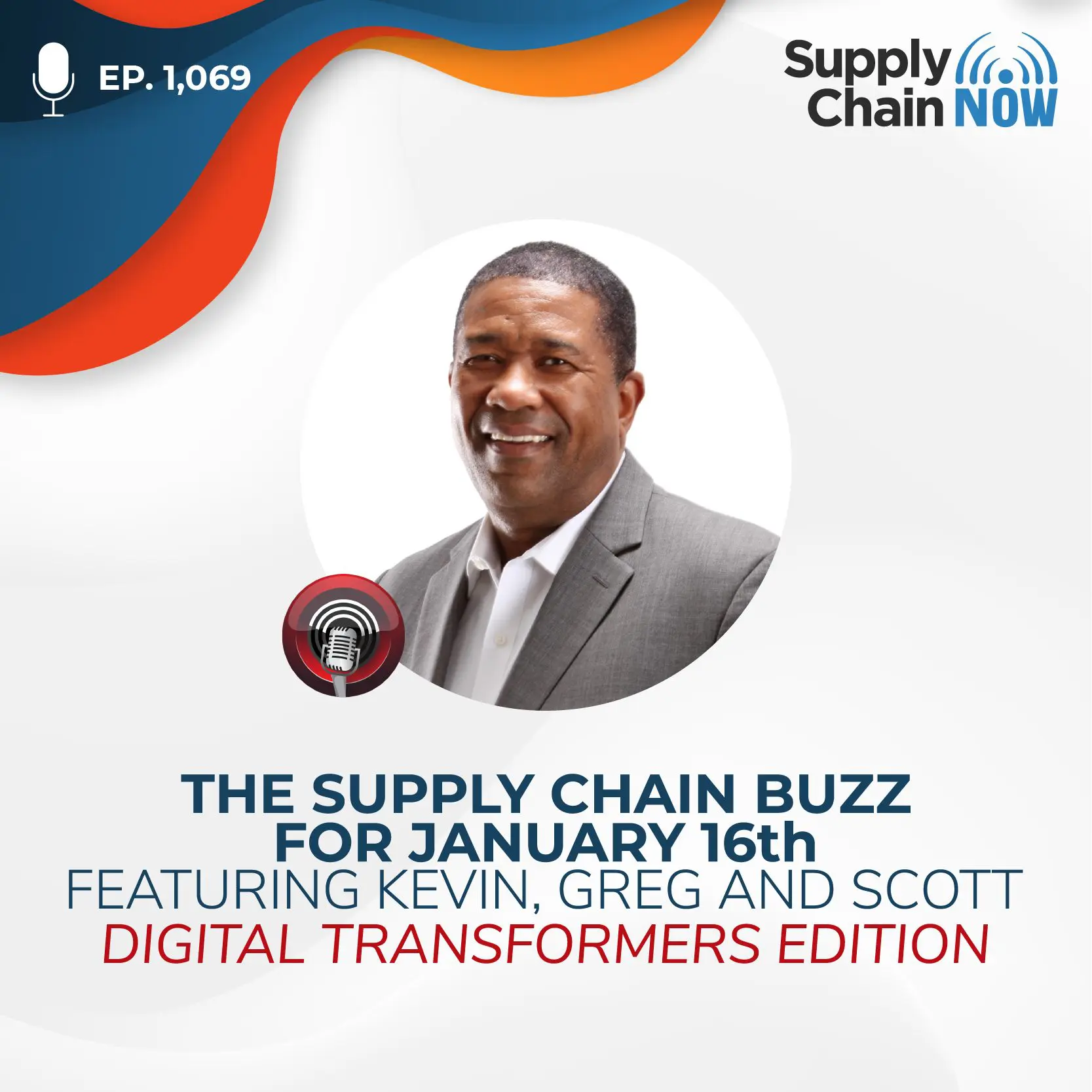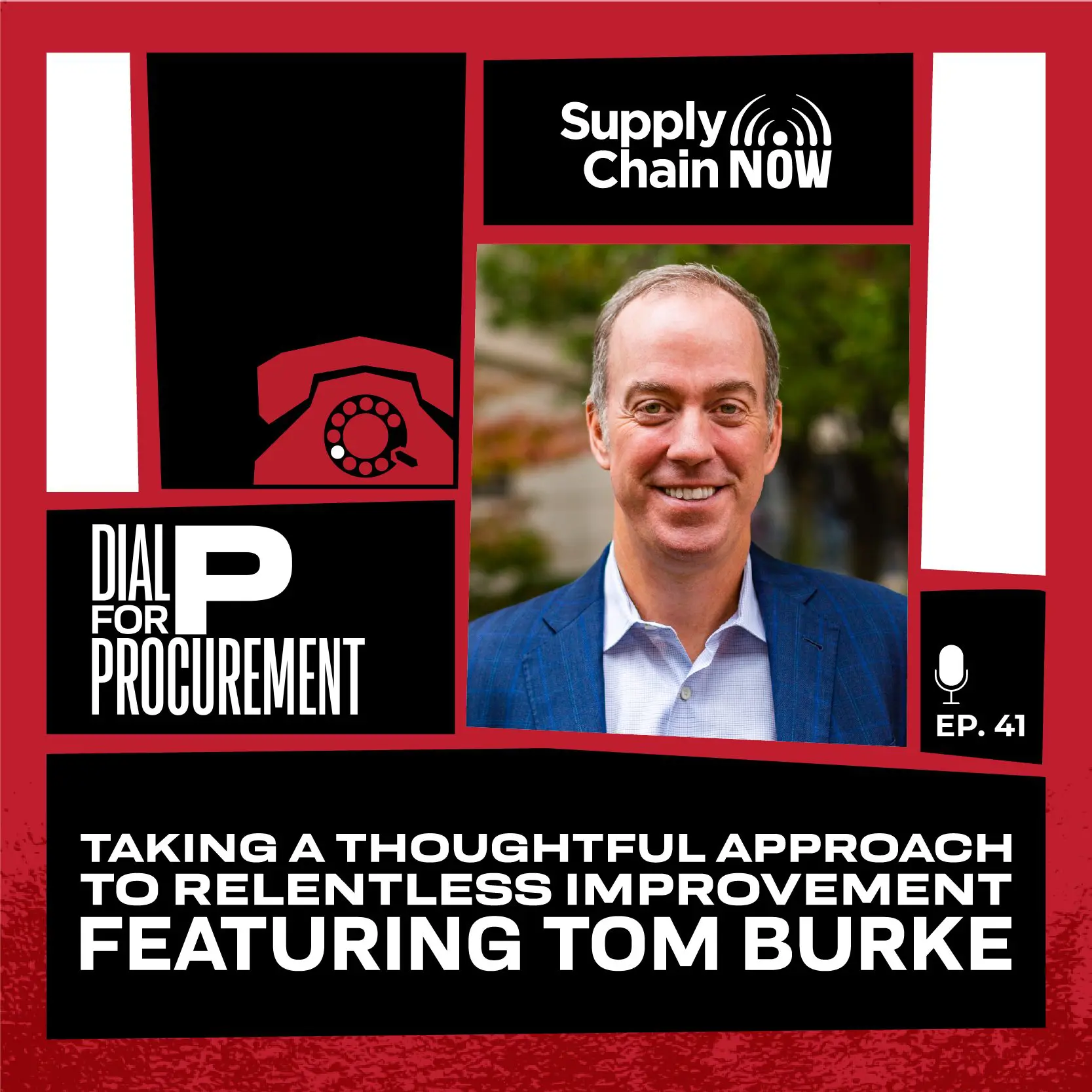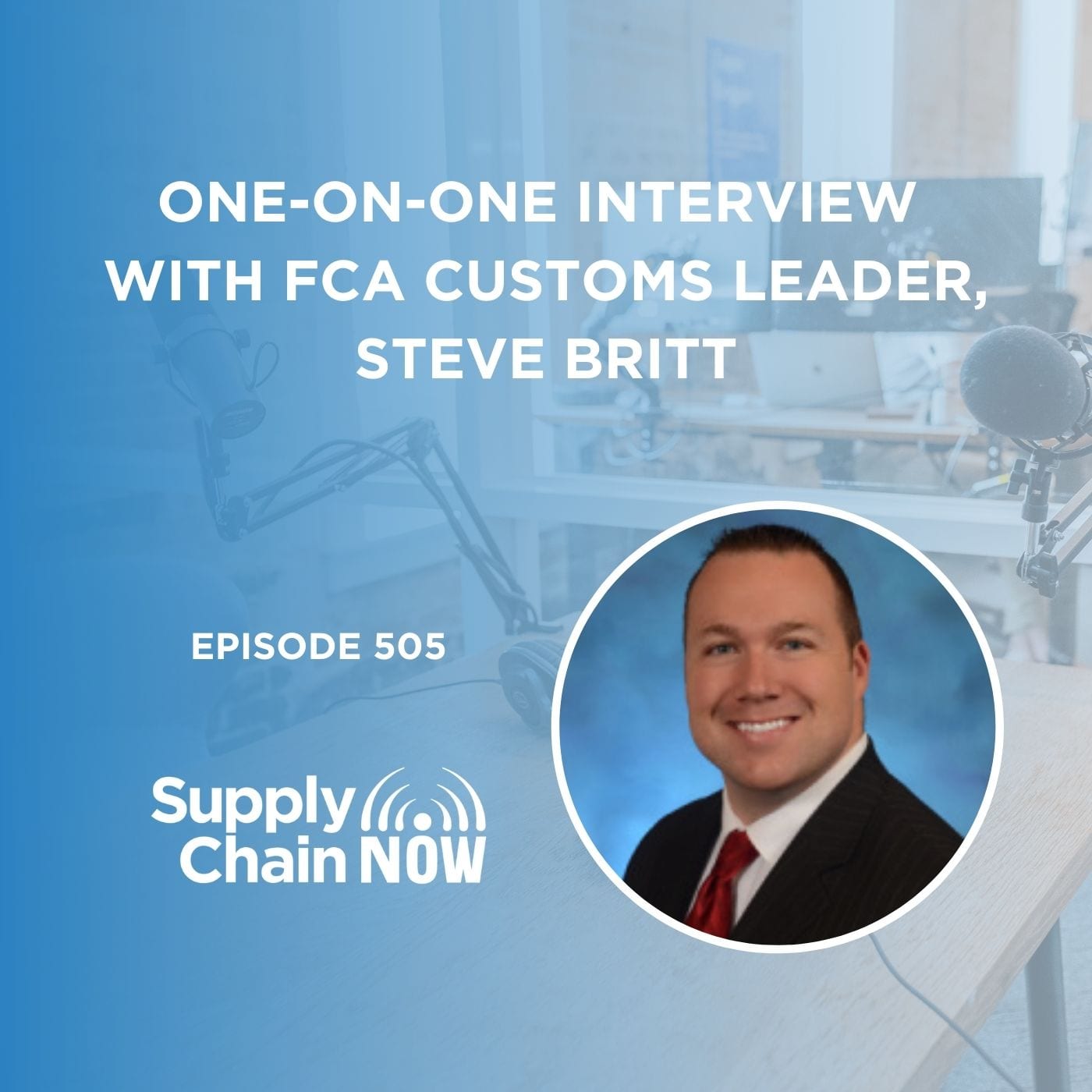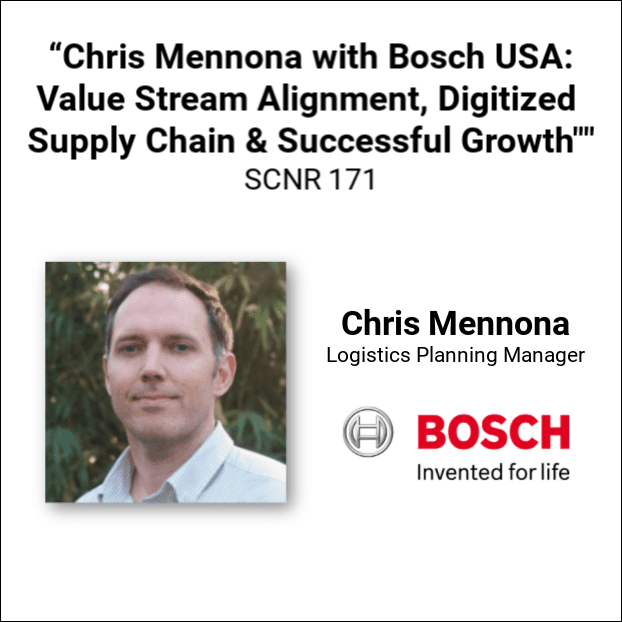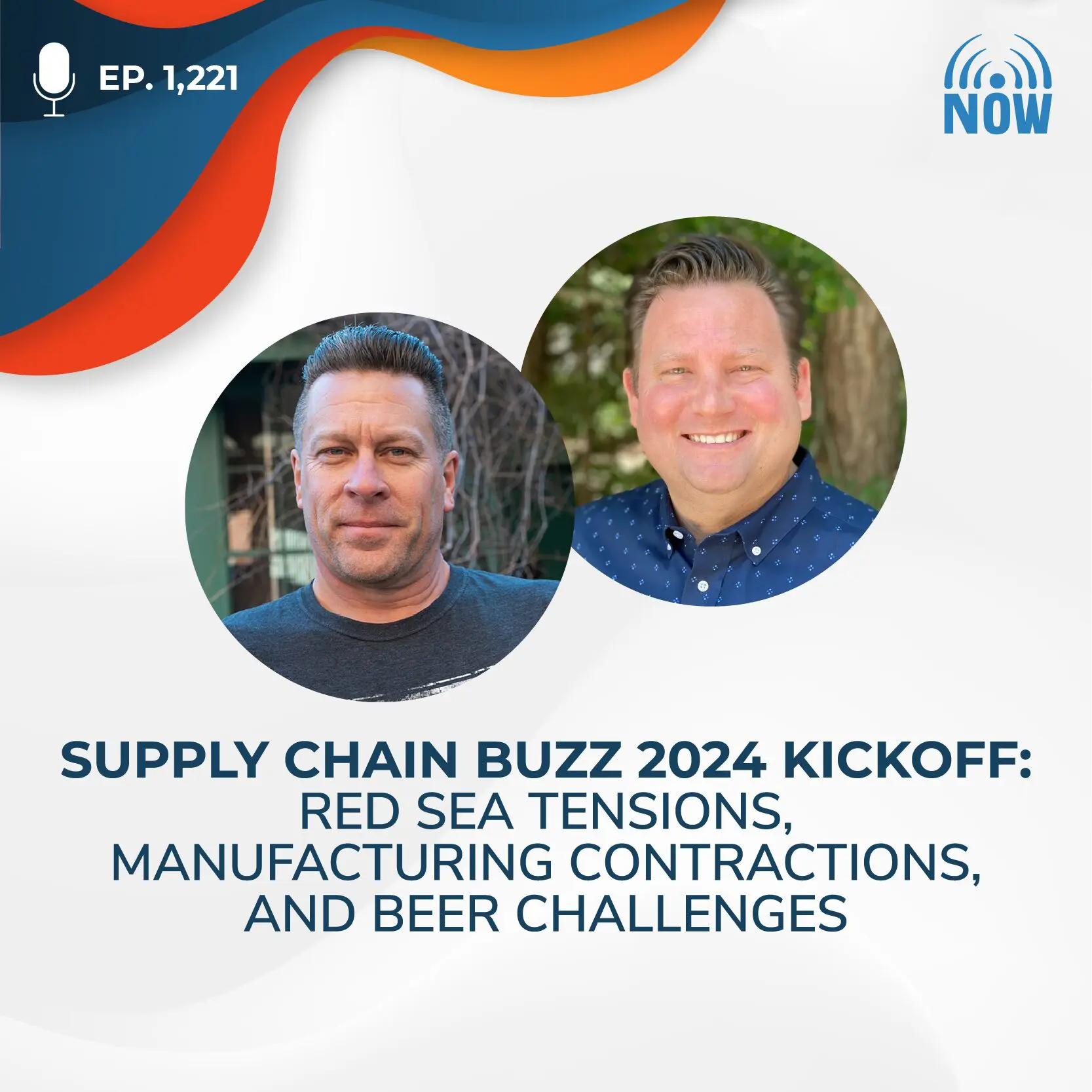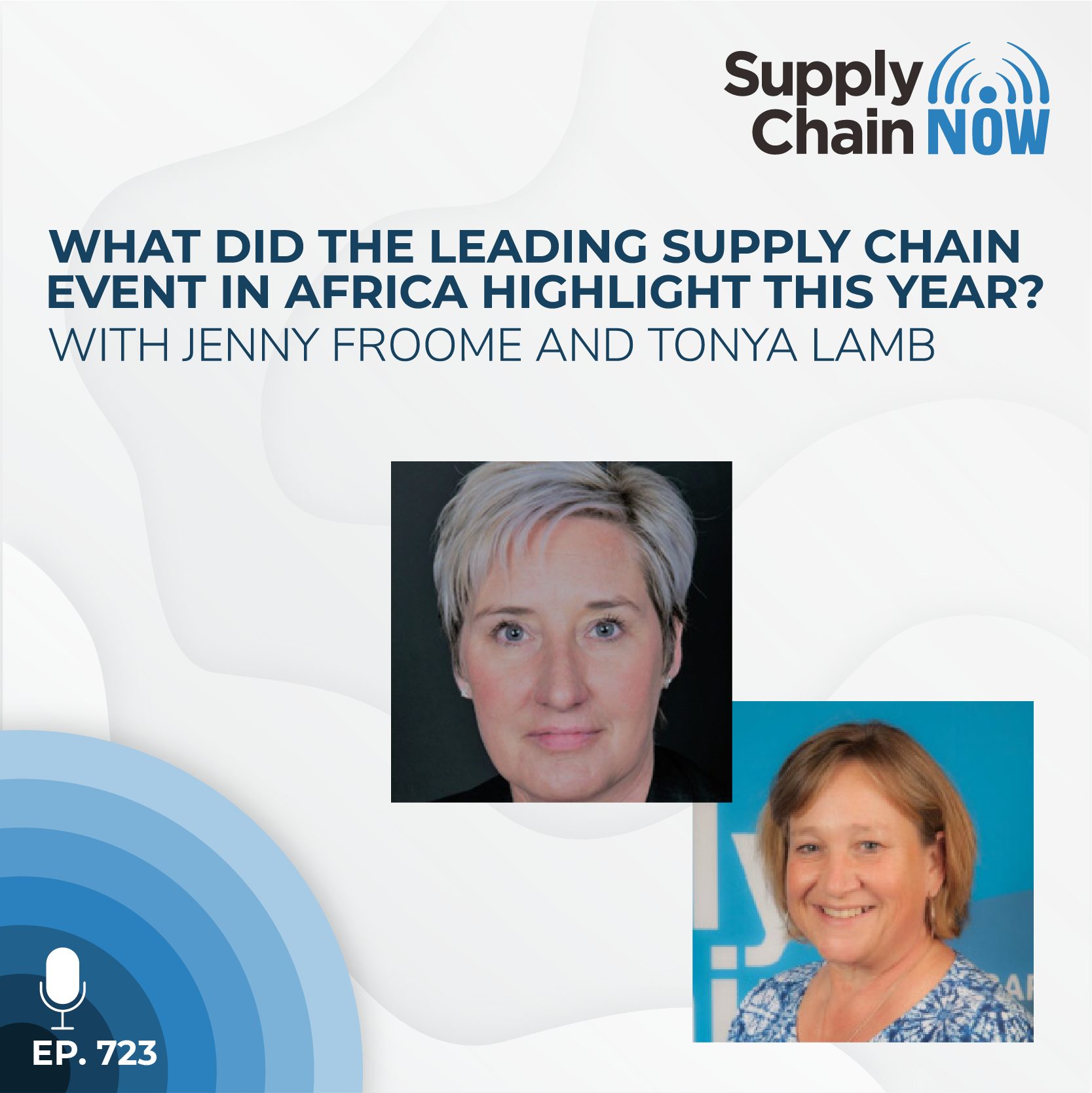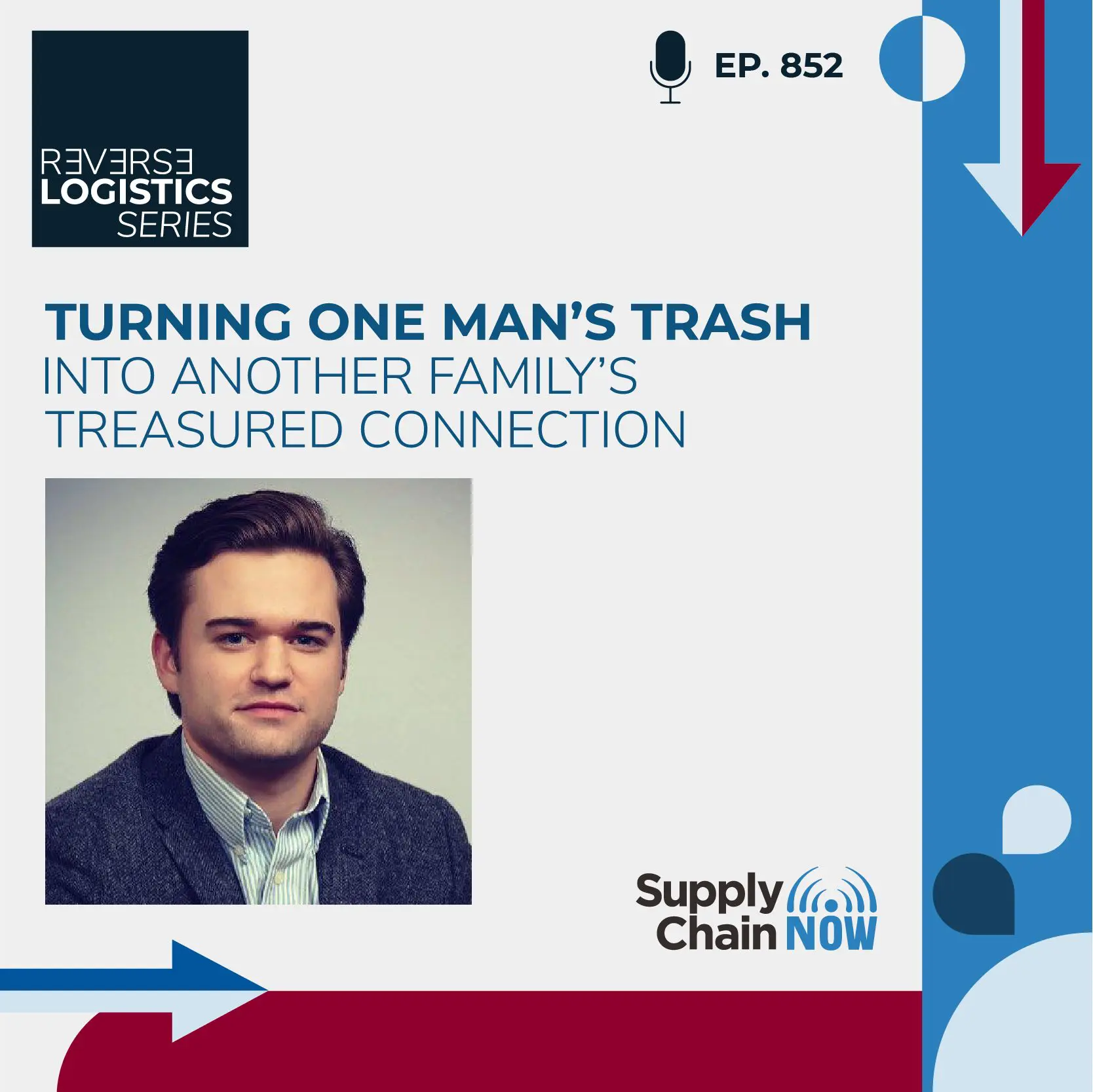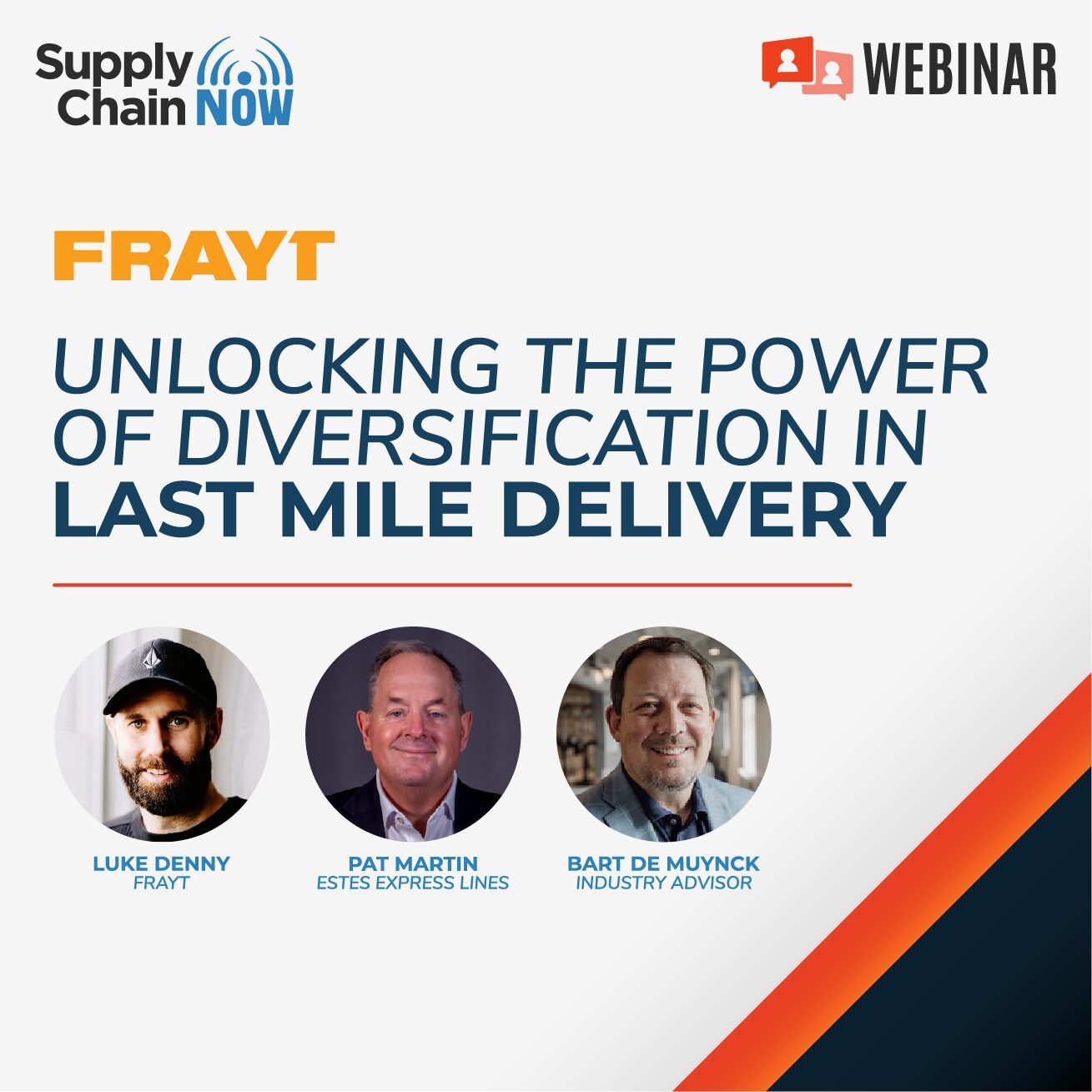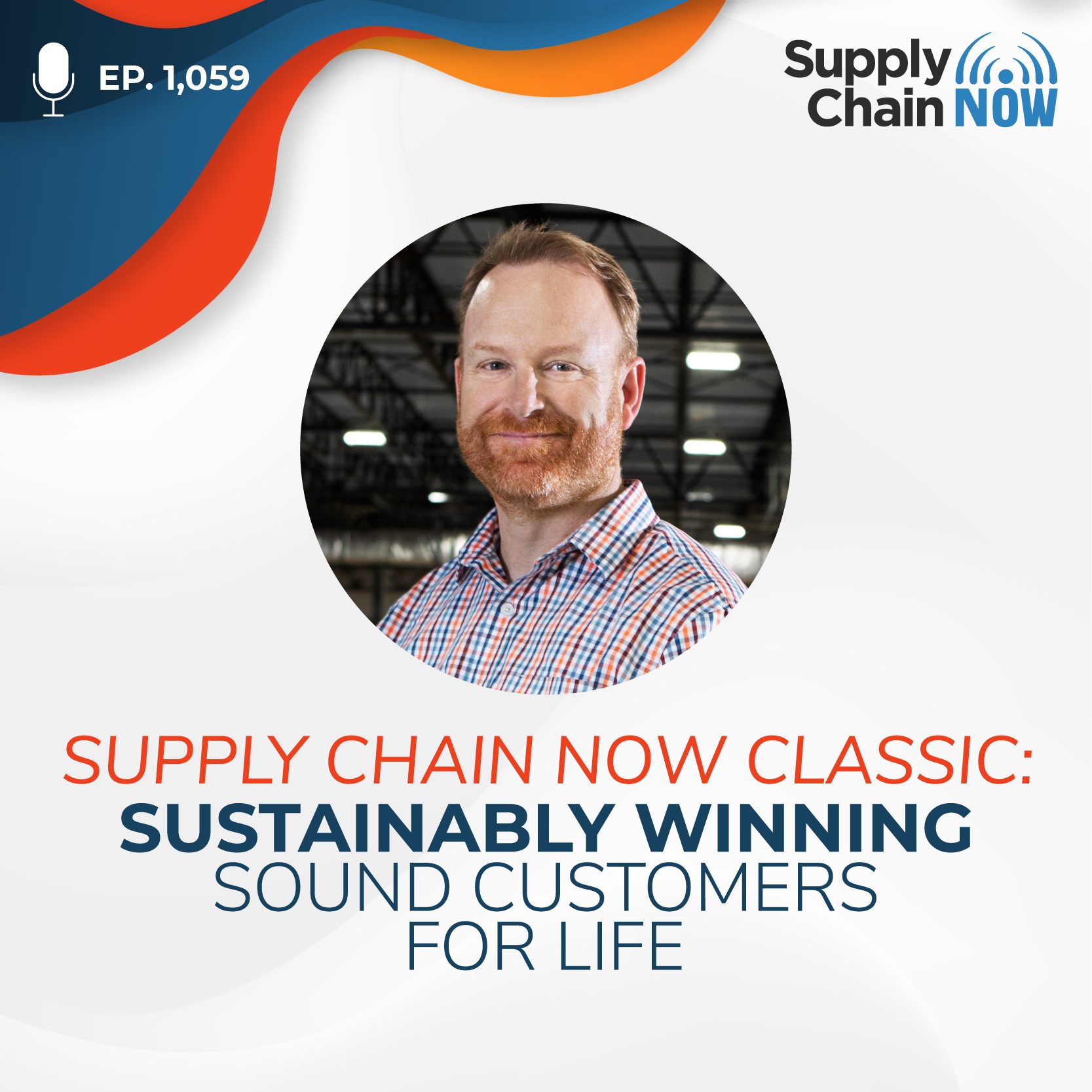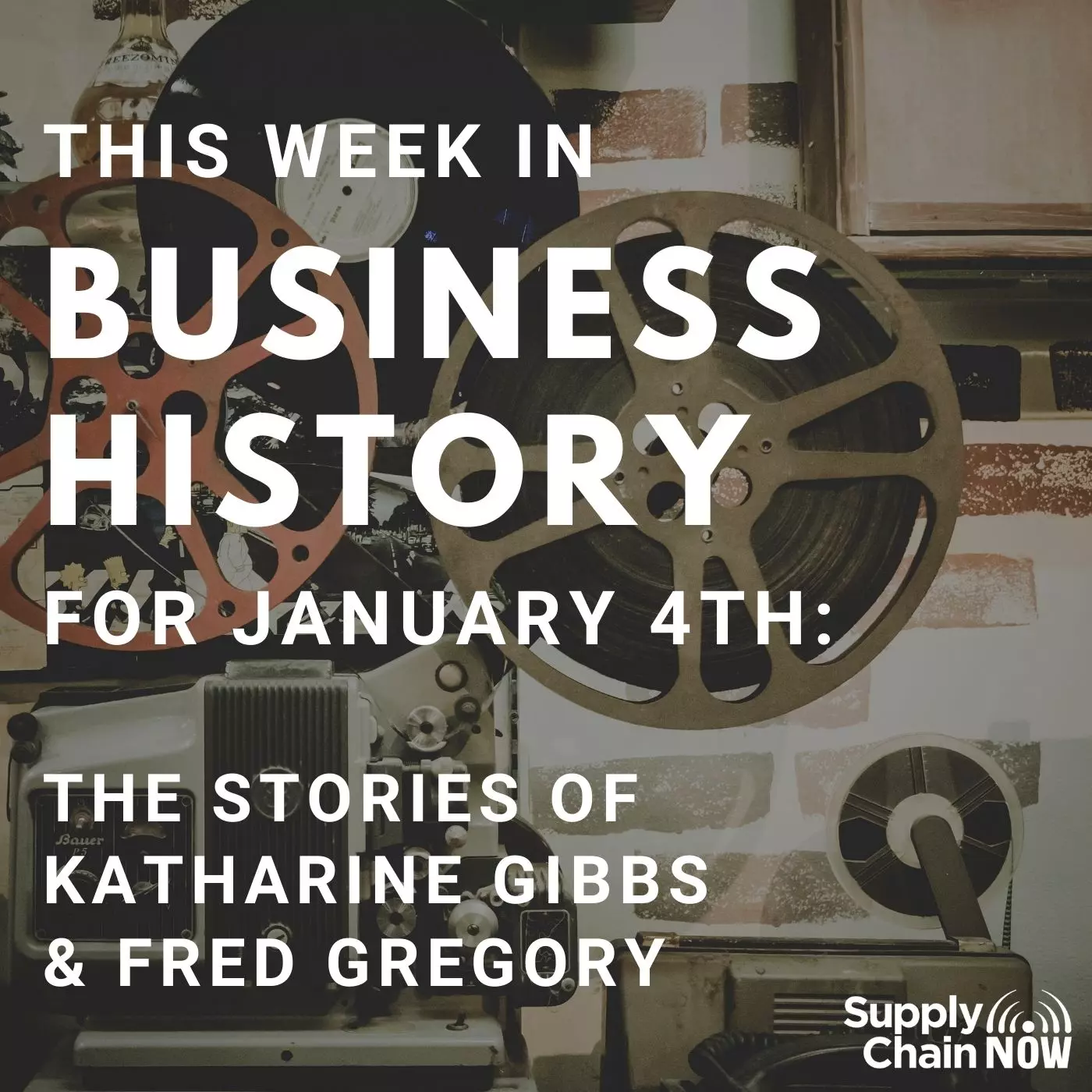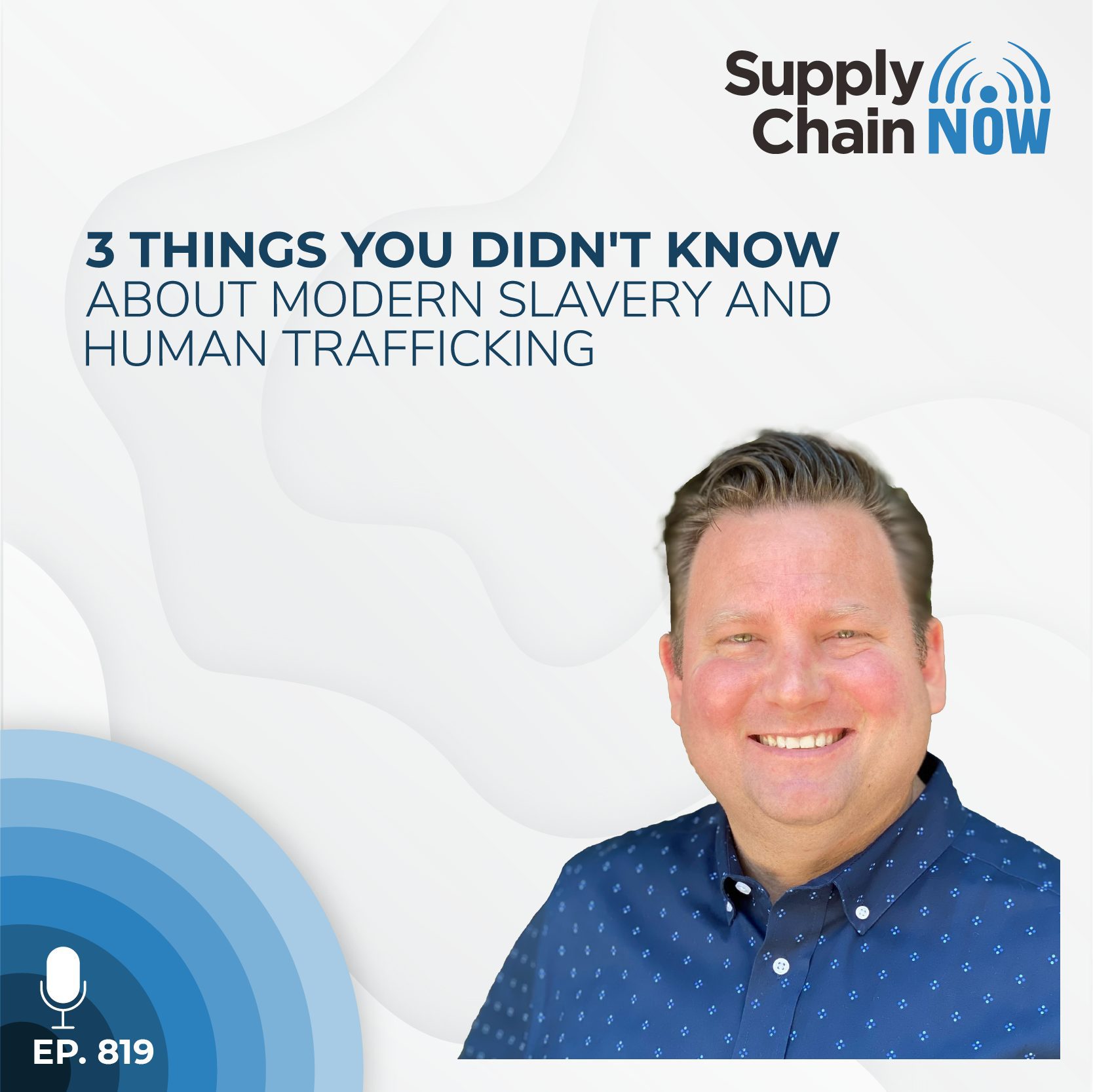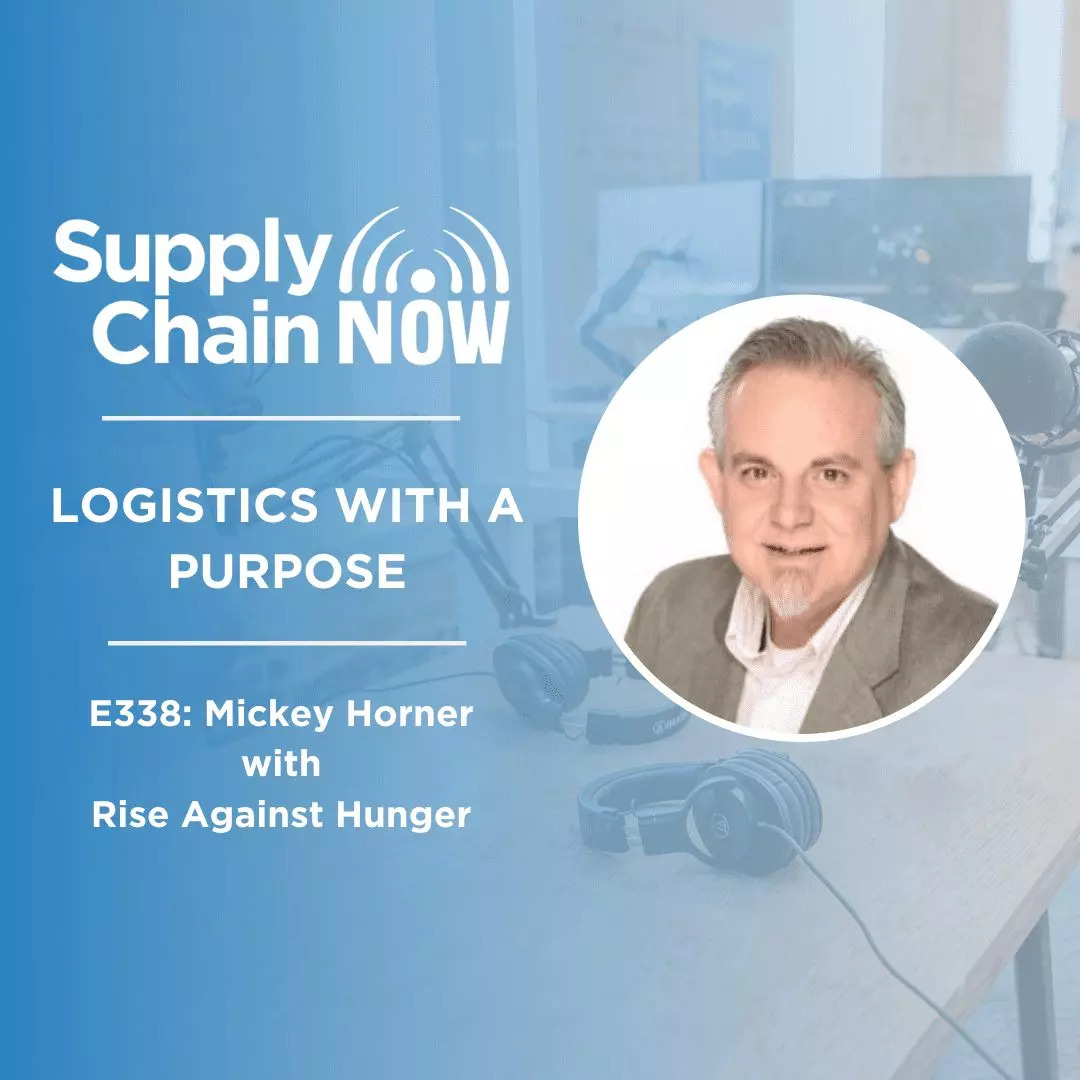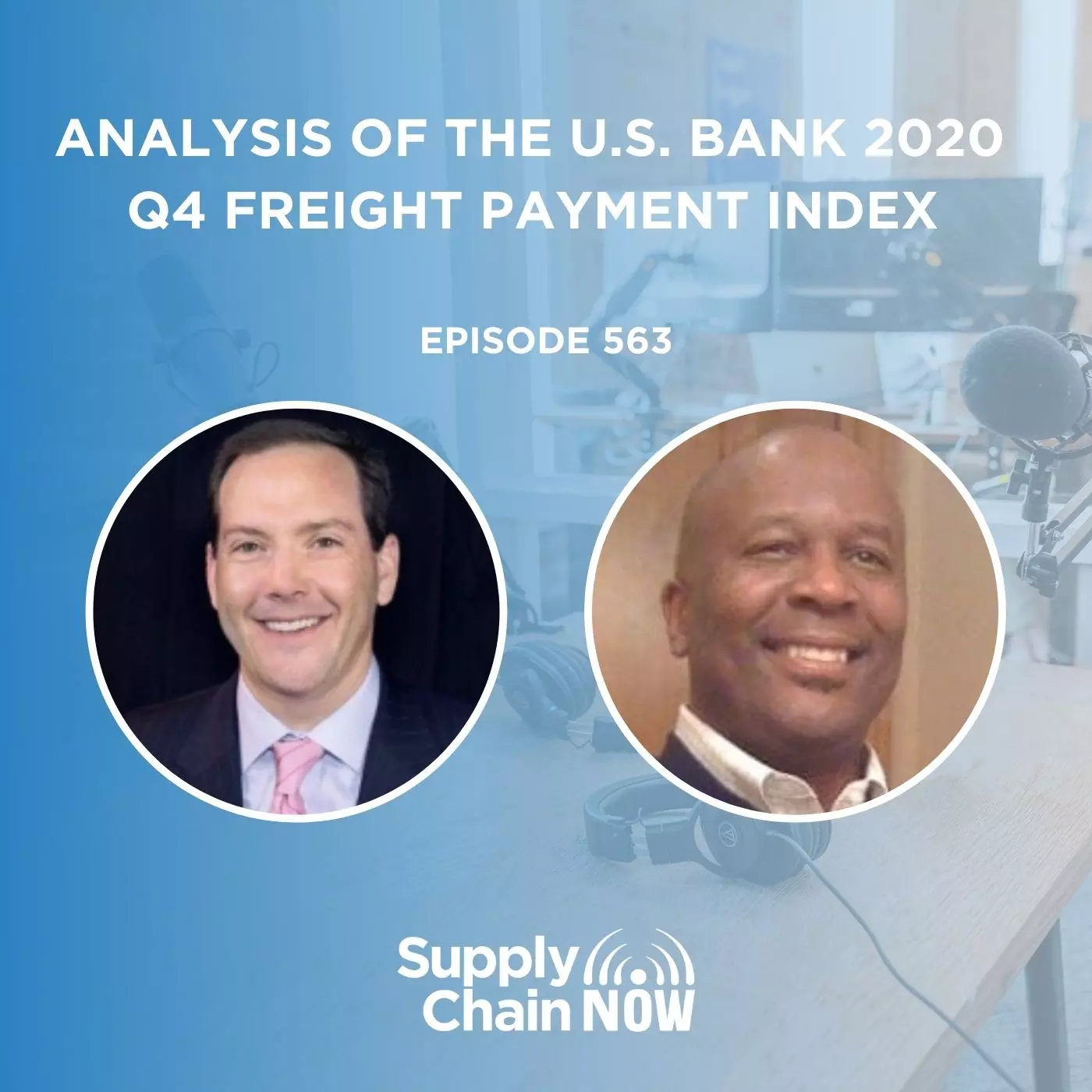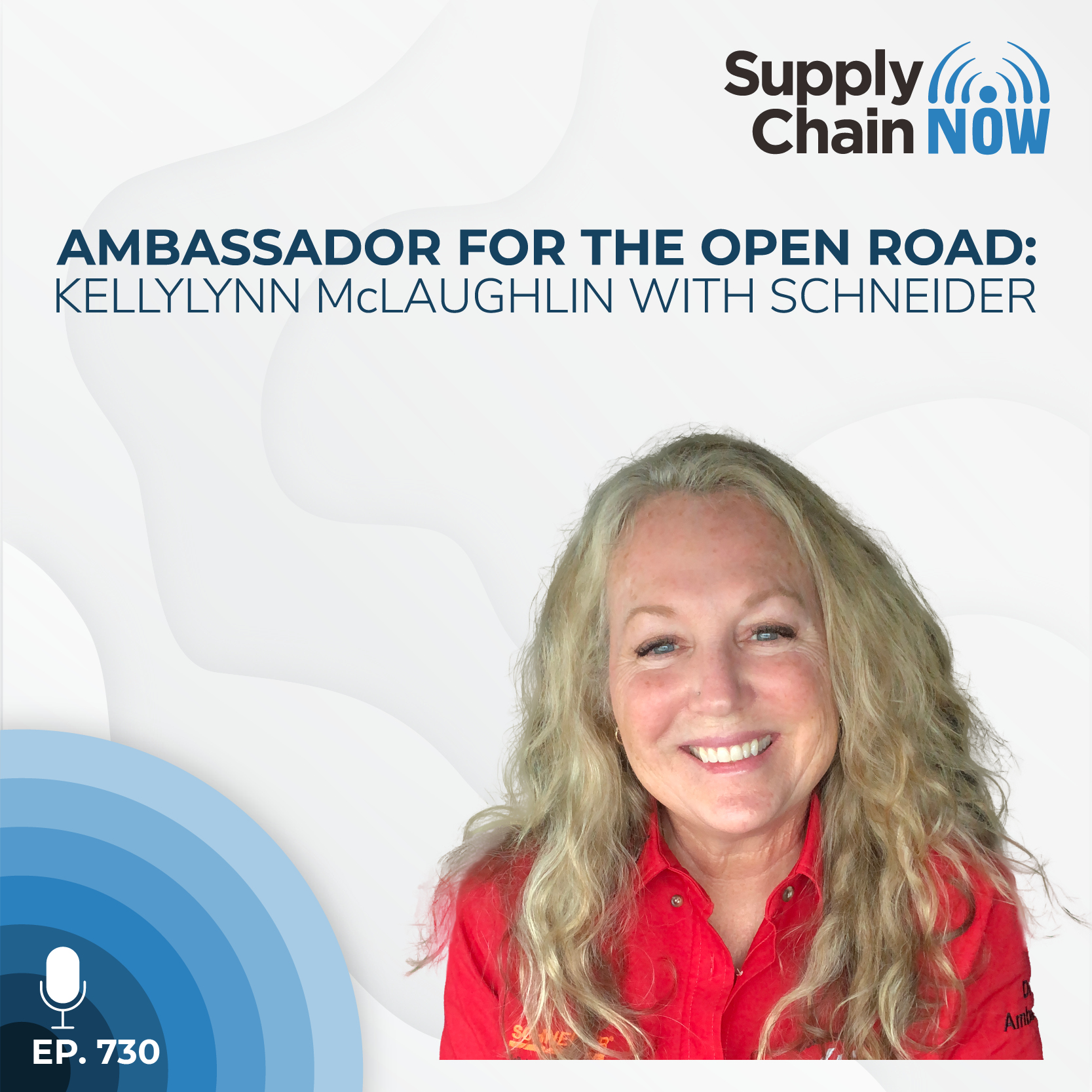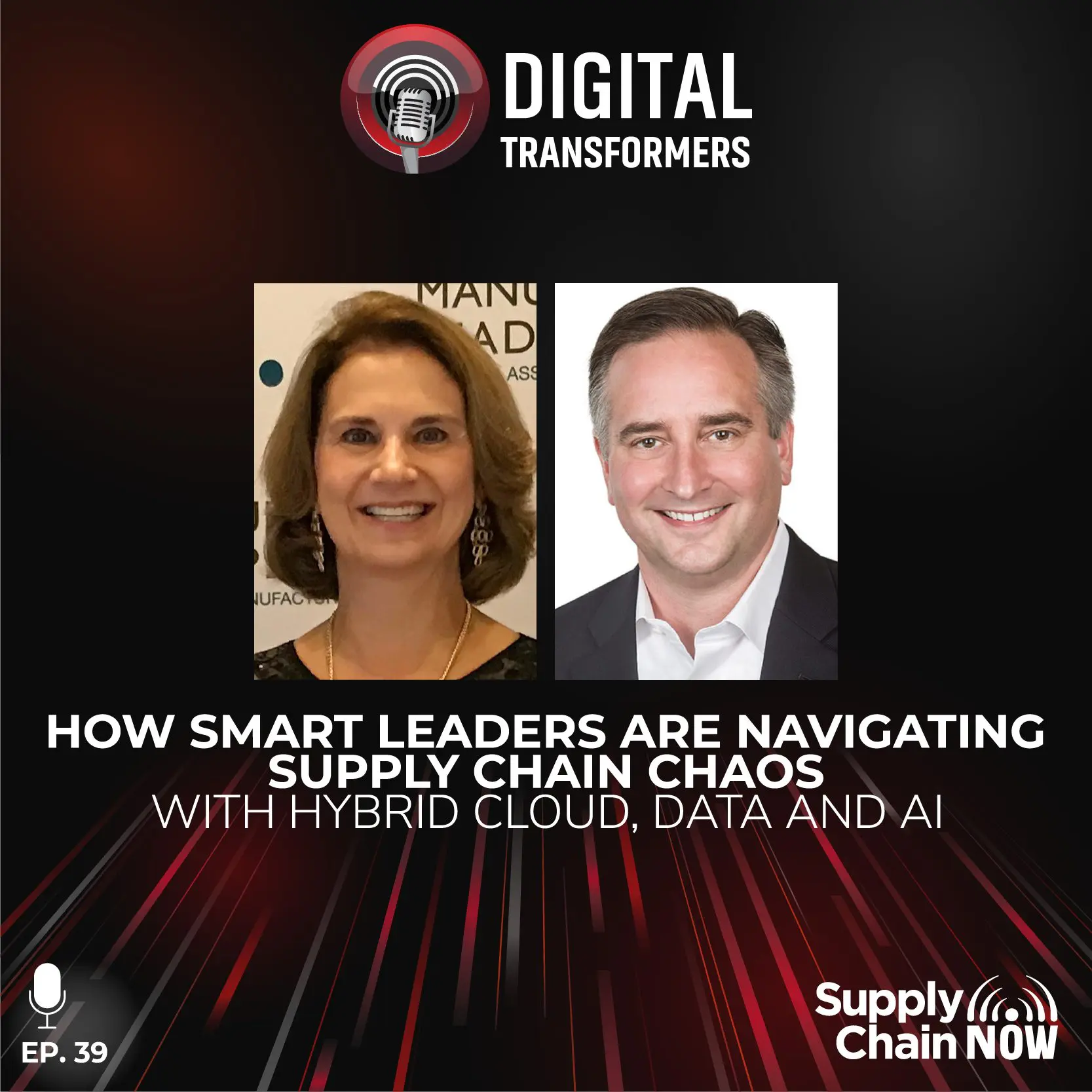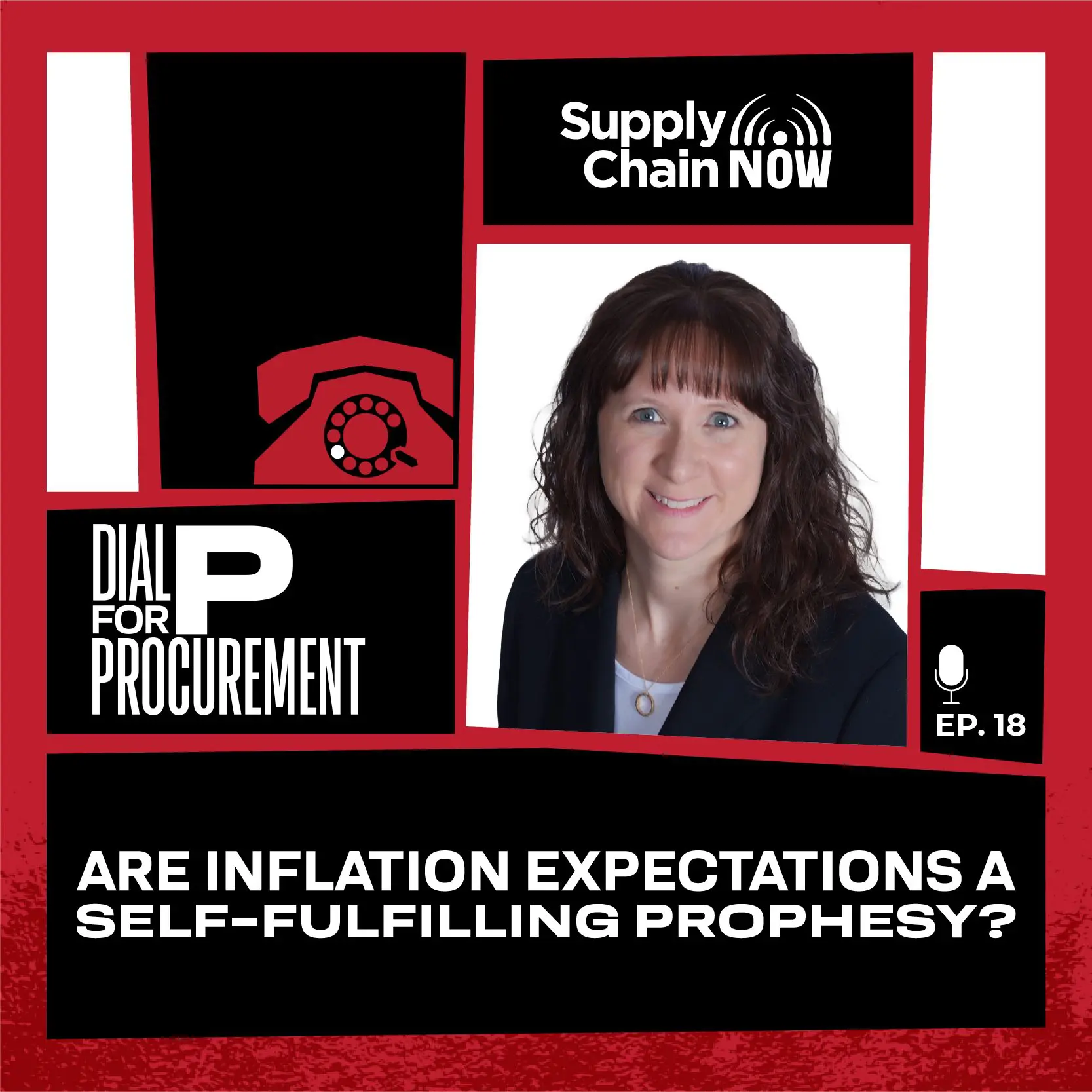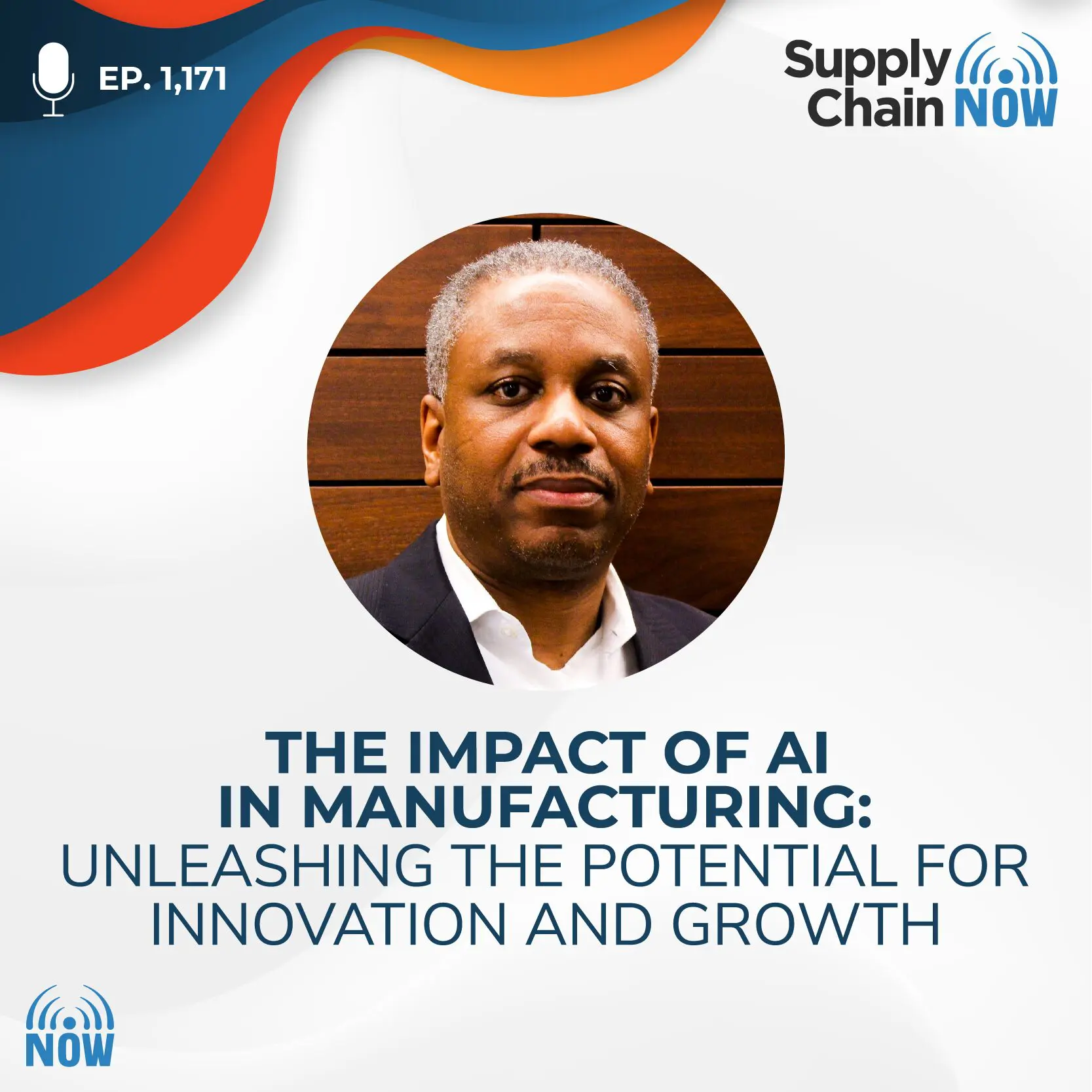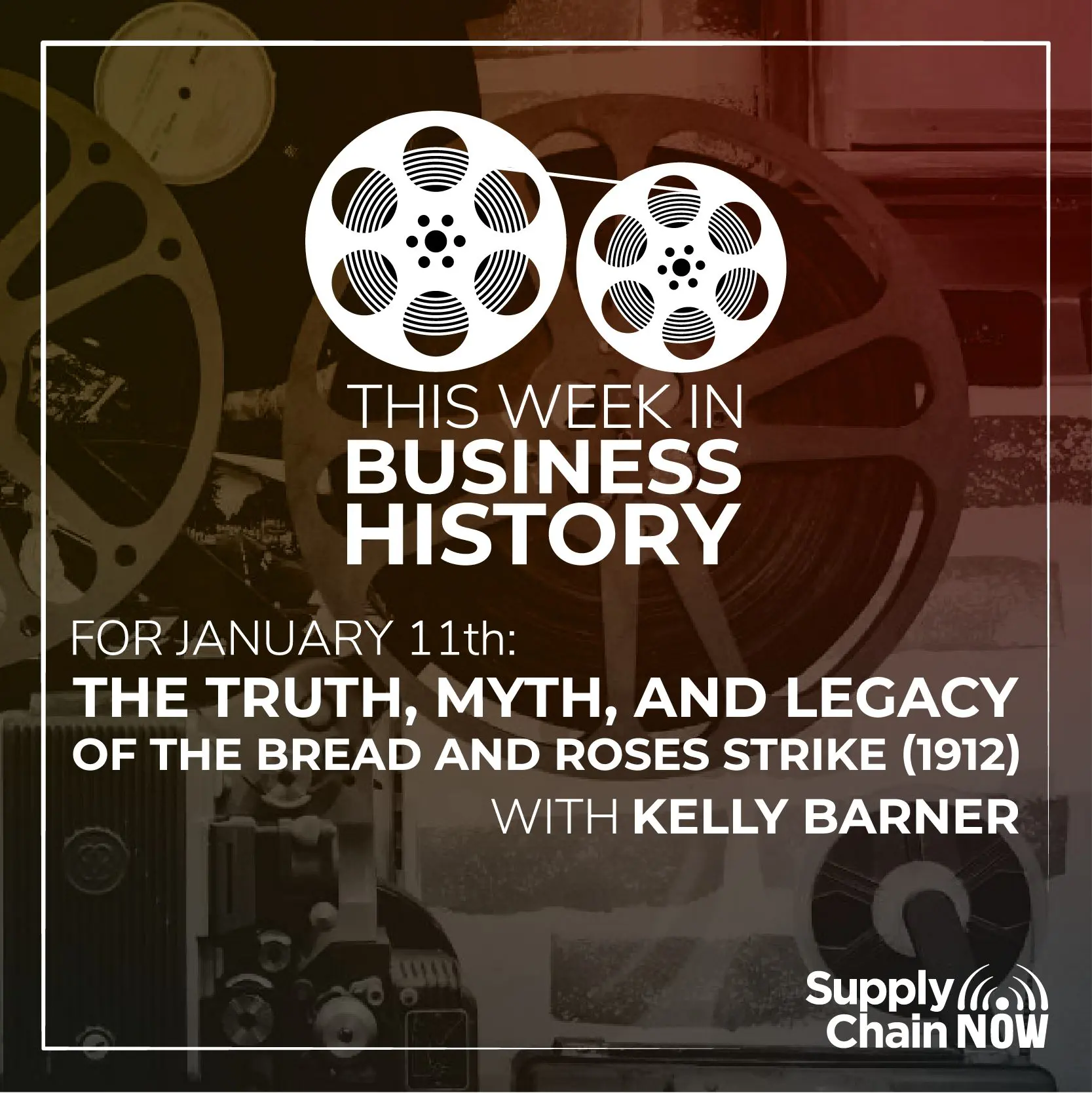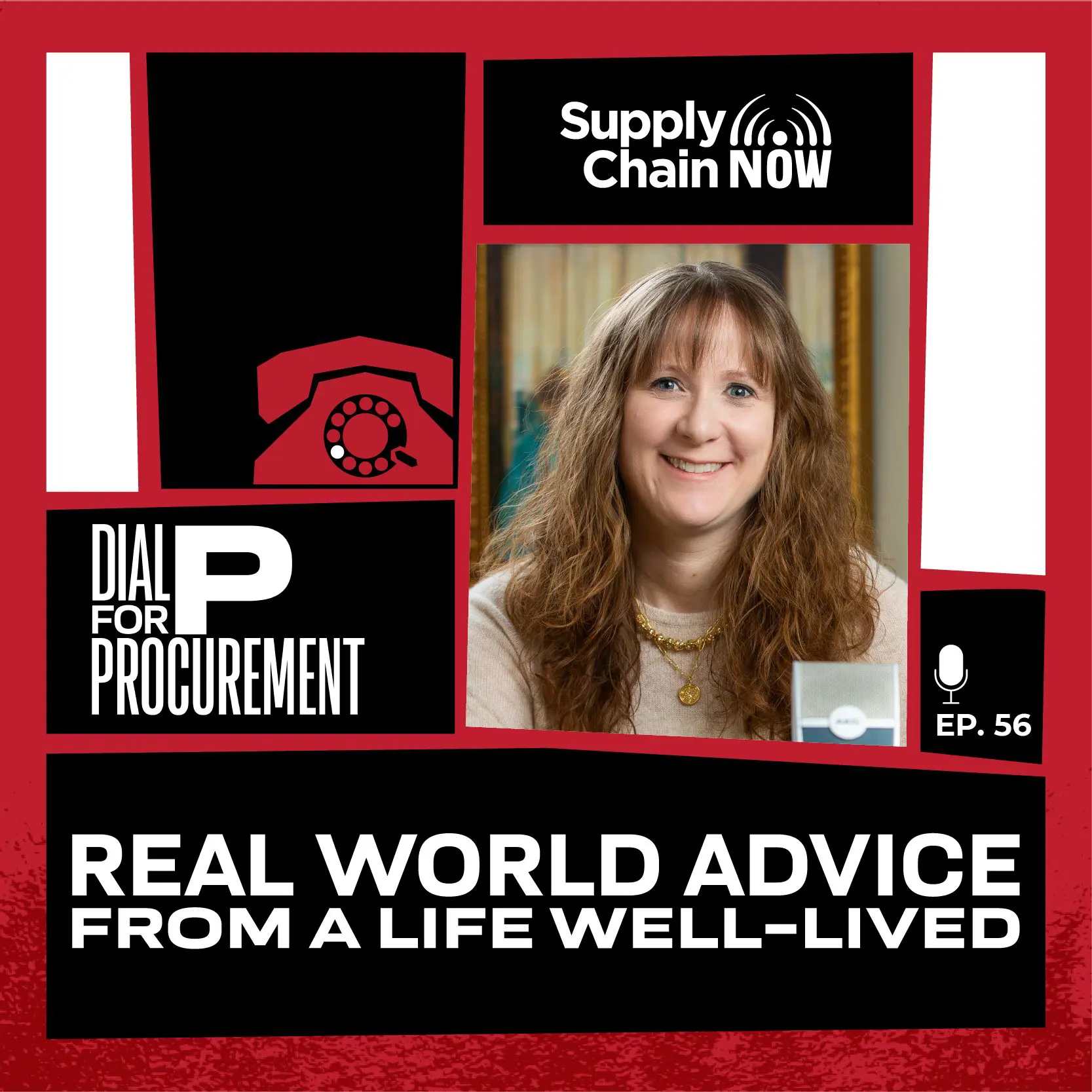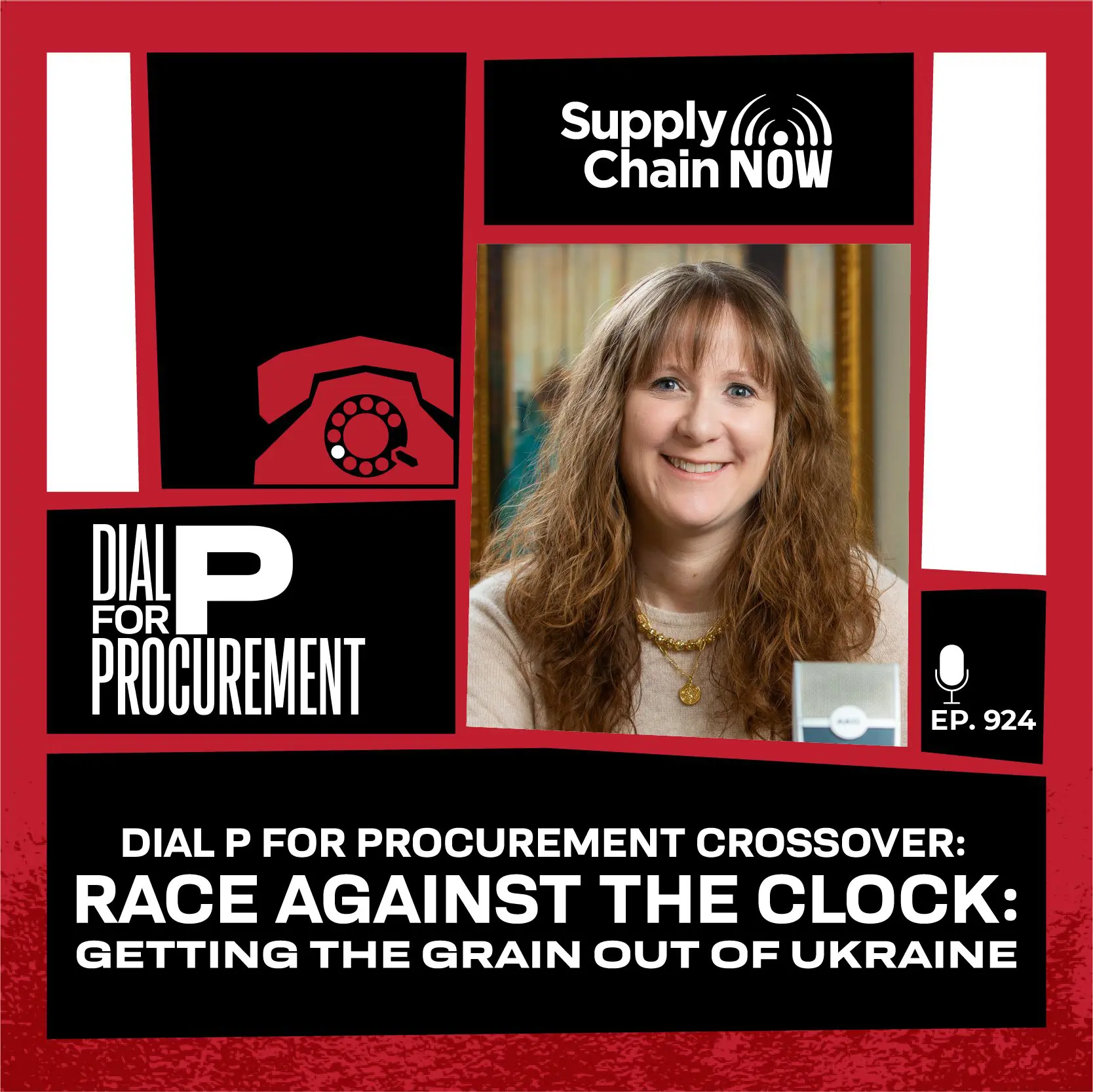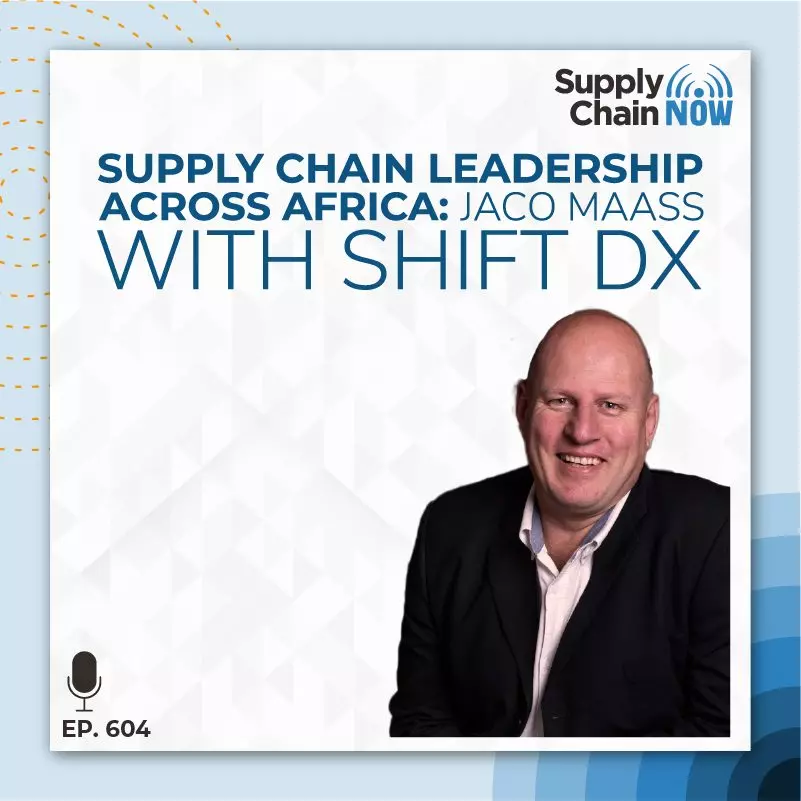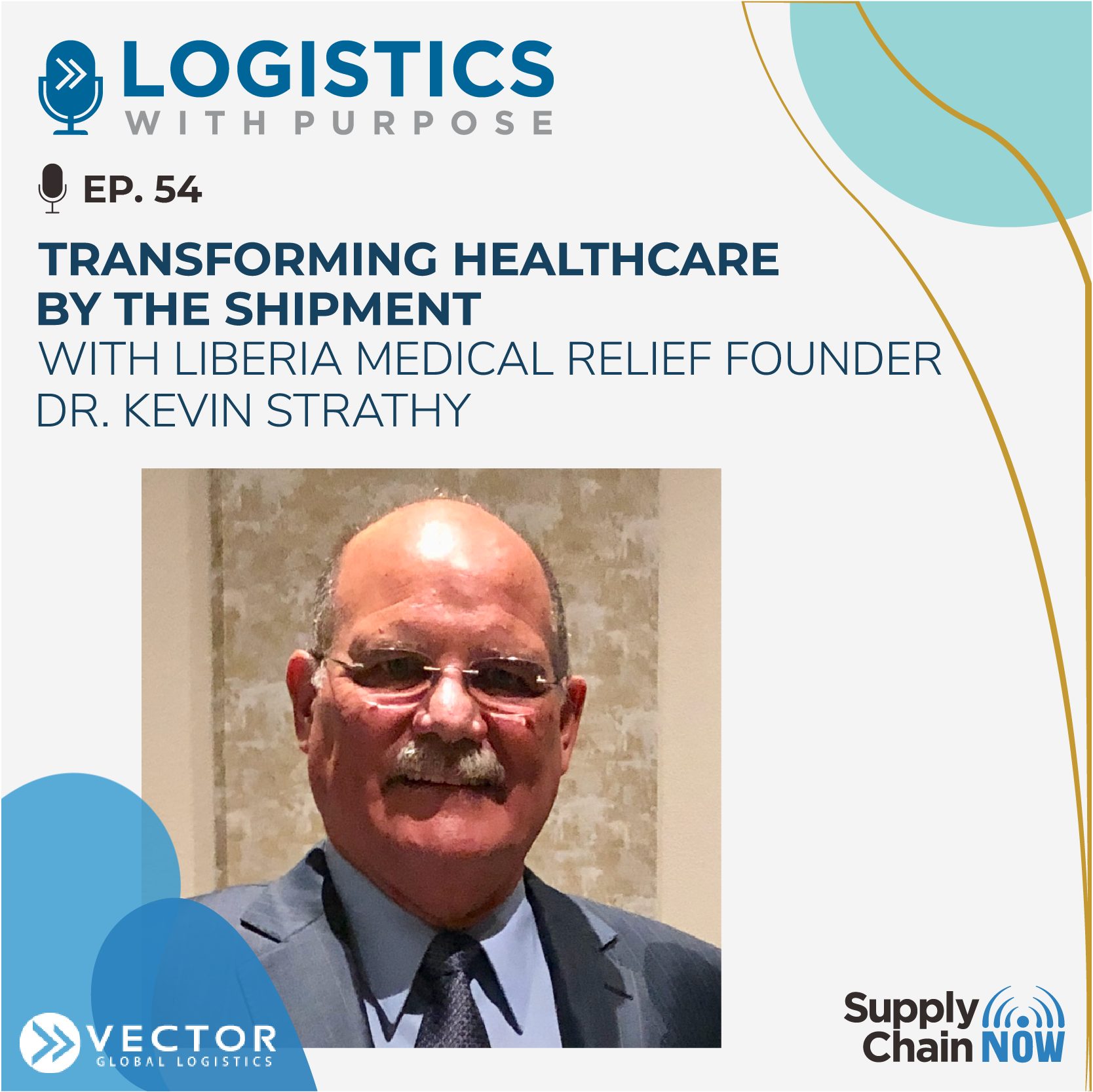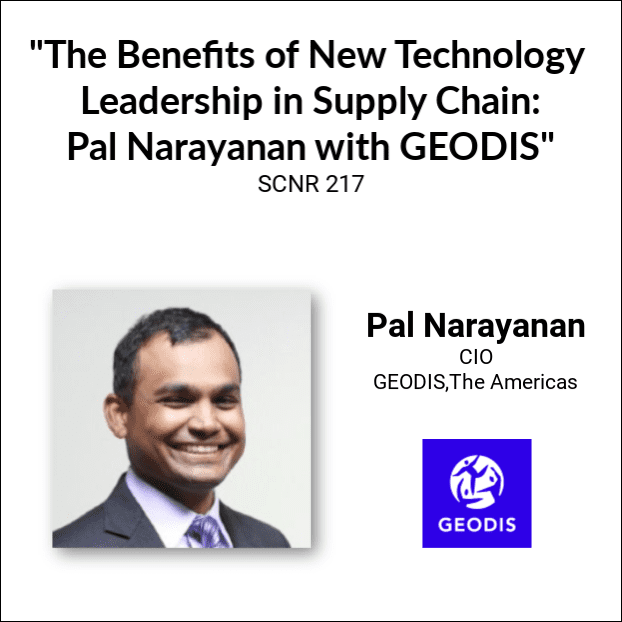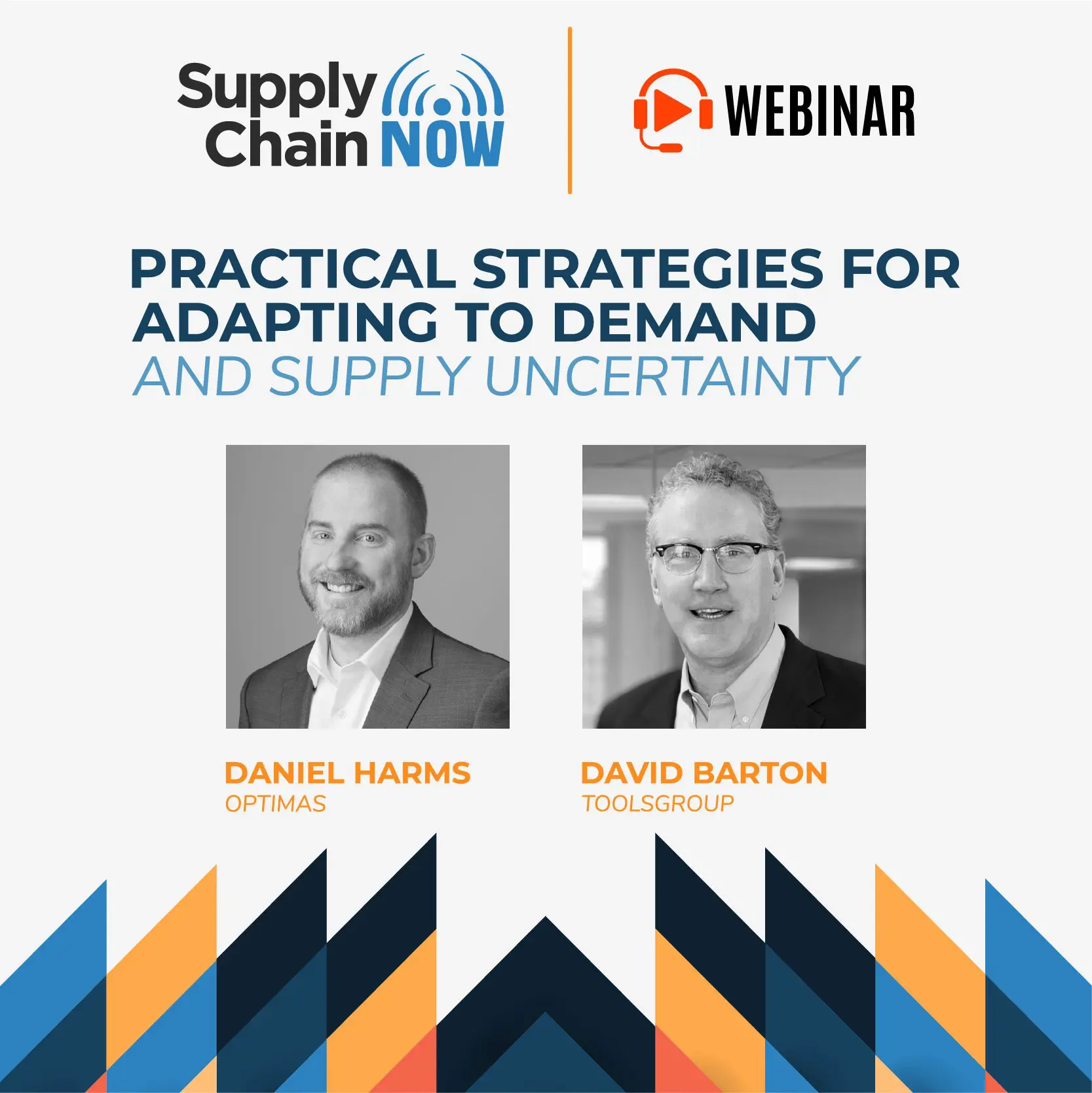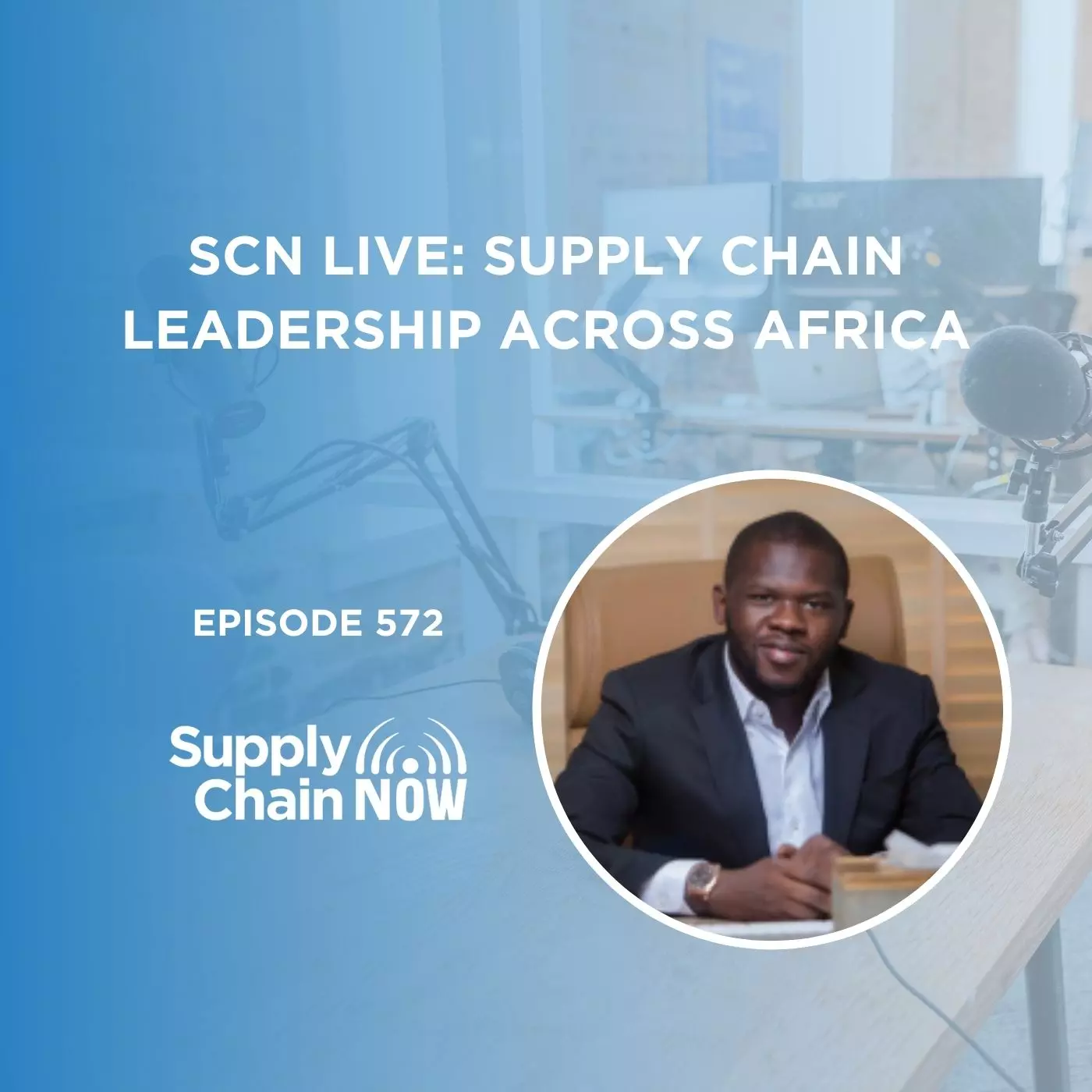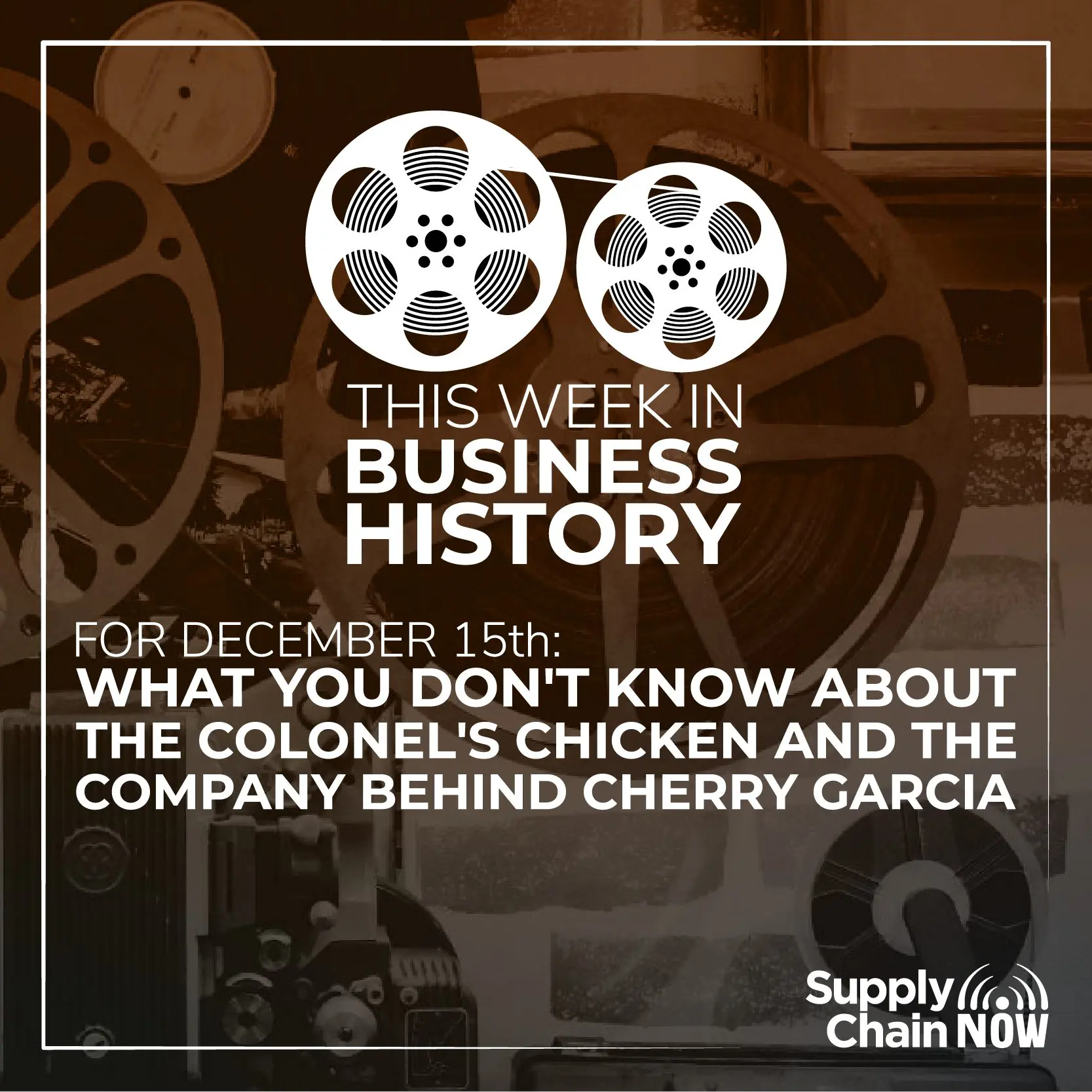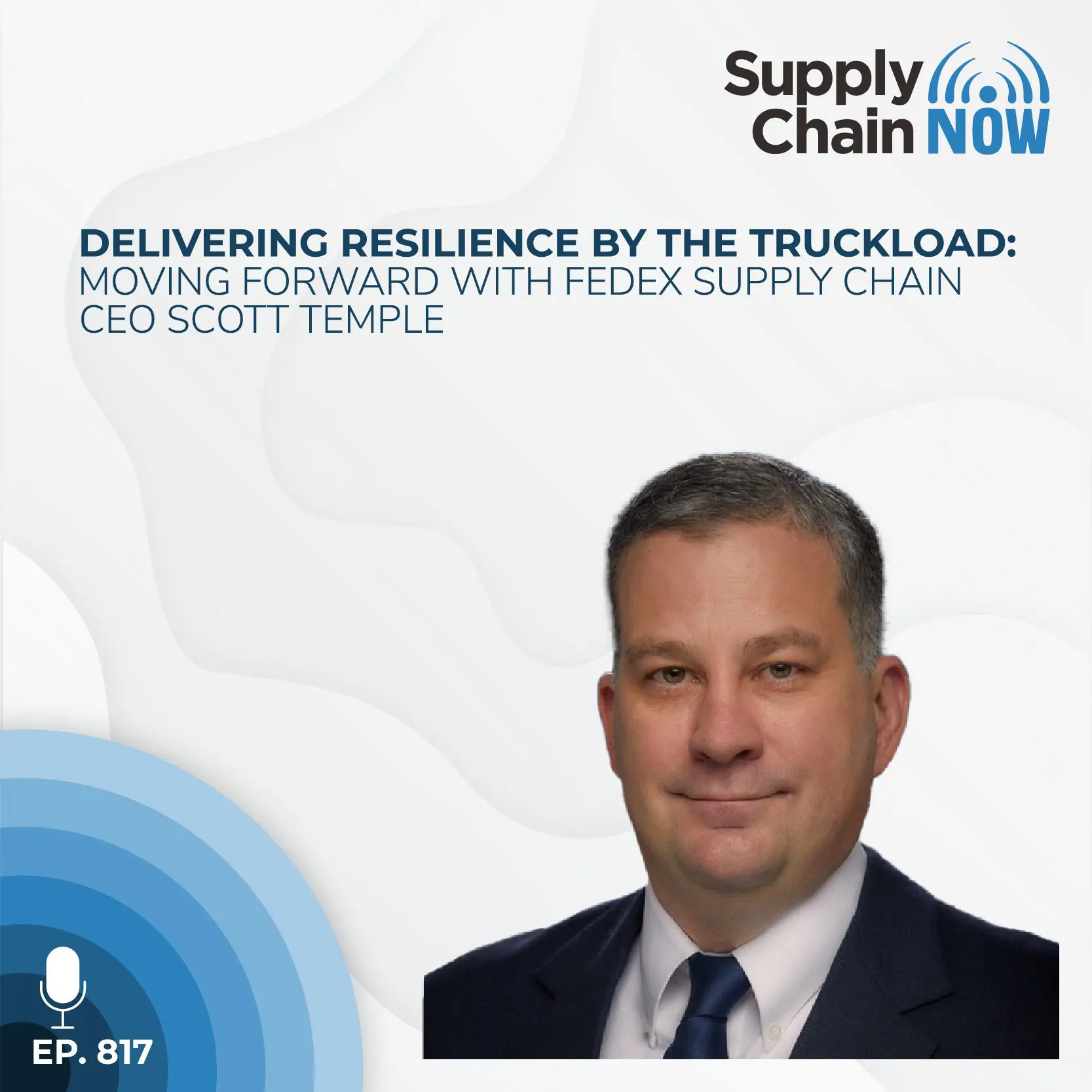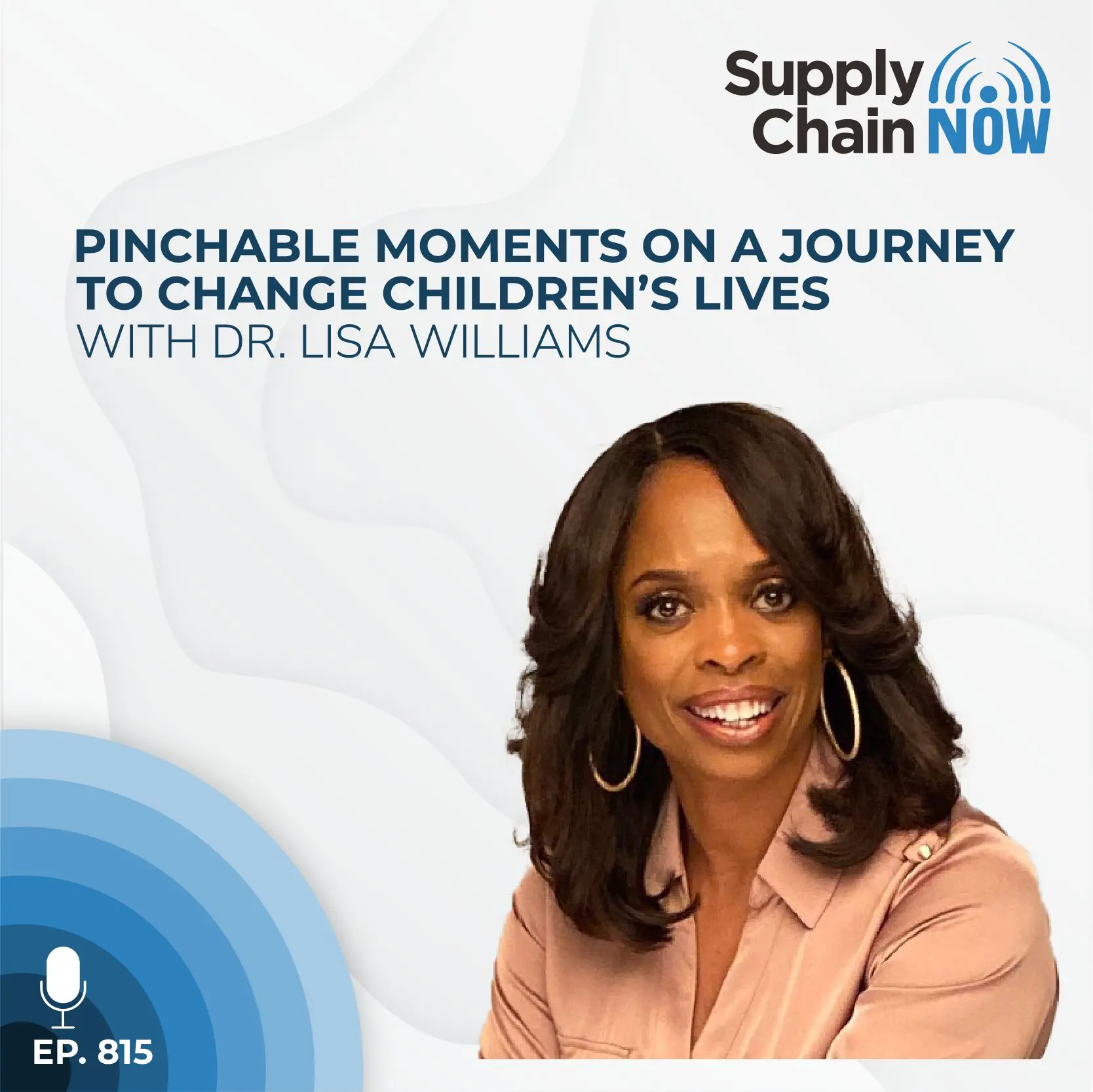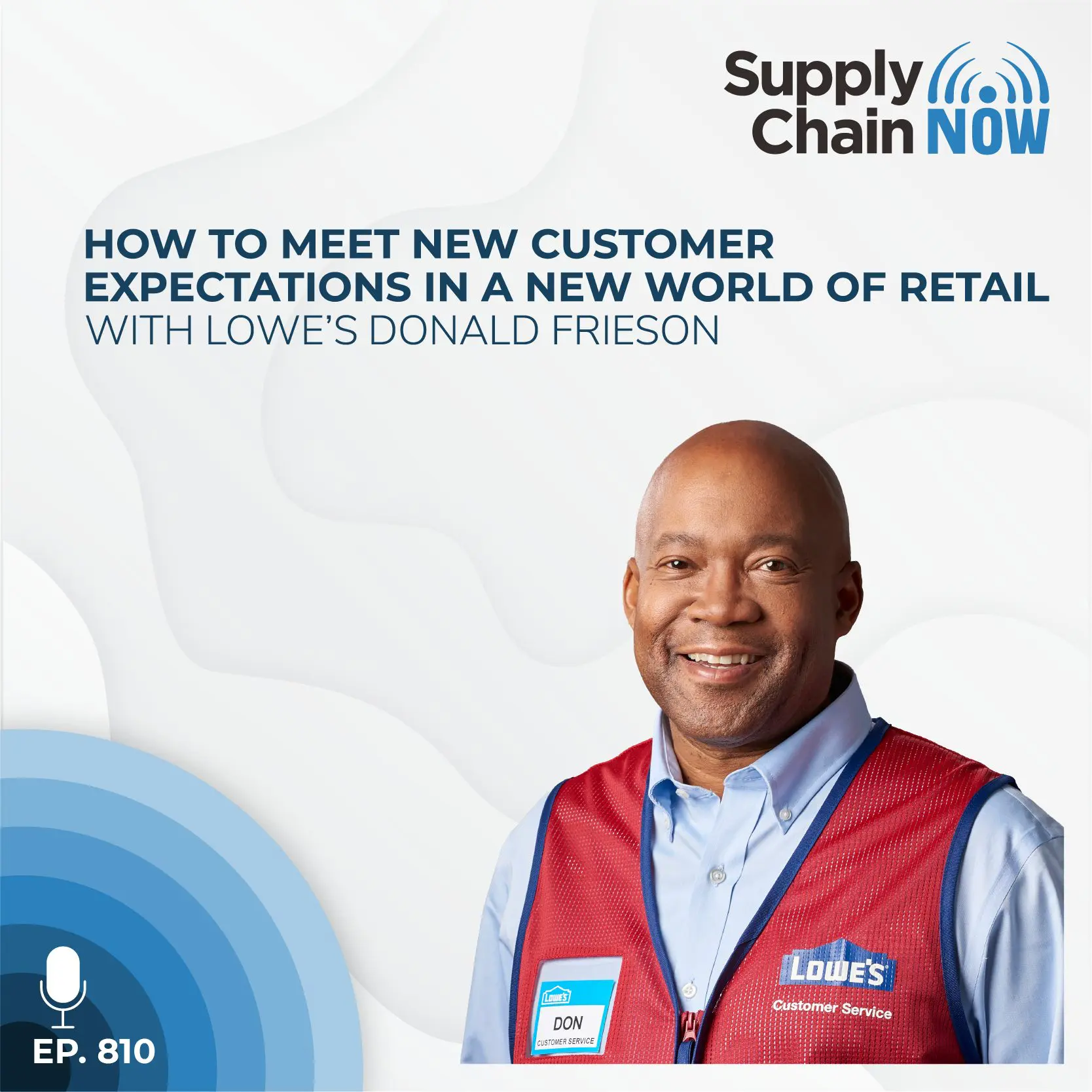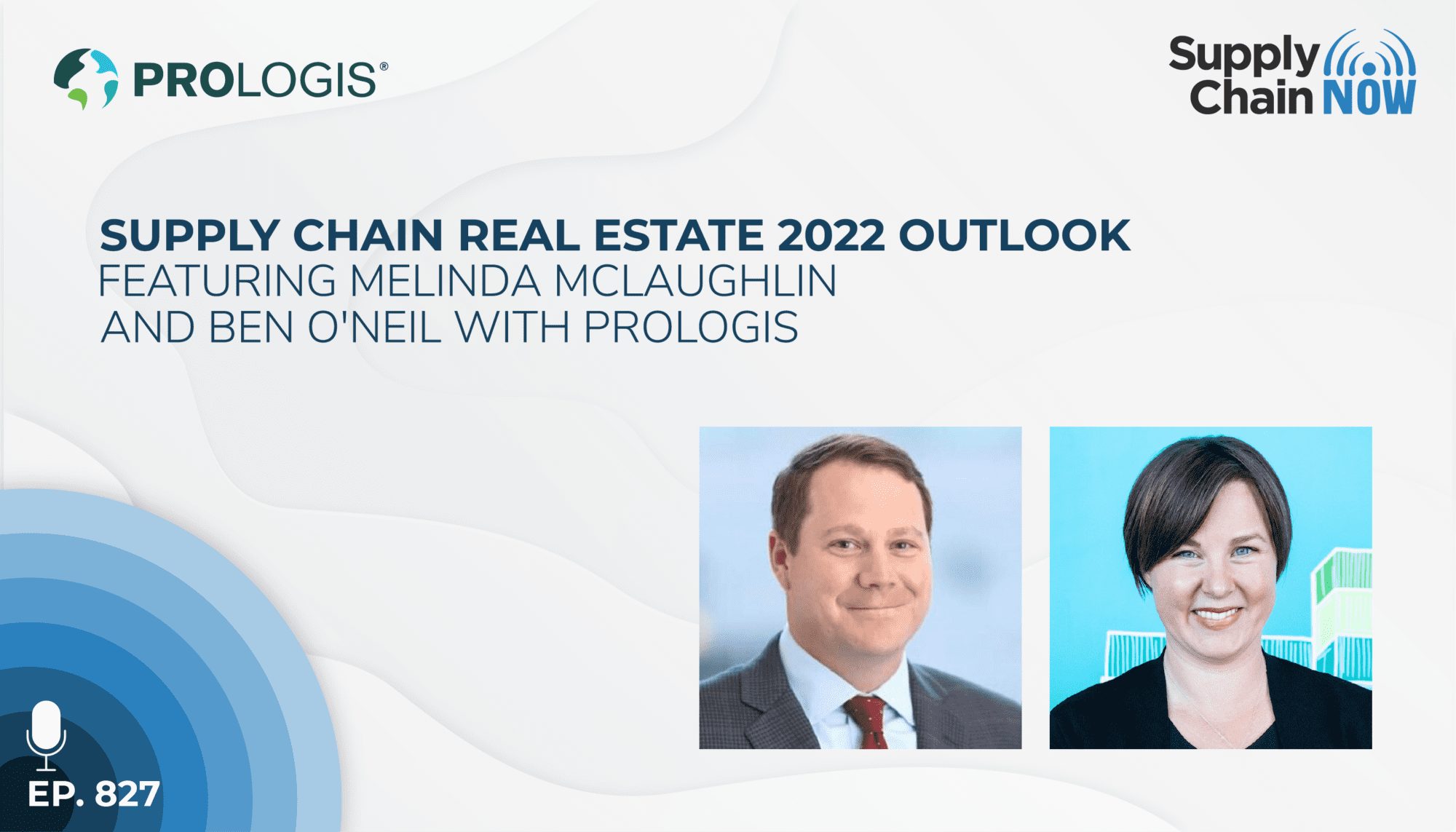
Those that can act with speed have been winning these deals. Customers take different approaches, look to data, to technology, really examine their supply chain networks. But if you can do it sooner, do it faster, I think you're in a much better position.
-Melinda McLaughlin, Prologis
Episode Summary
Ecommerce is booming, and it’s taking up major space in the process—to the tune of 80 million square feet. If you’re in the supply chain real estate game, now’s the time to act fast, and with conviction, according to Melinda McLaughlin and Benjamin O’Neil from Prologis. Join Scott and special cohost Zack Rutland as they chat with Melinda and Ben about current trends, the rise of AV trucking and fleet electrification, the challenges of first, middle and last mile delivery, and more.
Episode Transcript
Scott Luton (00:33):
Hey, good afternoon. Scott Luton and special guest host, Zack Rutland with Colliers, here live on Supply Chain Now. Welcome to today’s livestream. Zack, how we doing?
Zack Rutland (00:43):
Hey, Scott. Doing well. Good to be out here again.
Scott Luton (00:46):
Great to see you. We’ve enjoyed our prep conversations and I’ll tell you, we’ve got a rock and roll panel here today, right?
Zack Rutland (00:53):
Absolutely. I’m excited.
Scott Luton (00:55):
We are too. So, Zack, as you know, on this episode, we’re continuing our Supply Chain Real Estate series powered by our friends at Prologis. And, today’s overarching theme, Zack, what’s 2022 going to be looking like. Is that a pretty picture, challenging picture? What do you think, Zack?
Zack Rutland (01:14):
Yeah, a little bit of both. I think there’s a lot of disruption as some people like to say. But it’s also a good time to be in the space. Just briefly last week, my partner, Ward, and I were down at a conference in Palm Beach, a lot of top-level executives in the supply chain as well as some startup groups that are looking to get into the space, and the energy there was just phenomenal. M&A activity in the space is an off time high. You got kids studying it in college now, supply chain. They’re coming out of school, excited about it. So, yeah, while there might be some kinks in the supply chain, I think overall, you know, the attitude is it’s looking good. I think we’re on an upswing.
Scott Luton (01:57):
Agreed. And was Ward Richmond standing out of trouble down there in Florida?
Zack Rutland (02:01):
He did. Yeah. He stayed out of trouble. It was a great time.
Scott Luton (02:04):
Well, hopefully he is tuned in. I already see Kristina Rodriguez. K Rod is tuned in. We’re going to say hello to folks in just a minute or two. But, hey, folks in the cheap seats, in the sky boxes as we call it, get your POV ready because we want to hear from you as we work our way through this conversation focused on not just 2022 but supply chain real estate. And, as Zack has established, real estate seems to be a pretty popular topic in global supply chain these days. So, let’s say, really quick, Zack, I got one quick follow-up question. So, do you go by Zack? Do you go by Rutland or is there a nickname that you need to go ahead and share with me so I can use it throughout this conversation?
Zack Rutland (02:43):
We can go with Rut if you’d like, but most people call me Zack. There’s probably a couple other nicknames that we shouldn’t mention, but, yeah, Zack is fair. Let’s go with Zack.
Scott Luton (02:54):
Okay. Good deal, man. Good deal. Well, let’s say, I mentioned K Rod. Kristina Rodriguez is back with us here today. Zack, did you see, I interviewed Kristina, marine veteran, on our veteran voices show and she brought it, lots of stories, lots of big takeaways, universal takeaways. Did you happen to see that?
Zack Rutland (03:14):
No, I didn’t. I saw her post about it. I haven’t gone back and listened, but I’m sure it’s good stuff. Kristina’s, she’s been around the block. She knows the space.
Scott Luton (03:23):
She does and, you know, she’s mover and shaker, been promoted regional role. So, she’s a big thing. So, Kristina, great to have you here today. And, by the way, remind me, Kristina, you’re tuning via LinkedIn, let us know where you’re tuned in from. We have Mathias. I think I said that right. If I didn’t, I apologize. Tuned in via LinkedIn from Philadelphia. So, one of our guests, Ben, I’ll let the cat out of the bag, but I think Ben’s going to be right at home with Mathias. Mathias, so does that make you, I guess, an Eagles, Phillies and a Sixers fan, perhaps? Zack, you got good money that he’s, I guess if you’re a one Philly fan, you got to be a fan of all the teams right from the city. Is that right?
Zack Rutland (04:00):
Yeah. He is got to be rooting for all the hometown teams for sure.
Scott Luton (04:03):
You got to. So, great to see you there, Mathias. Roger Carr is tuned in from Greenville, South Carolina, back with us once again via LinkedIn. Roger normally gives us a weather update, Zack, and I’m hoping he’s going to – I bet it’s cold in the upstate of South Carolina like it is here in Metro Atlanta, but we’ll see. Roger –
Zack Rutland (04:19):
[Inaudible]. Yeah.
Scott Luton (04:22):
Bryan tuned in from Dallas, Texas. A fellow. Is it Dallasonian?
Zack Rutland (04:26):
I know Bryan. Bryan, Byan is a friend of mine. He is tied into the building materials business that’s very relevant in the space right now.
Scott Luton (04:36):
Yeah, construction’s hot. Just talking to other day with our friends from US Bank as we’re analyzing the freight payment index for fourth quarter permitting across the country, generally, especially Northeast is at a brisk pace. So, Bryan, good to see you via LinkedIn. Kristina’s refreshing our memory, Norfolk, Virginia. I knew that. Norfolk, Virginia. Bruno tuned in from Brussels, Belgium via LinkedIn. Bruno, great to see you. Looking forward to hearing your thoughts. And, Mathias, yeah, he’s bringing it fly Eagle fly. It comes in my mind, right? He’s a big Eagles fan clearly. So, good to see ya. Dallasites. Is that real, Zack? Is it Dallasites?
Zack Rutland (05:17):
What’s that?
Scott Luton (05:18):
Instead of Dallasonias, is it Dallasite for people from Dallas?
Zack Rutland (05:21):
Yeah. Yeah.
Scott Luton (05:21):
Is it true?
Zack Rutland (05:22):
We can go with Dallasites. Yeah. That’s a popular term these days, for sure.
Scott Luton (05:26):
All right. We’re going to do some double checking on that. So, Amanda, big thanks to, again, Amanda Chantel and Catherine behind the scenes, helping make production happen. Hey, y’all do a little research on that. Let’s make sure that is the, it is Dallasites. That just doesn’t seem right. But, hey, who knows? All right. So, Zack, you buckled up. Welcome, everybody. We couldn’t hit everybody, but we look forward. Keep the comments coming. We’d love to get your take on what you’re going to hear today as we talk about 2022 and supply chain real estate. Zack, you’re ready for me to bring in our featured guests.
Zack Rutland (05:57):
Yeah. Let’s bring them on.
Scott Luton (05:59):
All right. So, we want to welcome in Melinda McLaughlin, Senior Vice President and Global Head of Research at Prologis, along with Ben O’Neil, Senior Vice President of Capital Deployment at Prologis. Hey, hey, Melinda, Ben, how are y’all doing today?
Melinda McLaughlin (06:16):
Doing well. Thanks, Scott.
Ben O’Neil (06:18):
Doing great, Scott and Zack. Excited to be here.
Scott Luton (06:21):
It is so good to see you. The cold weather here in Metro Atlanta is kind of freezing my mouth. It’s not working right here today, but Dallasites, just a quick pulse real quick. Melinda and Ben, do y’all think Dallasites is what we call folks from Dallas?
Melinda McLaughlin (06:36):
I don’t know.
Ben O’Neil (06:37):
Dallasonians. That sounds a little more –
Scott Luton (06:40):
I’m with you, Ben.
Zack Rutland (06:41):
All right. We’re split.
Scott Luton (06:44):
So, hey, it’s a hard – only the hard-hitting topics here at Supply Chain Now. But let’s move from that topic to the NFL Network talks. Lately, it’s been all NFL all the time, right? We got the conference title games coming up this weekend. So, let me tee this up ‘cause I’m going to have all of y’all break out your crystal balls and let us know what’s going to happen. So, in a Midwest special, the Bengals taking on the Chiefs in the AFC Game and in a West Coast thriller perhaps, the 49ers are taking on the Rams in the Nfc Championship Game.
Scott Luton (07:17):
So, now our panel, so everyone in the cheap seats, our panel really hails, we’re coast to coast today. Right? Melinda, although she hails from Colorado, she lives in San Francisco. Ben is from Pennsylvania, but he lives in Washington, DC, and, Zack, I know you went Ole Miss. Where’d you grow up Zack?
Zack Rutland (07:36):
Memphis, Tennessee.
Scott Luton (07:37):
That’s right. Memphis. That’s right. And you currently reside in Dallas, which is why we’re trying to figure out what to call Zack right?
Zack Rutland (07:45):
Yeah. A Texan.
Scott Luton (07:47):
A Texan. That’s much easier, much easier. All right. So, these two big games coming up, right. And, I’ll tell you, last weekend it was like must-see TV. Every game was good, especially as y’all saw that Chiefs- Bills game. So, I’m going to start with you, Melinda. You’re going to give us your fearless bold bet first. What – who do you have in the AFC and NFC games?
Melinda McLaughlin (08:10):
So, I’m going to start with an admission. I thought it was the Bills’ year. So, I’m already off. So, don’t trust me. I’m going to start with that. As you mentioned, I’m in the Bay Area, so I’m going to be rooting for our 49ers. Anytime you have San Francisco versus LA tensions are high. I love – I can’t wait to see what that stadium looks like. So, definitely taking the 49ers, and to keep the underdog theme going I’m going to go with Bengal as well, just shock. I want surprises all around. Let’s make it exciting.
Scott Luton (08:39):
I love that. And, you know, you alluded to that 49ers-Rams rivalry and you’re absolutely right. I grew up for some reason, a Jim Everett fan of those ‘80s Rams with Flipper Anderson and Henry Ellard and Kevin Green was on some of those teams way back in the day. And they could never get past those 49ers. They just beat ’em just a couple of times. I don’t know if that’s a rivalry, but it was hotly contested, as you said, Melinda. So, I love the underdog card you chose. Ben, who you got in these games?
Ben O’Neil (09:07):
Yeah. You know, I’m not – my football predicting skills are awful. So, I’m going to – sticking with the supply chain theme. I’m going to go with comparing their respective logistics markets as the predictor. So, I think Los Angeles is a better logistics market than San Francisco for 2022. So, I’m going LA. And when I compare Kansas City and Cincinnati, I got to slight edge to Cincinnati. There’s a lot of cool stuff going on there with the Amazon Air Hub and things like that. So, slight edge to Cincinnati. So, that’s how I’ll play it based on the market.
Scott Luton (09:43):
I love that, too. Extremely intelligent predictions there. And, y’all both went with Cincinnati and 49ers, right? Both. Okay.
Melinda McLaughlin (09:50):
No.
Scott Luton (09:51):
No.
Ben O’Neil (09:51):
No. I go with LA. LA’s a better logistics market in 2022.
Scott Luton (09:57):
Than San Francisco. I got you.
Ben O’Neil (09:57):
Perform better than San Francisco.
Scott Luton (09:59):
I’m a little bit slow sometimes. I got you. All right. But y’all both took the Bengals. So, let’s come around to Zack Rutland. Zack, who you waiting with?
Zack Rutland (10:08):
I’m taking the Bengals too. I’m a big Joey B fan. So, I’m hoping he tears it up. I’ve got some, some good buddies, the McCarthy bros. They’re Cinci guys. So, they probably get after me if I didn’t say that.
Scott Luton (10:22):
That just sounds like trouble to me, McCarthy Brothers, and trouble.
Zack Rutland (10:25):
They are trouble. Yeah. They are trouble for sure. And then, on the other side, I got to pick the Rams. Matt Stafford is just so fun to watch and he’s a Dallas guy. He’s a Dallasite. So, yeah, for I’m cheering for Stafford.
Scott Luton (10:39):
Wonderful. Well, thank you all. I’m going to – so, folks, I’m going stand out here. I’m going with the Chiefs. I’m like, I got to go with the Chiefs. My buddy, Greg White and Clay Phillips are both going to be there at the game. Greg’s a lifelong Chiefs fan. They’ve been living high these last few decades or so roughly. So, I’ll go to the Chiefs there. but I love the Bengal story. And on the other side of the coin, I’m going with Melinda. I’m going with the 49ers and the upset of the Rams. So, that’s for my dear friend, Cory Comer who may be dialed in, also known as Dude Cromers, Cory’s new nickname, Dude Cromers.
Scott Luton (11:17):
Anyway, we’ll set that aside. Let’s see who else what their picks are. Folks, let us know what your picks are for the weekends. Kristina and Malcolm, who leads our research here have confirmed, it is Dallasites. So, Zack you’re on the money as always. George, welcome. Glad to have you here today. Tuned in from Sandy Springs, Georgia, home of UPS World Headquarters. Some folks may not know that. Great to see here via LinkedIn. Roger’s given us that weather update. Roger, appreciate it. Cold and rainy. Not good, but the good news is we’re seeing our COVID test dropping from a high of 60,000 per day. So, Roger’s team is processing some of those COVID tests. So, that’s good. That’s great news, Roger. We’ll take that. Chris Copenhaver is tuned in from Atlanta via LinkedIn. Great to see you. Chris is a fraternity brother of mine from South Carolina. So, it’s great to see you here also in real estate. So, good to see all. All the heavy hitters are here today. And, Roger is Chiefs and the Rams. Chiefs and the Rams. So, we’ll see who is right. Maybe we can put a Waffle House patty melt plate as a wager on our picks here today. But I digress.
Zack Rutland (12:25):
Like my buddy, Dom, chimed in with one for the Cleveland Browns. Dom’s big into construction. So, he’s a power player in construction. So, I’m glad to have him here as well.
Scott Luton (12:35):
Well, you know, a lot of folks don’t realize that the Brown family, right, I can’t remember his first name, the Brown family founded both the Cleveland Browns and the Cincinnati Bengals. How bold is the name of franchise after your last name? It’s pretty bold. But I’m hoping that the resurgence that Cincinnati has will spill over and get Cleveland back into a bigtime playoff run. We’ll see. They’ve been out of it. Like I said they made it last year, but they’ve been at it pretty long. So, we’ll see what happens there in Cleveland. And, you know, Ben will bring you back on to analyze those logistics markets in a future episode.
Scott Luton (13:310):
Okay. So, unfortunately, we’ve got to talk things other than [inaudible] all day with Zack, Melinda, and Ben. So, I want to talk about, you know, 2021, for many, we were hoping, wishing, praying, you name it for a bigger, brighter and more pandemic free year in 2021. And that’s not exactly what we got as we all know. And many of the challenges that we saw really come to the table in 2019 and 2020 stayed with us through 2021 and are with us still coming into 2022 whether that’s labor shortages, which many folks have said have names permanently, right? The whole labor market. Port congestion, rising price raw materials, you name it, no shortage. So, Melinda, I want to start with you as we dive into the, topic of the day. What are you seeing, especially from that industrial real estate perspective? What’s the headline right now?
Melinda McLaughlin (14:06):
Well, like you said, it’s kind of a continuation of what we saw beginning in 2020 and it definitely intensified. So, I think the headline right now is that supply chains are still in the spotlight as value creation machines. Like, there’s a lot of focus on the troubles, but it almost, you know, they go hand in hand. If it’s become so clear that they’re not running smoothly, you can’t have all the great growth that we’ve seen. So, what we see how that is reflected in logistics real estate demand is really driven by three big forces. One, people are still spending a ton of money on goods. Again, COVID not being completely gone. You know, we’re still at home. We’re still hopefully expanding our living situations and doing a lot of different things. That started in 2020 and we’re seeing more of that in 2021. So, people are spending and they’re buying more goods than ever.
Melinda McLaughlin (14:59):
Second, more e-commerce still. Definitely that value of having that direct-to-home is still very relevant in 2021, unfortunately. And, finally I think the supply chain, the persistent supply chain disruptions have really underscored how supply chains that were tuned for that just in time need to make a shift. Even without a pandemic, there are weather disruptions, climate disruptions, labor disruptions. This isn’t going away. And for those who really want to provide that awesome customer experience, they need to look to their primary value creation machine, the supply chain, and really think about what that looks like going forward.
Scott Luton (15:41):
Okay. I got to go back. I love that value creation machine ‘coz I completely agree with you. Global supply chain makes it happen. Sure. It’s had its own share of challenges, but, you know, I think one of the cool things that we’re going to talk about good news later in the conversation is consumers who are, and that’s all of us. I’m pointing to finger to myself. We’ve long taken for granted of what goes on, the boring part of supply chain when everything is just normal. And, I think there’s a greater appreciation for what supply chain does to make it all happen and get our stuff when we want it at the price we want it right on time.
Scott Luton (16:12):
So, okay. So, that’s the headline. There’s three things. Melinda, that’s a great starting point. I want to get into, and, Zack, I’m coming to you here. I’m not going to use the word, the acronym TNN. We’ll leave that to be a cable station out of Nashville, Tennessee. But this is the new reality. We’re not going back to how the world and the global supply chain worked in, say, 2018. So, we talked about, you know, labor and ports, you name it. These things are persisting as Melinda pointed out. And a lot of it just speaks to how reality has changed. So, Zack, what are some of the concerns that you’re hearing from customers in the market?
Zack Rutland (16:49):
Yeah. I’d say finding space in general is tough to begin with and we’ll touch on that. I know Melinda, you know, has talked about that in the past. But once we do find space, we’re running into other problems, notably the building materials themselves. So, let’s say we find a space. Most of the time, these days they’re either under construction, planned, or maybe in shell condition. And we’re waiting on these parts and on these building materials. So, let’s say a company has to be up and running by peak which is in October, November, December. We have to have leases signed now if we’re going to get those building materials on time. That’s hard to do. It’s hard for a company to sign a lease that far in advance, not knowing if the dock levelers are going to be there on time, or if the drywall is going to be there, insulation materials, you name it. Bryan who’s dialed in on the phone, he’ll tell you that it used to be four to six weeks to get a dock leveler or a dock package. Now, you’re looking at six, sometimes seven months. So, really setting the expectation with our clients when it comes to taking new space on the timeline to when they can be up and running, that’s a big, big pay point right now.
Scott Luton (18:10):
Excellent point. Okay. Melinda and Ben, I’m coming to you just a second. I want to share a couple of quick comments, and quickly, by the way, speaking of construction, we talked about permitting on the front end with all these permits, construction permits, growing and getting issued to your point, Zack, because some of these shortages and labor and materials and transportation, it’s adding to the backlog. So, folks do have to take action sooner rather than later. Otherwise, you’ll be end the line and maybe end of a longer, longer line. Let’s see. Kristina was right. Okay. Dallasites. You were right, K Rod. You got it. You got the prize of the day. Chloe’s tune tuned in from Charleston via LinkedIn. Great to see here, Chloe. Keivan is back with us. Keivan, I hope this finds you well. He that coined the word the new abnormal, Melinda, Zack and Ben. The new abnormal.
Scott Luton (19:01):
Let’s see here. Amine is tuned in via LinkedIn. Hey, let us know where you’re tuned in from. And, Dominic, who you pointed out, the Browns fan. It is good to be here, Zack. Okay. Wait, there’s a lot more, a lot more coming Dominic. So, Melinda, let’s go back to you for a second. So, for those businesses, gosh, all of them that rely on global supply chain ‘cause, really, we all do in some way, shape or form. What can they do to prepare for all for the new reality we find ourselves in?
Melinda McLaughlin (19:30):
I think Zack previewed it. Advanced planning is going to be critical in this market. So, not only is there, you know, very little choice out there today, but even as you look forward into the construction pipeline, which is kind of ballooning as these projects get stuck in it. I’ve heard of stories of waiting on one, you know, electrical part. But those supply chain challenges that are impacting users are definitely also impacting the supply side. So, the further ahead of this you can get and really, again, think about where you want your supply chain to be, maybe not even just in 2022. We think these supply chain challenges will extend into 23. So, what does your supply chain look like a few years down the road? And if you can act with conviction, I would say do it. We do not see in our crystal ball any substantial easing unless there’s, you know, a black swan event or something like that, but any substantial easing in the horizon. And to that point, those that can act with speed have been winning these deals. So, whatever, you know, customers take different approaches, look to data, to technology, really examine their supply chain networks. But if you can do it sooner, do it faster, I think you’re in a much better position.
Scott Luton (20:40):
I love that. And I love – man, the themes you’re bringing to us here today, Melinda, value creation machine, acting with conviction, speed. I would argue that global supply chains like a Ferrari despite some of these challenges we we’re facing. I’m a bit biased. All right. So, Ben, we’re going to move into one of my favorite parts of this conversation here today ‘cause it’s focused on the good news and, you know, there’s always good news if we will look for it, right? If we call timeout and act with a conviction rather to go out and look for it. One of the big silver linings from the pandemic, Ben, has been all the innovation we’ve seen across global business and certainly in supply chain. So, your work, Ben, with Prologis’ Venture Capital Funds [inaudible] said three times fast, Prologis Ventures. So, what are some of the innovations that you and the team have been seeing and/or some of the technologies that you think are really close to more widespread adoption?
Ben O’Neil (21:36):
That’s a great question. I would say that that one trend we’re monitoring really closely is AV trucking. Melinda and I partnered or partner quite frequently on kind of big topics in our company that we think will affect our customer-base. And we think AV trucking is, it seems like it’s been, the promise has been there for quite a while, but it seems like there is a broader acceptance of that technology. And I actually a few weeks ago I spent some time in a truck and did a very long – a 30-mile loop. And it was incredible to see how responsive the technology was, and it was not the super manicured loop where you’re just kind of going around a parking lot and they took us out on the 880 and up around the hills in San Francisco and through a tunnel and we got cut off and it was amazing the way the technology responded.
Scott Luton (22:36):
You mean a driver cut the truck off? A different car?
Ben O’Neil (22:39):
Well, I mean, other motorists cut the vehicle that I was sitting in the back of watching this live as the autonomous technology was driving the vehicle. And so, I think when you start to look at what does that mean for supply chain, really, it’s a big, it’s a big theme because we all know that there’s been a trucker shortage. We all know the statistics around the average age of an American trucker is in the low 50s and how we move goods back and forth is just, it’s the lifeblood of the supply chain. And so, I think AV trucking is a big area. We are making – we’re partnering with some of the more well-known companies, the real estate infrastructure required to support that is in it’s in the nascent states, so we’re starting to work with companies to help them with their real estate challenges around AV.
Ben O’Neil (23:35):
And, I’d say the second big trend that really is accelerating is fleet electrification. I mean, it almost seems like it’s happening so fast. It’s like a foregone conclusion that in a matter of years, your neighborhood is not going to have a, you know, a conventional fossil fuel burning truck moving through and it’ll be an electric vehicle. But there’s a lot of physical things that have to occur to make that happen with the real estate. So, we’ve actually started an EV group. We brought over an executive from Royal Dutch Shell to start an EV group that is helping our customers figure out their EV strategies. So, I think, you know, there’s a lot of other innovative things. Vertical farming is becoming kind of an interesting topic. We’re following that closely. The explosion and kind of rapid delivery. All of these small groups like Gopuff and, you know, Gorilles and bike. There’s an explosion there. So, there are a lot of topics, but the two that kind of rise to the level, I think, where we really have to pay attention to them because they’re sort of a real scalable issue are AV trucking and fleet electrification.
Scott Luton (24:47):
So, quick follow-up question, hopefully maybe y’all can take a look at extending electrification to this pro-football market, because I think our Atlanta Falcons need to be electrified and put some energy in the offensive-defense maybe, kidding aside. But back to that 30 mile, that visit you were talking about where you’re riding on the back of that truck. How cool was that? So, not only is it navigating through this, as you put it, it was a loop, but it wasn’t. I guess it was through the city. It wasn’t like it was a track. You know, it was, you’re always turning left or whatever NASCAR does. You’re all over the place. And the trucks of course have to deal with the crazy drivers. Now, I don’t know, Melinda and Ben and Zack what the drivers are where y’all live or in California, but that is top of the priority list here in Georgia ‘cause we cannot drive in Georgia for some reason. But, Ben, anything else stick out with what had to be a – was that your first time riding an autonomous truck?
Ben O’Neil (25:43):
Yeah. It was the first time. And, I think it’s just really how close this is to being a reality. I mean, it’s – there was a recent report of a run from somewhere in Arizona, Oklahoma City, where the AV truck did it in 12 or 14 hours. And when you do that with a human driver and respect the hour, hour mandates – you were talking about 26 hours. So, the efficiency gained with that our customers are going to see and I’m sure people in the audience today working with their customers are going to see it. It’s something we’re really focused on.
Scott Luton (26:23):
Excellent point. Melinda?
Melinda McLaughlin (26:25):
Yeah. I actually just want to pause on that for a moment because I think there’s – with a lot of this autonomous technology, there’s somewhat of a misconception that replaces human drivers. But I think especially in the trucking industry, you can think how that technology can really augment a lifestyle that can be really tough on the people driving the trucks. You know, you have your government regulations which impact the customers, but also, you know, there’s been a lot of stories about the parking shortage and truckers having to kind of spend some time finding parking instead of, you know, doing the business of getting goods from here to there. Right? And so, I think these technologies really intersect strongly with that which not just help solve these labor problems, but frankly make it better working conditions across the supply chain. And then, you know, hopefully we have more, you know, young dynamic people entering the industry innovating and it moves everybody forward. But, Ben, you were on 880? I’m pretty sure I’m the one who cut you off.
Ben O’Neil (27:29):
You might have been. It was quite something. There were definitely a few moments where I said, wow, they’re really testing the technology here, so.
Melinda McLaughlin (27:38):
Very cool.
Scott Luton (27:38):
Excellent points all around. And, Zack, I want to get your follow-up here in just a second. I’m going to make two quick points. Melinda, I completely agree with you. We got to love and take care of our truckers, right? We’ve got to. They have such a challenging job, which no wonder we’re having a hard time getting folks in there. You know, a lot of folks are saying that we’re never going to completely replace the dirt of drivers we have. And so, it’s really important to figure out how to fine tune the technology Ben’s talking about, and also how to get society ready to see it, completely implemented. And I think the second point, you know, looking at fourth quarter of 2021 and just the challenges we had, I think I saw a stat, the American Trucking Association said there were 5% less trucks making deliveries in fourth quarter due to a variety of challenges, including not enough drivers. And, of course, that takes capacity out of the system. So, excellent points, Melinda and Ben. I’m so glad – but we’re going to get pictures, or it didn’t happen. So, we’re have to get pictures from you, Ben. Zack, quick comment before we’re going to shift gears here in a second, no pun intended, to talk, e-commerce or commerce, just commerce as folks is saying, your quick comment around the technologies Ben’s referring to.
Zack Rutland (28:49):
Yeah. I’d say everybody wants to get there. I think it’s intriguing and it’s exciting to have these AV trucks and the automation. I think it brings a new level of safety on the roads. I think it could keep more people at home working around their families. One comment from the conference I was at last week, one of these high-level executives was given a free AV truck for his large fleet and he still managed to lose money on that truck. So, I think finding out how to operate these AV trucks profitably is going to be a hurdle, but I think we’ll get there eventually.
Scott Luton (29:25):
Agreed. Agreed. Okay. So, one quick follow-up before we switch over. So, Ben, Prologis Ventures, I think we had Will O’Donnell and Todd Lewis from that team a few months back. I think they brought capes. They were quite a one-two punch. So, I bet you get a chance [inaudible]
Ben O’Neil (29:44):
[Inaudible] was sitting with me in that truck drive. He was on my right, so he can verify all of this.
Scott Luton (29:48):
Awesome. Awesome. Tell them we said hello and we enjoyed their visit with us. Okay. So, Melinda, we’re going to be talking about e-commerce next, right? ‘Cause undoubtedly, it’s going to continue to grow in years ahead, of course. To power that growth, warehouses, fulfillment centers, other infrastructure, it’s got to grow right along with. And then, you got the tidal wave of not just orders but returns. Right? We got to have infrastructure. That’s been really something that deserves a lot more spotlight, especially here in the last few years, you know, because if you give folks the option to return stuff, don’t be surprised when they return stuff. But, Melinda, returns aside when you’re with us a few months ago, ‘cause we reached your agent, we signed you to a big deal. We had to take you off your rock and roll concert schedule. But a couple months ago, you mentioned that warehouse vacancies were at historic lows. So, what are you expecting here in 2022?
Melinda McLaughlin (30:44):
Yeah. So, a few months ago they were and you know what, they surprised me again, and they fell to even greater depths. So, what we’re seeing today is again that acute scarcity of available space. So, for trends like e-commerce, you know, the growth everyone saw in 2020, it’s that level of change is not going to be repeated, but that builds up the need that ultimately gets expressed over the next several years. So, the change that happened in 2020 hasn’t even been fully reflected in kind of the logistics real estate market and the way people supply chains or company supply chains are being configured today. So, we’re going to continue to see e-commerce expansion that’s all about getting close to end consumers, plugging into those networks that can get the goods from their last warehouse to your doorstep. But they’re going to have a really hard time doing it.
Melinda McLaughlin (31:37):
Vacancy. The last time we talked I think was about 4%. Today’s 3.4, which is, you know, Zack, you give me your perspective. It was lower than I ever thought it could go. And so, you know, that really came from two places. I think one just generally any building that was vacant for whatever reason. Customers are a lot more open when your choices are few, of course. But I think a lot of it was really getting that speed to market. So, every building today, whether it’s an existing building that’s turning over or something in the pipeline, very little downtime. Again, speed to market, get in that building very quickly. And that, you know, that’s your first mile buildings, your mega centers processing those imports, which are really high right now, and your last mile where you’re really trying to get those packages in and on their way. One positive trend, I think, in this, and so you saw it hopefully in your own personal experience, but I do think we had a better holiday season this time between understanding the supply chain bottlenecks as well as a lot of changes, those last mile delivery companies have made. I think we had a much better performance for that e-commerce segment this winter versus the prior year. So, companies are making these investments and they’re paying off but we are not done yet.
Scott Luton (32:54):
We are not done yet as Bobby Holland from the US Bank said yesterday the pressure is still on, which I immediately went to The Heat is on by Glenn Frey from the ‘80s. Remember that? remember that, right? Beverly Hills Cop, right. That was in between my ears for about three years straight back in the day. So, Melinda, you talked about last mile there, sorry. I was thinking Glenn Frey for a second, had to pull it back in. Last mile technology. Folks, I can’t remember those numbers and maybe Amanda or Catherine or Chantel can find it. But the valuation of last mile tech market right now, I want to say it’s right under for 2021. It’s like right under a billion dollars. And by 2030, I think it’s supposed to be 5 or 8 billion. I can’t remember those numbers. But everyone’s trying to your point, Melinda, trying to solve that last mile. We’re going to have a lot more about that.
Scott Luton (33:41):
Zack, coming to you. I want to ask you about, you know, this continued and sustained boom in the e-commerce industry, market, you name it ‘cause we love getting our stuff at home. How has that impacted your customers’ needs?
Zack Rutland (33:57):
Yeah. I would say that just in general consumer expectation has just changed drastically in the past few years. You know, a few years ago, a two-day delivery was acceptable for most customers. Now, if we don’t get something the next day, we’re kind of disappointed and some folks expect same day delivery. So, managing the consumer expectation I think is huge, which that means e-commerce companies taking more space. I think this past year e-com companies took about 80 million square feet of warehouse space down. That’s going to include some of your bigger, larger warehouses, your big bombers, but that’s also your last mile deliveries to get those to your doorstep the next day. And I think about 2021 of those e-commerce deals from last year were over a million square feet. So, yes, they are still taking down huge spaces, but at the same time, those last mile hubs are just as important. So, it’s all coming. It’s all stemming from the consumer demand. They expect speed and that’s really what we have to deliver.
Scott Luton (35:07):
Excellent point. Excellent point. Those expectations certainly have grown with good reason in recent years. Ben, I’m gone come to you in just a second. I want to share a couple quick comments. Elias, great to have you here via LinkedIn. Let us know where you’re tuned in from. I look forward to your perspective here today. Mathias, “the pandemic allowed,” as he says, “my small construction company to work with Prologis from maintenance of existing buildings to new construction.” Mathias says, “I now work with some of the industry’s leading contractors.” Hey, a big tip of the hat to Ben and Melinda here. Mathias, thanks for weighing in. Keivan’s got a great question and maybe we’ll have time for this once we kind of do another lap here, not quite a 30-mile lap, like Ben your own. But we got a couple more questions I want to pose y’all. But keep this in your mind, Keivan talks about, “Hey, the first mile, middle mile or last mile, in which one do you think the transportation challenges are more?” So, we’re going to circle back on that. All right. So, Ben, when it comes to Prologis, so big thanks to Mathias weighing in there. It’s always nice to get feedback like that. So, what’s Prologis doing to meet some of the needs related to e-commerce?
Ben O’Neil (36:15):
Yeah. That’s a great question. Urban Last Touch is a program that we are about six years into and really, it’s about putting our customers closer to the end consumer. And as Zack was alluding to earlier, those last mile hubs are – they’re really difficult real estate challenges to solve because they, in order to reach the consumer after the first and the middle mile have been have occurred, now you’re talking about kind of the atomization of the supply chain. So, you know, just the –
Scott Luton (36:49):
Nice.
Ben O’Neil (36:50):
Basics. We used to back a 53-footer to the department store or the grocery store, and that was it. The supply chain ended, and we did the last mile. We walked around the aisles. We picked it up. But now you’re talking about the stores being brought to the office or your apartment or your front porch.
Ben O’Neil (37:10):
So, those series of movements require a very specific kind of real estate that not only has to have the right specifications in terms of circulation, staging, fleet management. It also can’t be, you know, an hour outside the city. It needs to be close in. So, there’s a real tension there between what people want in terms of the speed of delivery, the selection that they want and whether they want those facilities approximate to their neighborhood. So, what we’re really trying to do is have a broad discussion both with our customers and the communities where we operate to really elevate the conversation that e-commerce is kind of, it’s not a fad. It is a – in some ways it’s become like a utility, like the idea of not having Amazon or not having any of these big e-commerce companies doing what they do in our neighborhoods is they’re sort of vital services. And so, let’s elevate the conversation to make sure that there’s all the stakeholders have a voice in it, and Prologis is really trying to lead that discussion. I would tell you that the key thing is our customer centricity, spending a lot of time with our customers, getting those issues vetted.
Scott Luton (38:34):
Ben, I love that. It’s music to my ears, right? That customer experience, but not just customer experience, actually getting their feedback, their critical insights or data, their needs and baking that into solutions. I got to share this. I was so off. I was so off. So, Amanda is Johnny on the spot. She’s quoting the global last mile delivery transportation market is prognosticated, that’s a big word, to gain the valuation of 477 billion US dollars by 2031, and that is according to analysts at the Transparency Market Research Team. Goodness gracious almost $500 billion.
Scott Luton (39:11):
Okay. So, I want to take this comment here from Keivan, “More enormous warehouses being far from customers, lesser risk of shortages. Smaller warehouses being closer to customers, higher risk of shortages.” That is an interesting point. These micro warehouses, these urban fulfillment centers, we’ve seen more and more of that. I love kind of some of the repurposing we’ve seen out in industry. I love that. But excellent point, Keivan. And Yumecia, we are doing well. We have a rock and roll panel here today. I hope this finds you well, looking forward to your perspectives here today.
Scott Luton (39:47):
Okay. We are about to shift gears. We’re going to talk about planning, Melinda, Ben and Zack. Planning, You know, us, supply chain, and I’m only calling myself supply chain nerd. I love all things supply chain. We love planning in the supply chain industry. But lately, gosh, we craft a plan and then it seems like a few weeks later we throw it out the window. But nevertheless, Melinda, I want to start with you as we come down the final stretch here. When it comes to long term planning in supply chain, what are some of your thoughts there?
Melinda McLaughlin (40:19):
That’s a great question and something, you know, to my earlier points, everyone in the supply chain should be thinking about now, right? Not just what your supply chain needs to be in 2022, but for the long term. I think this, you know, is really about that resiliency. One thing we’ve seen is the retail market and getting these customer dollars, it doesn’t get less competitive. It just gets more competitive. And so, as we’ve seen, you know, investment in e-commerce, investment in the supply chains to support that, you know, the bar has just consistently been raised. So, I would keep that in mind that, you know, we’re always going for a higher level of service, more choice, more convenience and more reliability. So, what does that look like in your supply chain? And then, I would say add a layer of ESG. I mean, I think sustainability is – you know, these customer preferences, you know, it ultimately comes down to what the people want, but it’s good for business. It’s not going away and your supply chain can be a really crucial point in which to turn that dial and really examine what can we do to reduce carbon emissions, what can we do to make this more efficient?
Melinda McLaughlin (41:29):
And we see those benefit – you know, we’ve done some research on carbon emissions and network design. Actually, MIT did the research, but we kind of asked them to do it where – I’m like we care. We want to know. But from a location strategy standpoint, you know, to what Ben’s focused on, adding that last mile facility in urban borders can cut your emissions by half versus coming from outside the city and trying to have all your vans come in. And that adds to congestion. That adds to a lot of negative externalities. So, I would really – you know, this is already happening.
Melinda McLaughlin (42:01):
Supply chain decisions are being made much more holistically than they have been in the past. It’s a C-suite issue, as we all know. But I would say, you know, make sure that you’re keeping an eye on all these different levers. And, if you can act today in a way that’s going to support your year 10, year 20 vision, do it because again whether it’s municipal resistance, making it more difficult to get, you know, the supply chain real estate that you need in urban areas, or these, you know, supply chain bottlenecks. Now, you can’t get your first mile facilities expanded as quickly as you would like. I think these kinds of disruptions, the challenges aren’t going away. So, those that act first are probably in a better position to capitalize on it.
Scott Luton (42:46):
Agreed. What’s that commercial we’ve been seeing in football games recently? History favors the bold or something like that. But, you’re right. It’s not – folks, we got to act, right. We can’t sit on our hand and just, I hope it’s going to revert back to 2018. Ben, same – anything you want to add when it comes to longer term planning in supply chain management. And then, I’m coming to you, Zack.
Ben O’Neil (43:08):
You know, I’d simply echo Melinda’s emphasis on sustainability. It is paramount. We just brought in chief sustainability officers to add to all of the sustainability initiatives we already have underway. It’s good business. And, I think it’s obvious that the generations that are younger, I guess I don’t know what generation I’m in, like the X or something like that.
Scott Luton (43:35):
Gen X. Yes. I saw your eyes light up when I said the heat is on and that was my hunch.
Ben O’Neil (43:41):
My goodness. Child of the ‘80s here. But the consumers are going to want do business with companies that sort of embrace the triple bottom line that really understand that we have to take care of our planet. And I think it’s not going to be optional. It’s going to be front and center. And so, we’re rolling up our sleeves with all of our customers to try to tackle these issues. So, I’d say sustainability.
Scott Luton (44:11):
Excellent point. And, you know, as we point out last time when we had Will and Todd with us, I love that Prologis is investing in the innovation that, you know, kind of hearing from customers and investing in new, bold, innovative solutions there. That’s not business as usual in my mind.
Ben O’Neil (44:29):
No. And if I just, if I can say one more thing, there was a Wall Street journal article that was out recently about our essentials business. And this is Prologis is thinking about this industry beyond the four walls. So, it is about how do we become a greater participant and how our customers solve their supply chain pain points. So it’s not just, you’re here to lease our space. It’s how can we be a partner in solving your real estate challenges and your supply chain challenges.
Scott Luton (44:56):
Love that, love that. All right. So, Zack, you’re going to get the last comment here when it comes to longer term planning, your thoughts.
Zack Rutland (45:04):
Yeah. So, I think innovation and sustainability are huge just like Ben and Melinda said. For our group, we’re working with the occupiers of these spaces. We’re working with Prologis trying to put tenants in their spaces. But for them, it’s going to continue to be important to plan ahead. So, our clients are the users of these spaces, and it’s important for them to have realistic expectations. So, they need to plan early and they need to expect these delays. And I think it all comes back to that is they need to keep their customer properly informed and just be ready for the unexpected. But with proper planning, you know, I think our users can get the job done.
Scott Luton (45:52):
And that means sharing good news and some of the bad news. You got to inform ’em so they have more options than not hearing days later. Right? So, I want to, we’re going to make sure everyone knows how to connect with y’all. We’ve got a little more time here. I want to circle back to Keivan’s question here just a second, ‘cause Yumecia, hey, got to give the people what they want. So, she wants and some others want to know what y’all’s take is there. Before I pose that, Zack, I just noticed that looks like a baseball celebration behind you. What is that?
Zack Rutland (46:21):
Yeah. So, my dad actually painted that. That’s a picture of my baseball team back at Ole Miss. At the end of each game, we used to turn to the crowd out and tip our tip our cap. So, that’s [inaudible].
Scott Luton (46:36):
Very cool.
Zack Rutland (46:36):
Yeah.
Scott Luton (46:37):
You played?
Zack Rutland (46:38):
I played. I spent a lot of time in the bullpen, but I had a guarantee [inaudible]
Scott Luton (46:43):
That’s awesome, man.
Zack Rutland (46:43):
[Inaudible] somewhere. Yeah.
Scott Luton (46:44):
Yeah. Oh, we got to sign you up for a softball team here in the Atlanta area soon. We’ll circle back on that. All right. So Keivan asked this great question and, Melinda, I’m going to start with you here. Let me rephrase it for anyone going to be listening to the replay or just came in late. Keivan says, “First mile, middle mile or last mile, which one do you think the transportation challenges are more?” Melinda, any quick take there?
Melinda McLaughlin (47:07):
Sure. I think in 99 years out of a hundred, it’s the last mile. But possibly in 2020, 2021, and 2022, it’s that first mile.
Scott Luton (47:18):
And excellent. Ben?
Ben O’Neil (47:21):
I would echo Melinda. I spent – by during college, I used to work a parcel company as it to earn money. And that is really, really hard work, delivering parcels and trying to get the route density and things like that. And, I just don’t see that challenge evading anytime soon, but I agree with Melinda that with all the port congestion, things like that, the first mile is probably the more in the headlines last year. But I think last mile is still the toughest area to crack.
Scott Luton (47:52):
Agreed, agreed. You know, speaking to ports, these inland ports that State of Georgia has been investing in, you know, before the pandemic, I think. Gosh, talk about some forward thinking and see the curve balls that the ports have had. So, maybe we’ll see if some more of that. And, one last thing, Zack, I’m coming to next. But I love Ben, your analogy of the grocery store, right. My first job ever was stocking shelves and bagging groceries at our local grocery store. And, gosh, we didn’t know how easy we had it back then. Just amazing to kind of see what consumers expect now, you know, versus the mid-90s. So, good stuff there. All right. Zack, so first mile, middle mile last mile, your thoughts?
Zack Rutland (48:36):
Yeah. What I want to say is that out of all three of those, the last mile, I think, has the most excitement about it and the most growth for these newer technologies. So, I think seeing all the innovation that is on the way to properly execute the last mile was the most exciting part to me. You know, this past week I keep mentioning this conference, but all the – that a shark tank group for some of these startups that got up and pitched these investors and a bunch of ’em were technology companies and robotic companies coming up with solutions to deliver that last mile, whether it’s the drones, the robots that FedEx is already using. There’s just all sorts of innovation that is out there pumping into that last mile that I think continues to make the last mile just super interesting, exciting.
Scott Luton (49:30):
Agreed. That 477 market sector valuation here in about five years makes it really exciting too. Doesn’t it Zack? And speaking of stockers and baggers, Kristina, thank you for sharing. She says she was a bagger at Albertson, so we’ll have to compare stories later on there, Kristina. Roger says the Charleston Port finally coming up the speed and really excited about the potential there. Roger, I agree. You know, just earlier, I think this past Monday on The Buzz, which goes live every Monday at 12 noon Eastern time, we talked about the Port of Charleston’s volume growth. I think it was 25% 2021 over 2020. So, they’re clearly doing a lot of things right in Charleston despite the challenges that are out there for all our ports.
Scott Luton (50:18):
Okay. As much as I would love to keep all of y’all for a couple more hours, we’ll talk supply chain, we’ll talk real estate, get some real estate tips from this panel here and talk sports, I got to let y’all go out and do the big things you do as movers and shakers across the industry. But, Melinda, starting with you, I want to make sure folks know how to connect with you and Prologis. Where would you direct folks to?
Melinda McLaughlin (50:40):
So, I think if you want to connect with me, LinkedIn is the best place you can find me. And if you want to hear or read more about the logistics real estate industry, there’s a section of the Prologis website called Global Insights. And, that’s where you can find my team’s excellent work.
Scott Luton (50:55):
Wonderful. We’ll see if our team can find that link and drop that in the comments here right before we wrap here. So, Melinda, thank you very much. And, I was going to say go 49ers, but we won’t share anybody. Denver Broncos. They’ll be back, right. Denver will be back indeed. And, hey, I think the 49ers got a great shot against Rams. We’ll see.
Melinda McLaughlin (51:14):
Hopefully.
Scott Luton (50:15):
Hopefully. That’s right. All right. So, Ben, same question, how can folks connect with you?
Ben O’Neil (51:20):
LinkedIn. That would be the most efficient way and echo, there’s tremendous material on our website that Melinda and her team have put together for everyone’s benefit.
Scott Luton (51:32):
Outstanding. Melinda, everyone wants to get your take on stuff, you and your team’s take on stuff. I tell ya. Ben, thank you for your time as well. And, before we let Ben and Melinda go, Zack, I’m going to keep you just for a second, but where can folks connect with you?
Zack Rutland (51:48):
Yeah. LinkedIn as well. So, I’m highly active on LinkedIn. I’m always checking it. Ping me on there. Our team has a website, supplychainrealestate.com.
Scott Luton (51:59):
It’s just that easy.
Zack Rutland (52:00):
Yeah. It’s just that easy, supplychainrealestate.com. You can connect with any of our team members there and there’s some case studies on the work we’ve done, but, yeah, LinkedIn. And I can connect you with anybody on my team and we’d love to chat.
Scott Luton (52:12):
And if you want to throw a spit ball or a 6-inch Uncle Charlie, the curve ball, come talk to Zack Rutland. Is that right?
Zack Rutland (52:21):
Yeah. I can catch it. I was a catcher, but I’ve seen all the different curve balls. Yeah.
Scott Luton (52:25):
Awesome. Awesome. Hey, huge thanks. I really appreciate these kind – I’ve got my 17 pages of notes from this rock and roll panel here. I want to thank Melinda McLaughlin again, Senior Vice President and Global Head of Research at Prologis, and her colleague Ben O’Neil, Senior Vice President of Capital Deployment at Prologis. Thanks to you both.
Zack Rutland (52:45):
Thanks, Ben.
Melinda McLaughlin (52:45):
Thank you.
Ben O’Neil (52:45):
Thank you.
Scott Luton (52:47):
All right. Zack, man, I mentioned I’ve got pages and pages of notes, Melinda and Ben. They brought it by the truckload here today. What was one of your favorite things you heard come up today?
Zack Rutland (53:05):
Yeah. That was great. A couple of things that Ben mentioned on the autonomous trucking, the initiatives that are pumping into that space right now. I just think it’s super important. You know, you mentioned the driving where you are and the driving out in California, the roads being congested. I just think that there’s so much safety that can be added with these autonomous drivers. I just don’t know how it’s going to be implemented, so it’s going to be interesting to see. But it’s something that everybody’s looking at. You know, when are truck’s going to be automated? I think it’s a topic at every panel. It’s something everybody wants to see. It’s just, how do we get there? And so, I’m constantly intrigued by that. He also mentioned the work that he’s doing as far as being in the urban core for these last mile facilities. It’s just difficult. You know, what they’re trying to do is hard. There’s not a lot of space in these info markets to accomplish that. So, the repurposing of some of this real estate in order to achieve those last mile facilities is it’s interesting and it’s not going to stop. So, I think he made two great points.
Scott Luton (54:08):
Agreed. And how about Melinda’s value creation machine? Absolutely right. And, you know, companies have just begun in recent years to truly understand it’s not about blocking and tackling. Supply chain is a huge, massive, competitive advantage and will only grow in its importance. And as Kristina points out, as Ben shared with us, AV and electrification sounds exciting by the way. K Rod’s got you back. She dropped supplychainrealestate.com in the comments. Thank you for that, K Rod.
Zack Rutland (54:38):
[Inaudible].
Scott Luton (54:40):
She was basically – Kristina was basically like a fifth panelist today. I love that. We got [inaudible] panelists.
Zack Rutland (54:44):
I know. I love it.
Scott Luton (54:46):
So, Keivan loved the safety of autonomous vehicles. We got some working to do there, but, you know, supply chain and the markets, huge deed, big problem. They’ll get it solved undoubtedly. So, good points there. And, we also dropped in the comments, Melinda shared her team’s specific website where all that you can find the research global insights, you name it. Check that out. It sounds like it’s a clearing house for what you got to know across, not just global supply chain but global real estate.
Scott Luton (55:15):
All right. So, Zack, we got to wrap up here today, a little bit early. I think folks, I think folks may be tailgating already a couple days early.
Zack Rutland (55:24):
It’s Friday afternoon.
Scott Luton (55:26):
What are you doing this weekend? Give me one thing beyond watching football.
Zack Rutland (55:30):
We got dinner dates, so. You know, we’re recently married, so we’re trying to be the cool married couple that still goes out and has fun. So, we got to plan things, so, you know, we’ll be [inaudible].
Scott Luton (55:41):
Love it. Well, congratulations on –
Zack Rutland (55:44):
Thank you.
Scott Luton (55:45):
I think you said just within like the last couple months, right?
Zack Rutland (55:48):
Yeah. It’s been a month.
Scott Luton (55:49):
Awesome. Well, thanks so much. I love what you did here today. Of course, Ben and Melinda, rock and roll panel there. Make sure you give our best to one and only to Ward Richmond and –
Zack Rutland (56:00):
Sure will.
Scott Luton (56:01):
To our listeners, folks, hopefully enjoyed this conversation as much as I have. Big thanks to everyone behind scenes, Amanda, Chantel and Catherine. Big thanks to our panelists, Zack Rutland, Melinda McLaughlin, and Ben O’Neil. A lot of good stuff there. And all the folks that showed up at the comments and sky boxes, thanks so much for bringing it here today.
Scott Luton (56:21):
Folks, if you enjoy conversations like this, be sure to find Supply Chain Now wherever you get your podcasts. Subscribe so you don’t miss Zack Rutland and that world class catching perspective that he’s going to share on an upcoming episode. But more importantly, kidding aside, folks, Scott Luton challenging you do good, give forward, be the change that’s needed. And on that note, we’ll see next time right back here at Supply Chain Now. Thanks, everybody.
Featured Guests

Melinda McLaughlin is Vice President, Global Head of Research, for Prologis. In addition to leading the global research team, she focuses on tracking, analyzing and forecasting logistics real estate fundamentals and structural industry trends, and translating insights into strategic decision-making for the company. Her other areas of specialization include supply chain reconfiguration, location differentiation and econometric modeling. Prior to joining Prologis in March 2015, Ms. McLaughlin was a vice president at Rosen Consulting Group, a boutique firm that provides economic, housing and commercial real estate strategic consulting services to a diverse roster of clients. Ms. McLaughlin holds a Bachelor of Science in economics from the Wharton School at the University of Pennsylvania with a concentration in real estate. She is a member of the Urban Land Institute. Connect with Melinda on LinkedIn.

Ben O’Neil is SVP, Global Capital Deployment. He serves as the global lead of Urban and Alternative Investments which includes urban infill/Urban Last Touch, data centers & life sciences. Additionally, Ben works closely with Prologis Ventures to execute on the real estate strategies for disruptive technologies like AV trucking and Micro-fulfillment. Prior to joining Prologis in February 2020, Ben worked for 16 years at Liberty Property Trust. He served various roles at Liberty ranging from Urban & National Development to VP, Market Officer and led the companies’ Industrial Practice Group. Connect with Ben on LinkedIn.

Zack Rutland, As an industrial advisor in the Dallas-Fort Worth office of Colliers he works with a powerhouse team that primarily focuses on the acquisition, disposition, and leasing of “supply chain real estate”-warehouses, truck terminals, manufacturing facilities and industrial land throughout North America. His partners Ward Richmond, Cole Hooper, James Ewing, Erin Shean and himself have collectively negotiated hundreds of transactions throughout North America representing some of the top logistics and e-commerce oriented companies in the world. Connect with Zack on LinkedIn.
